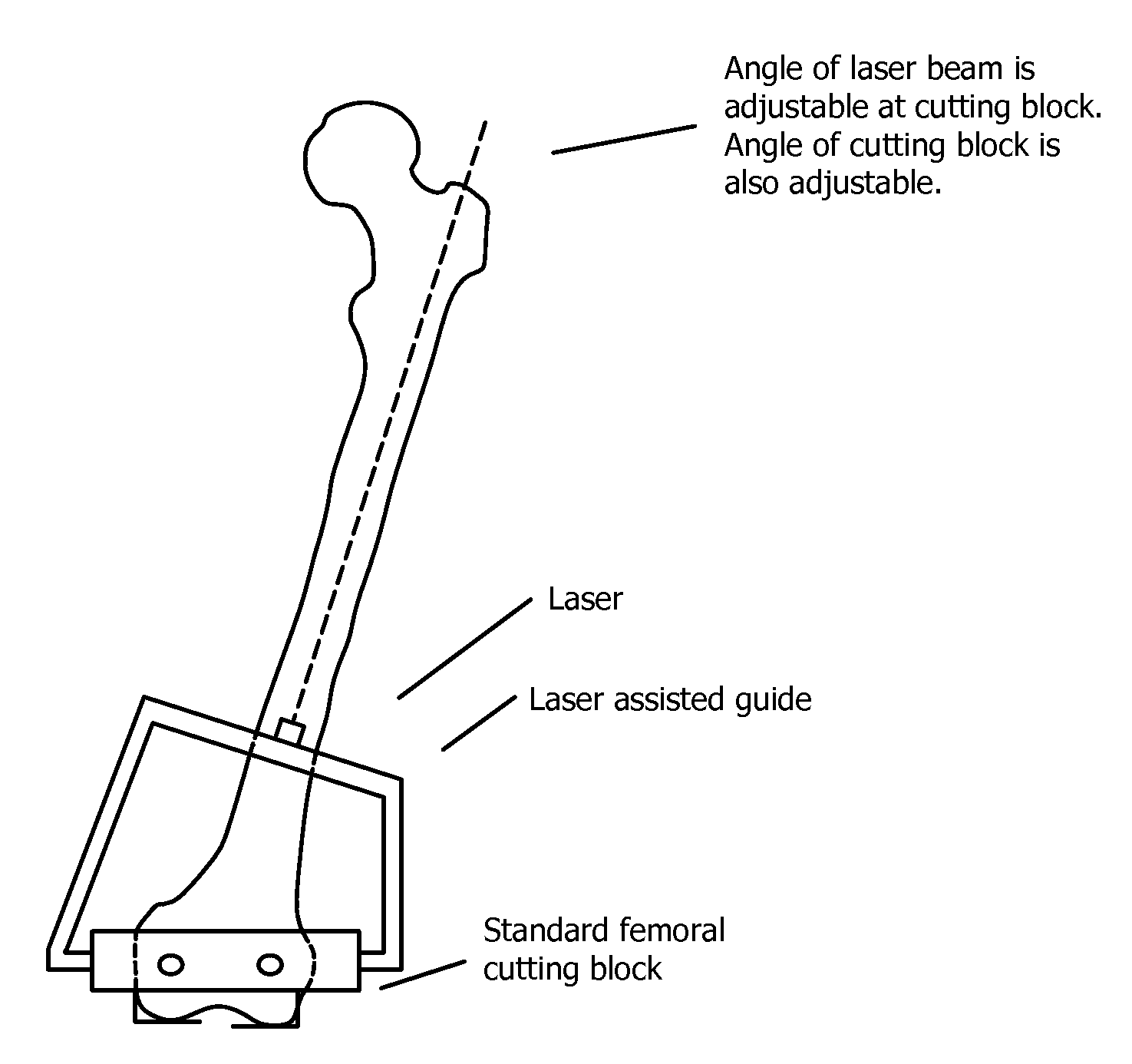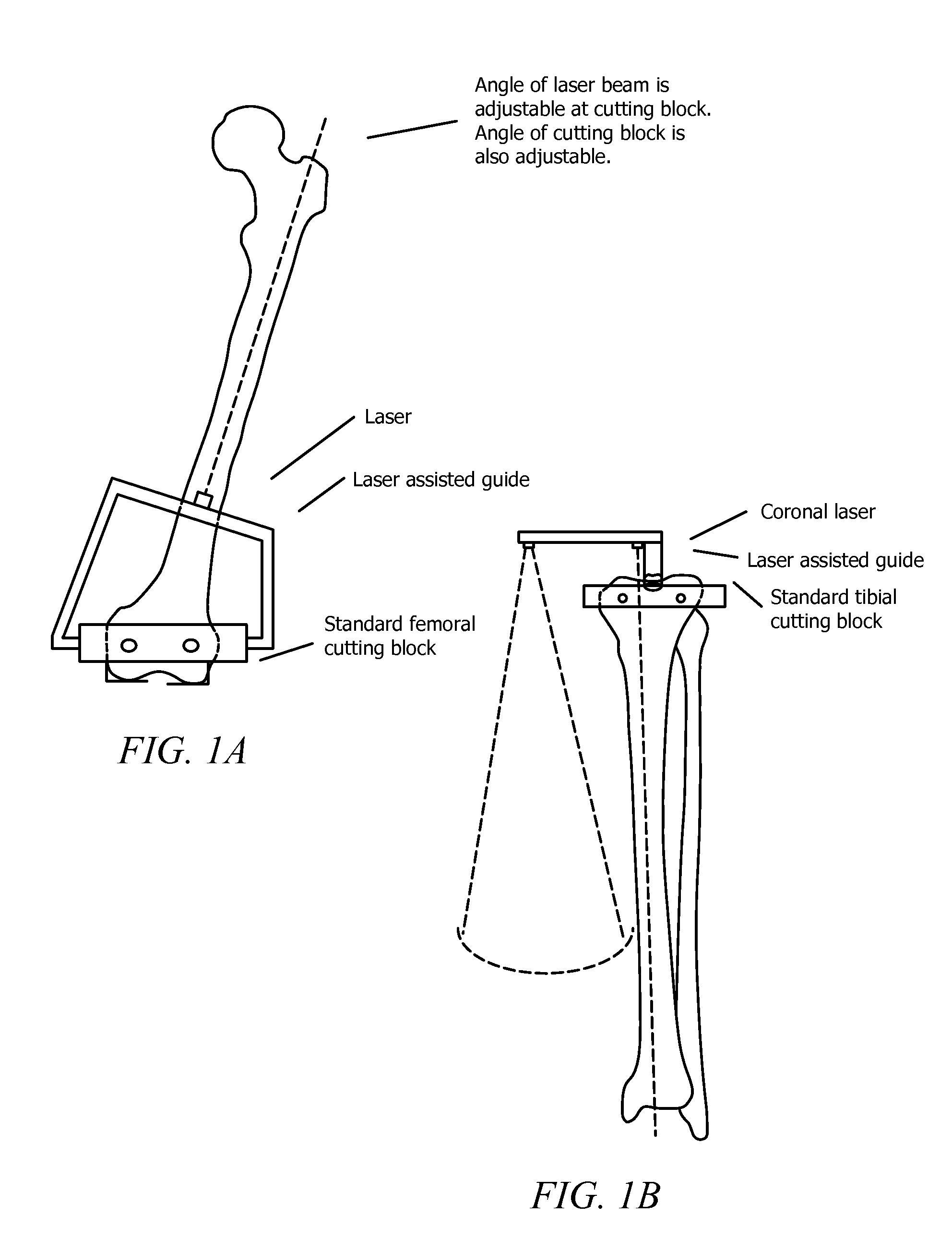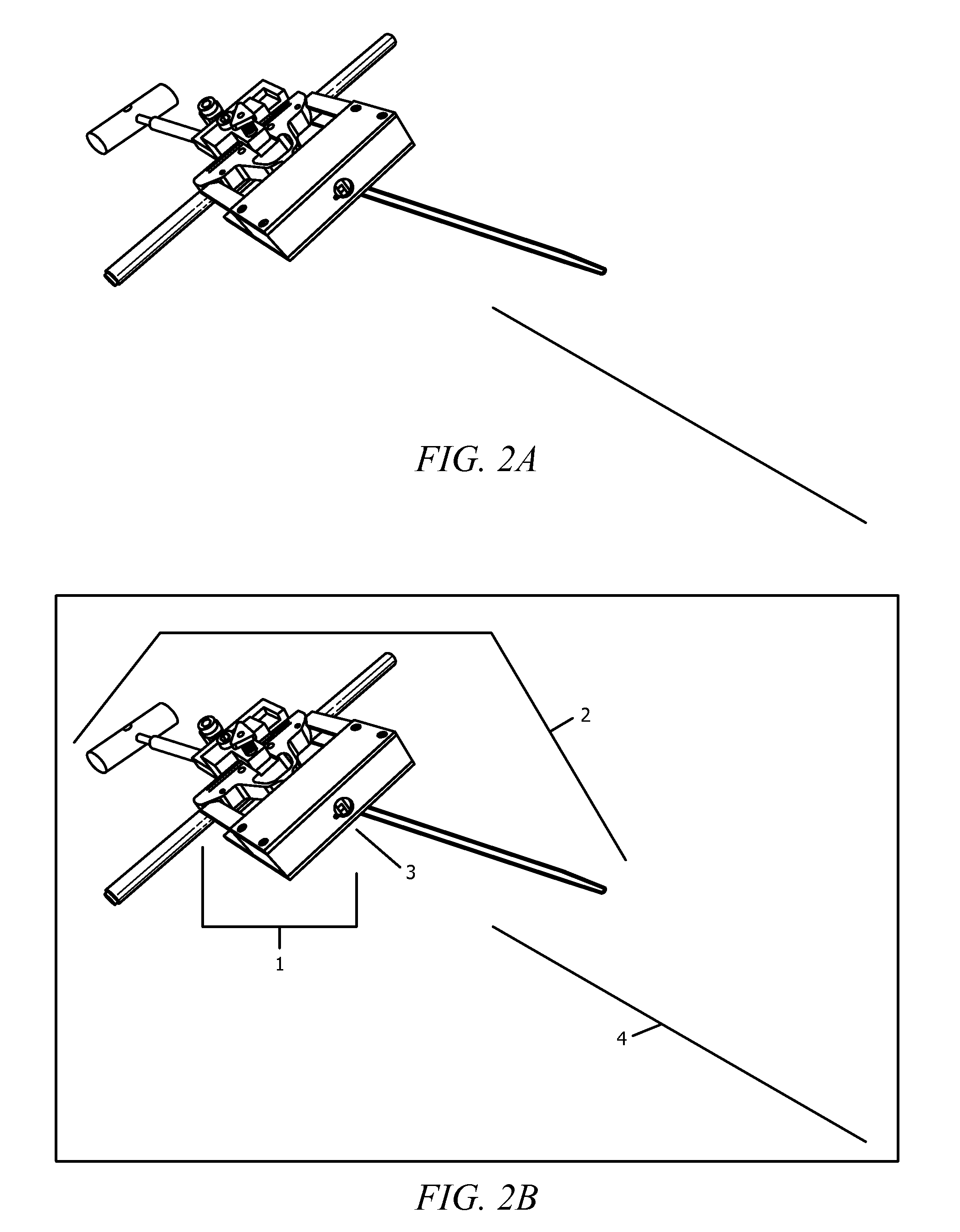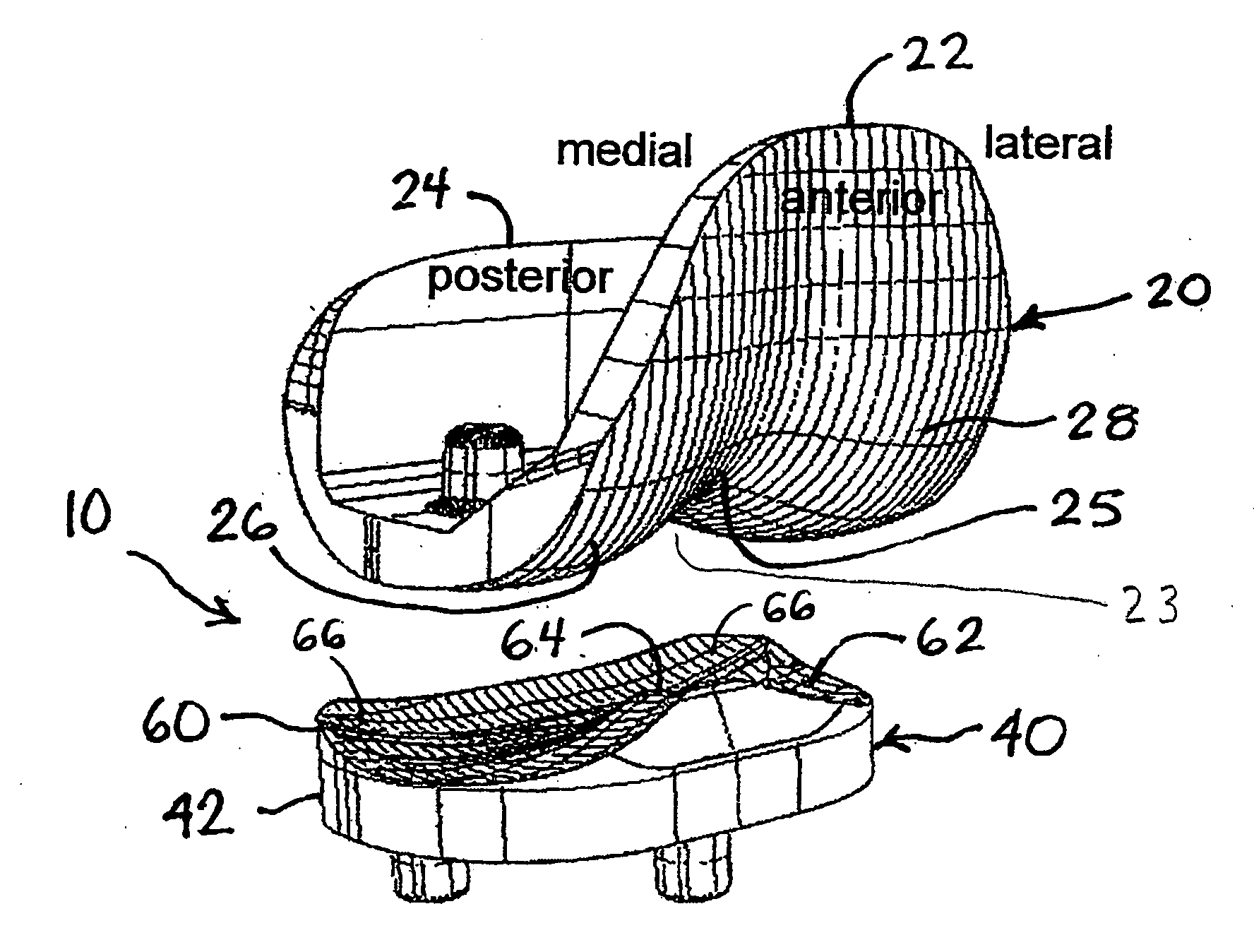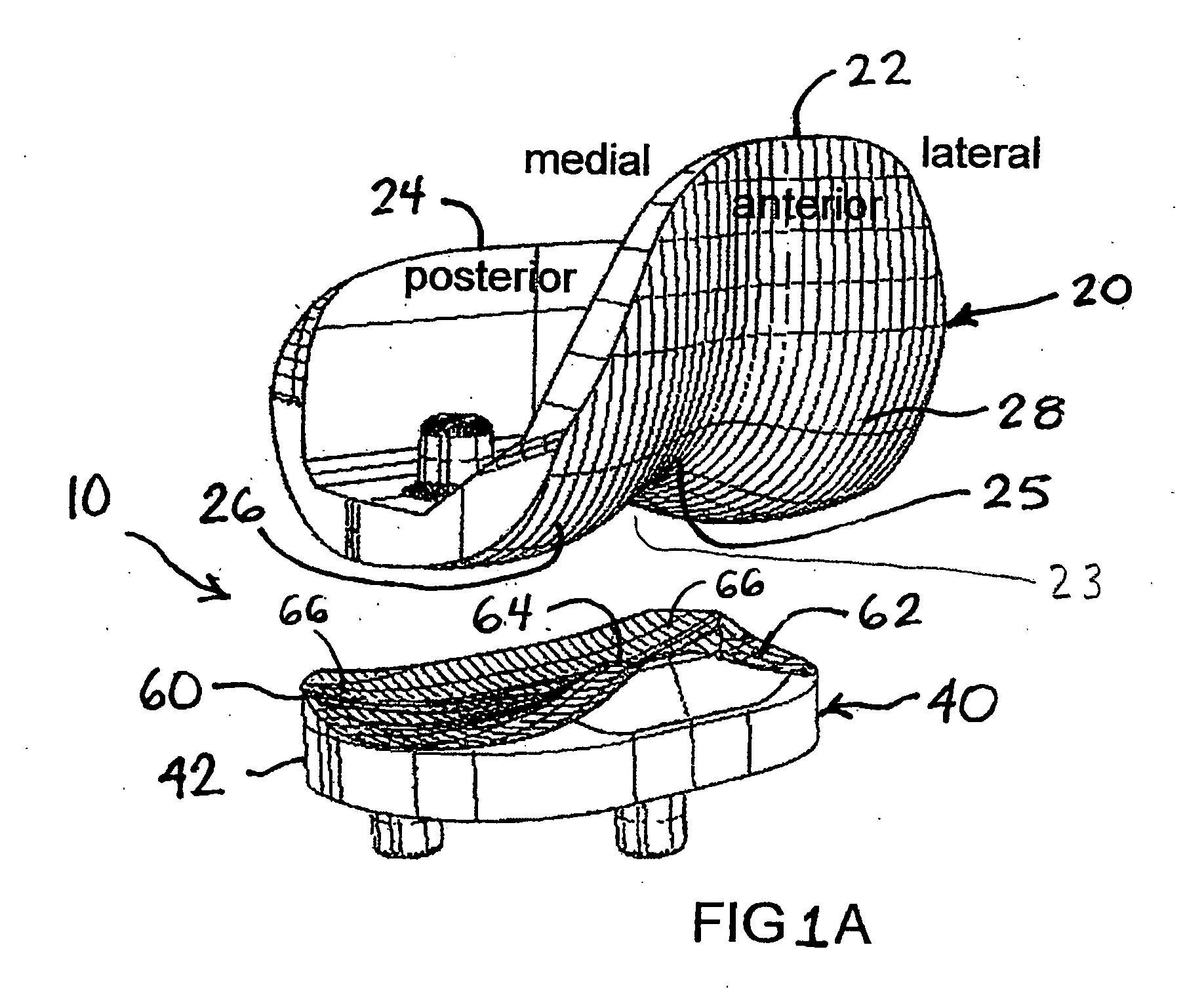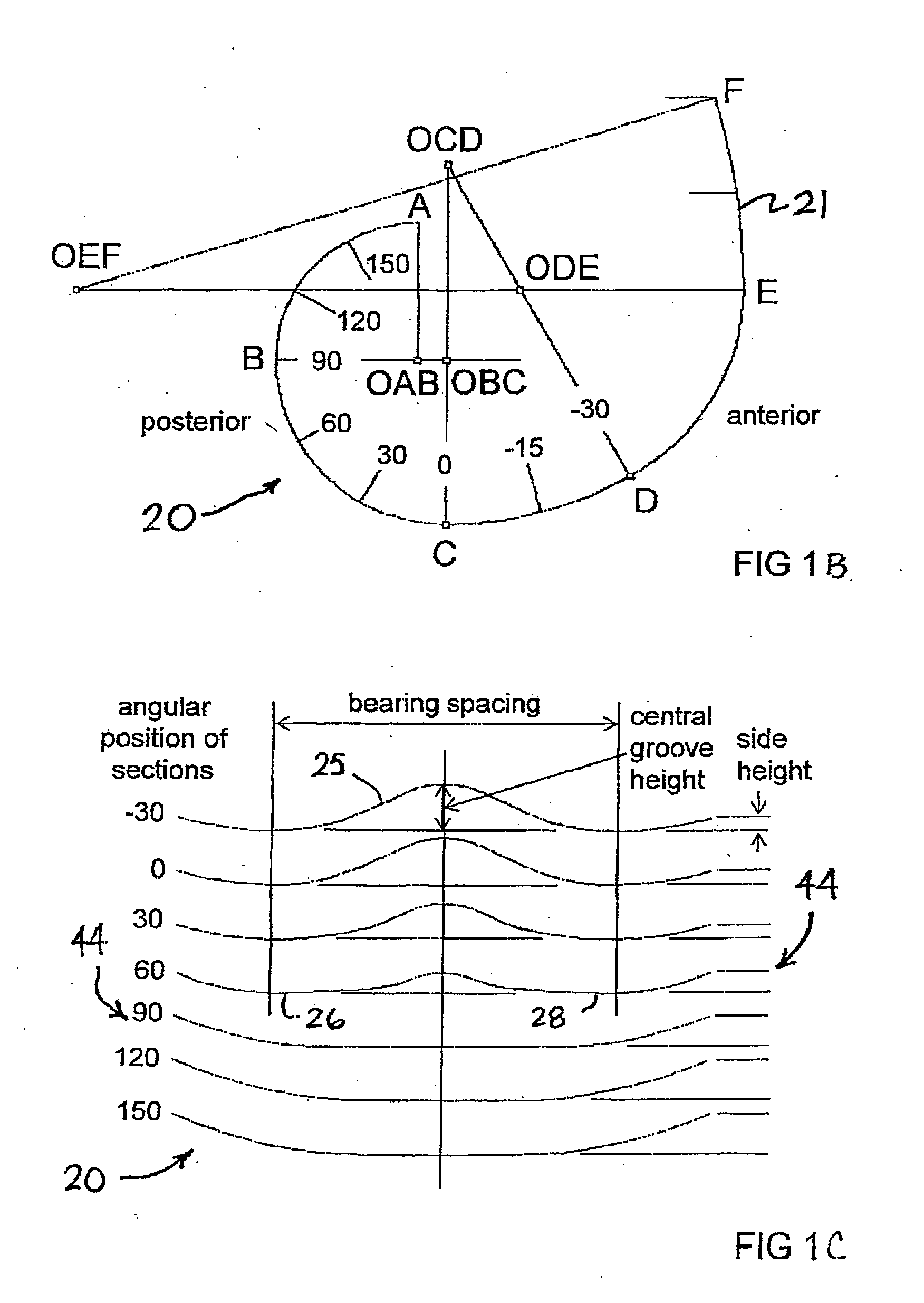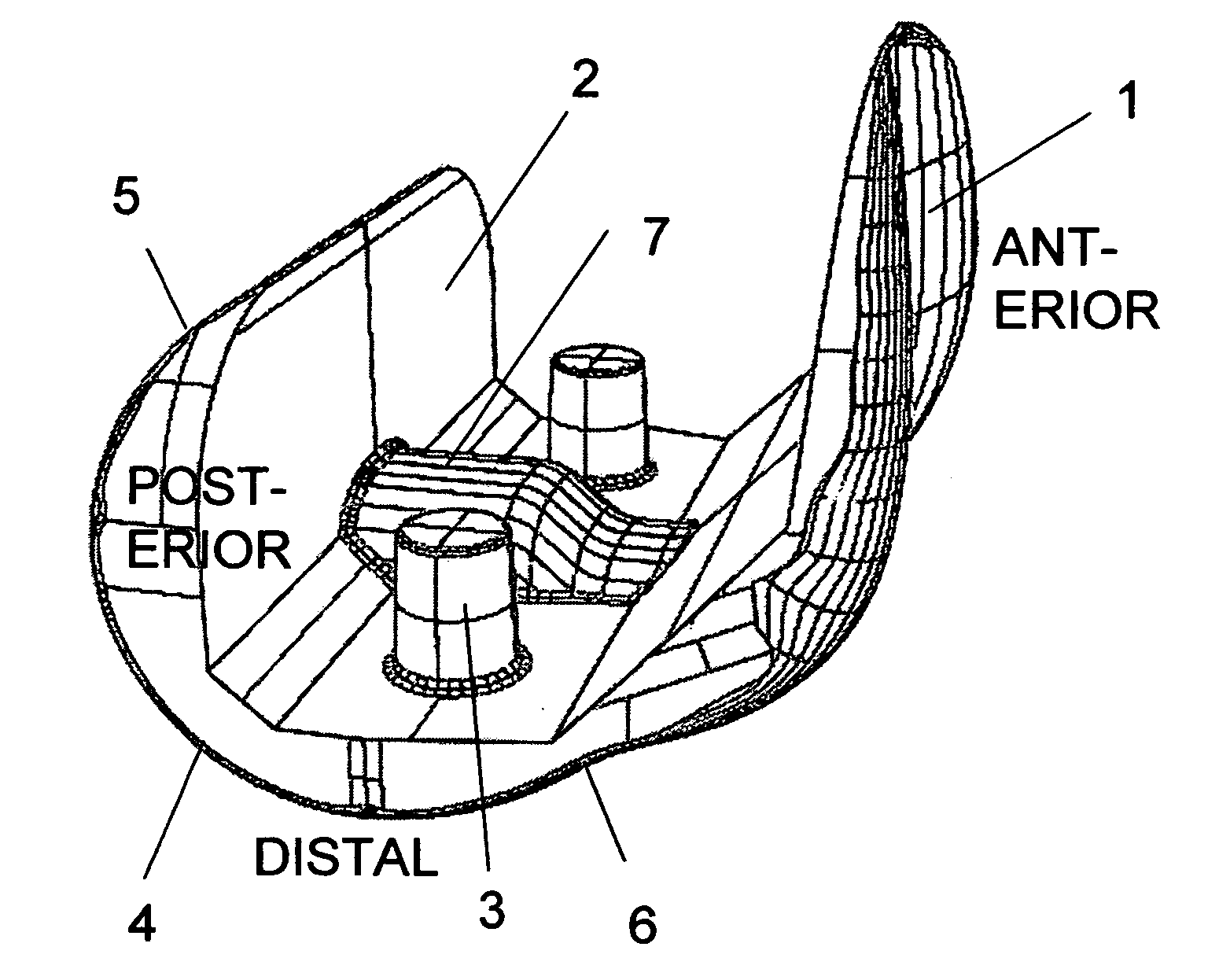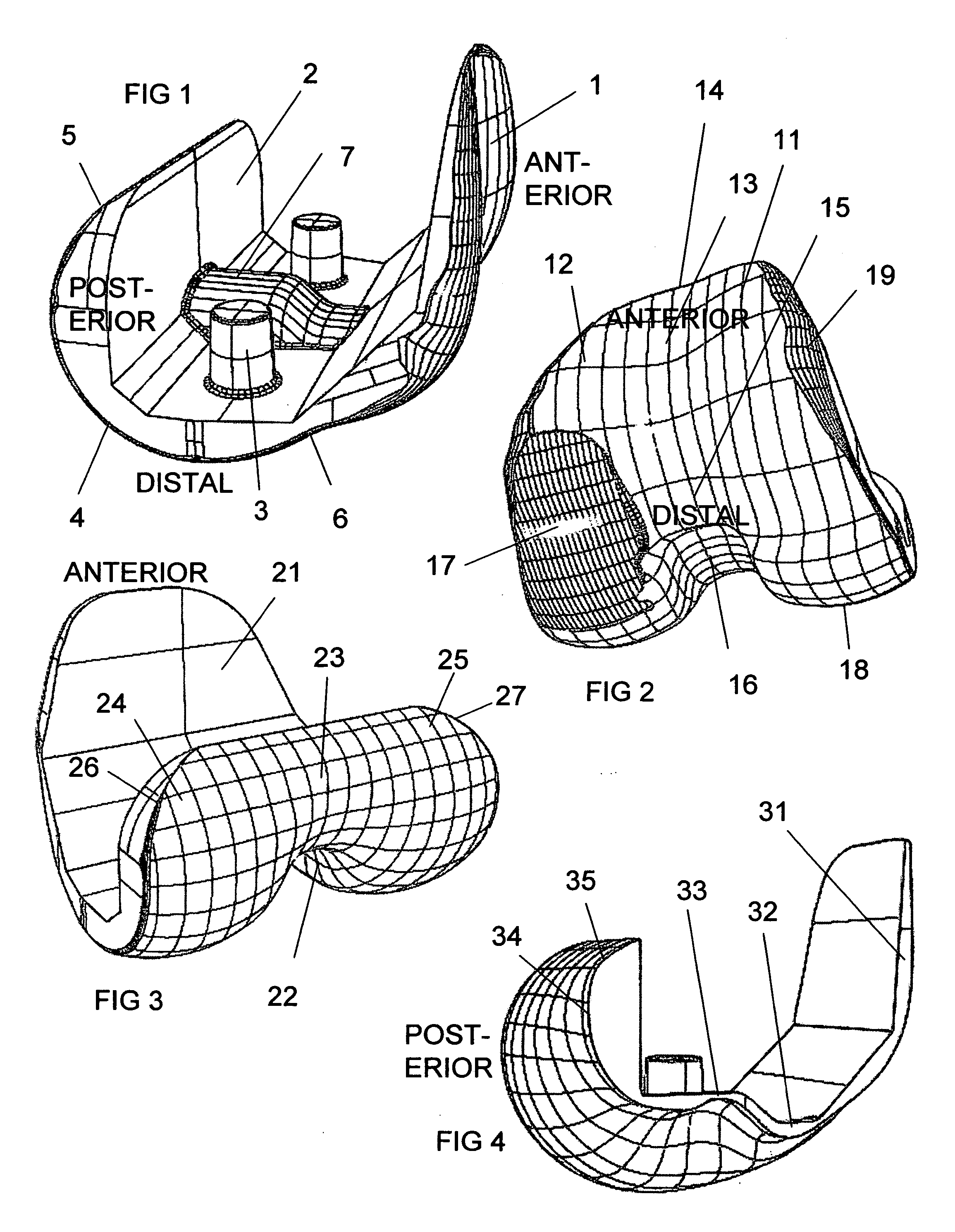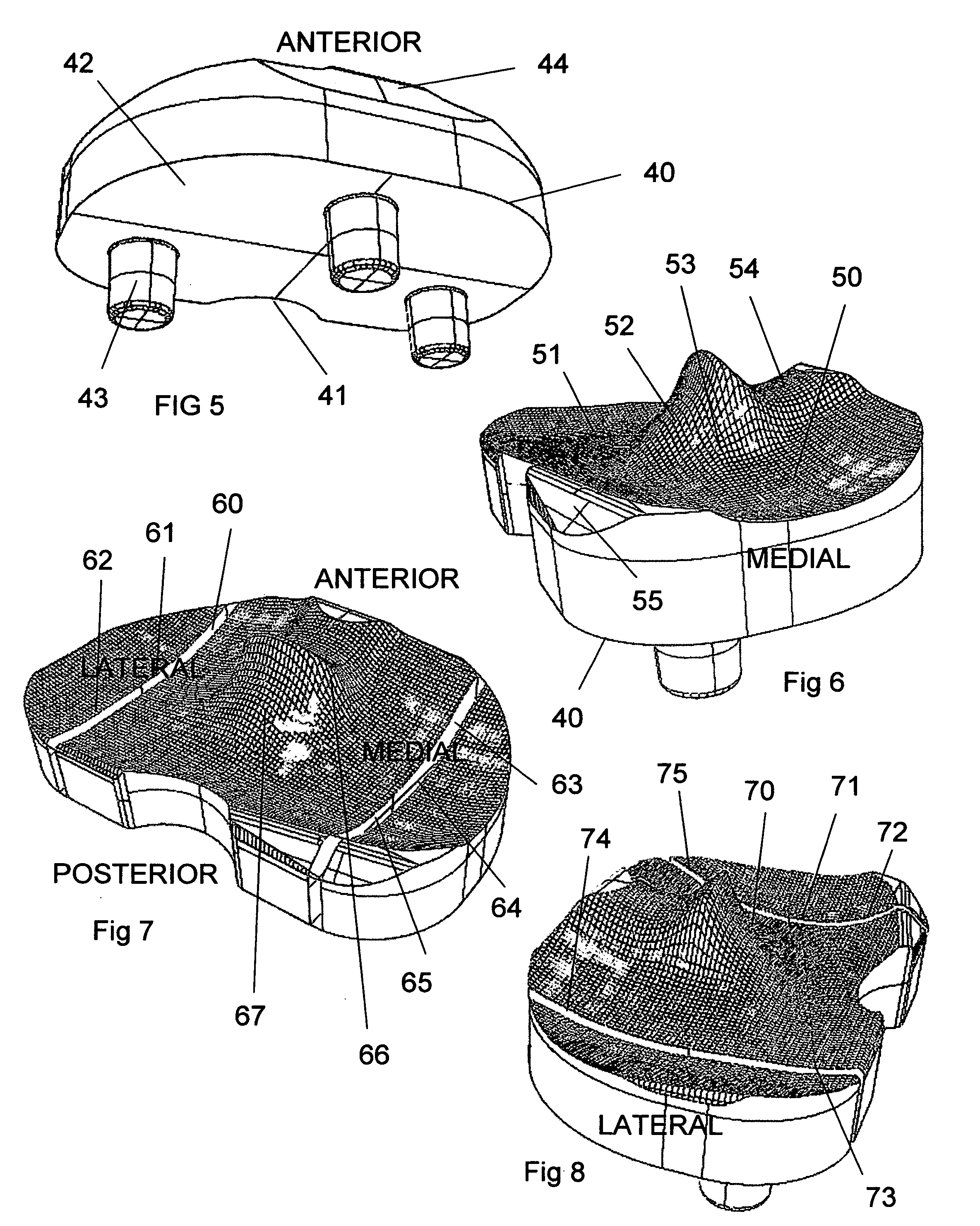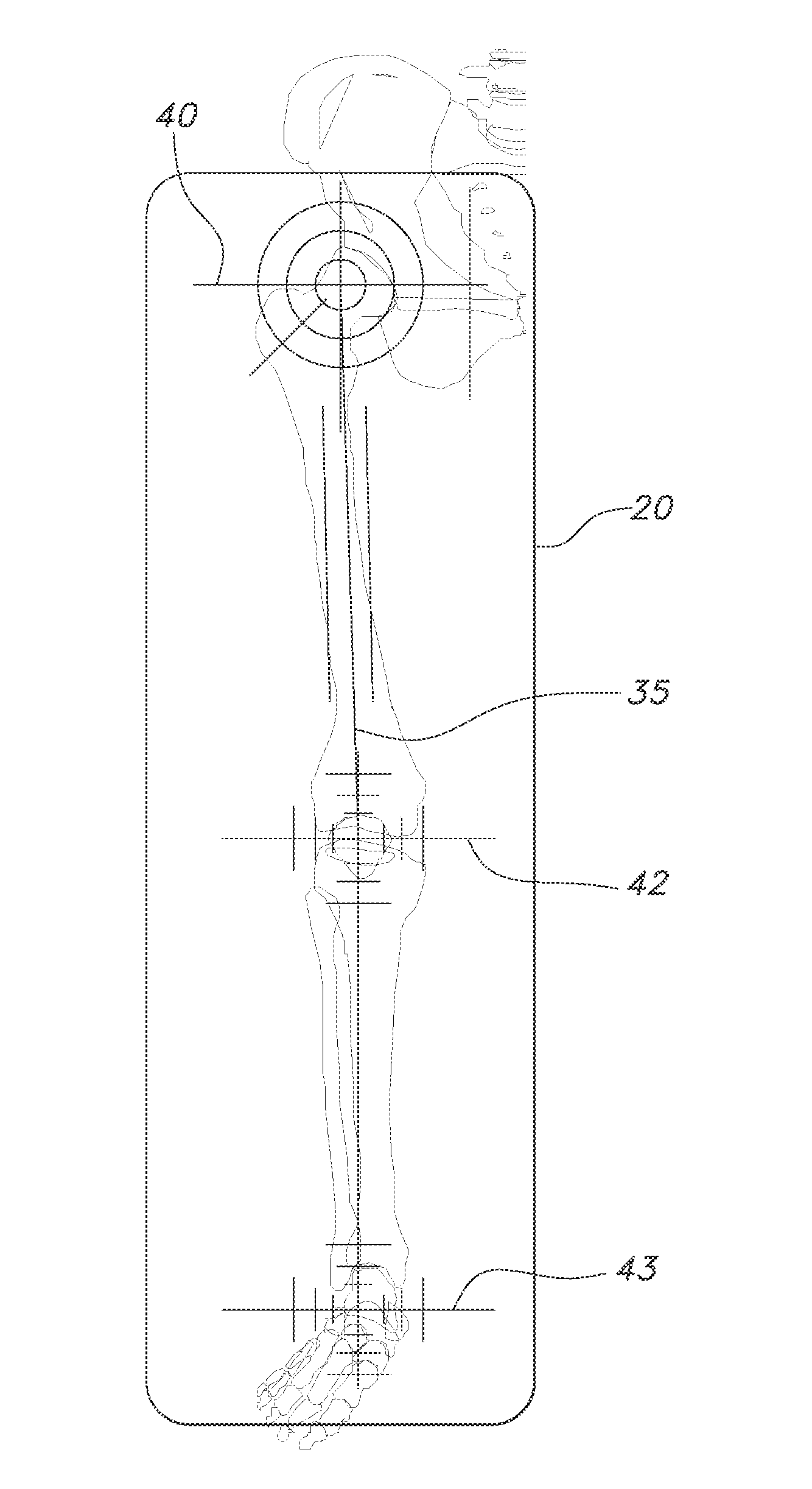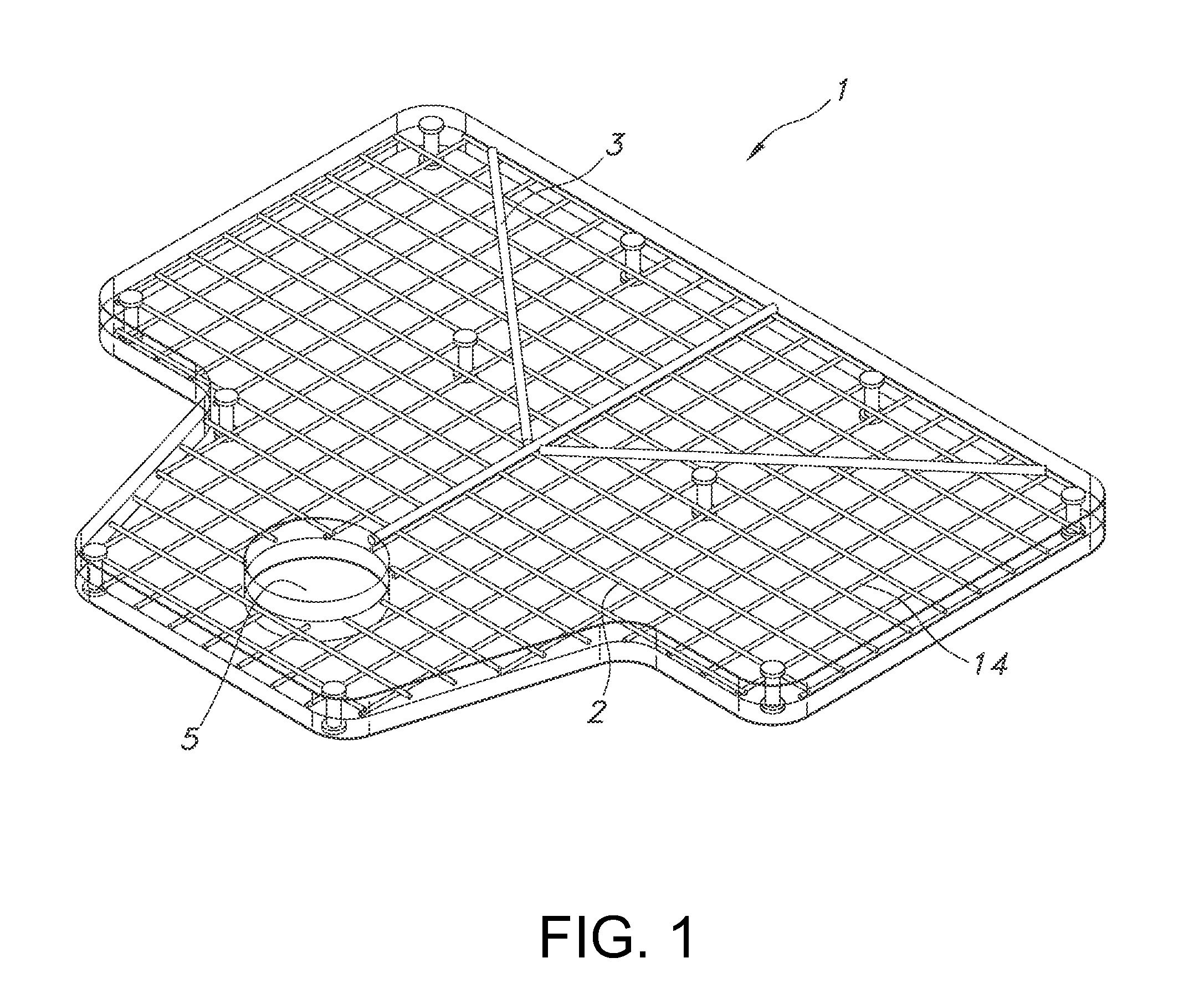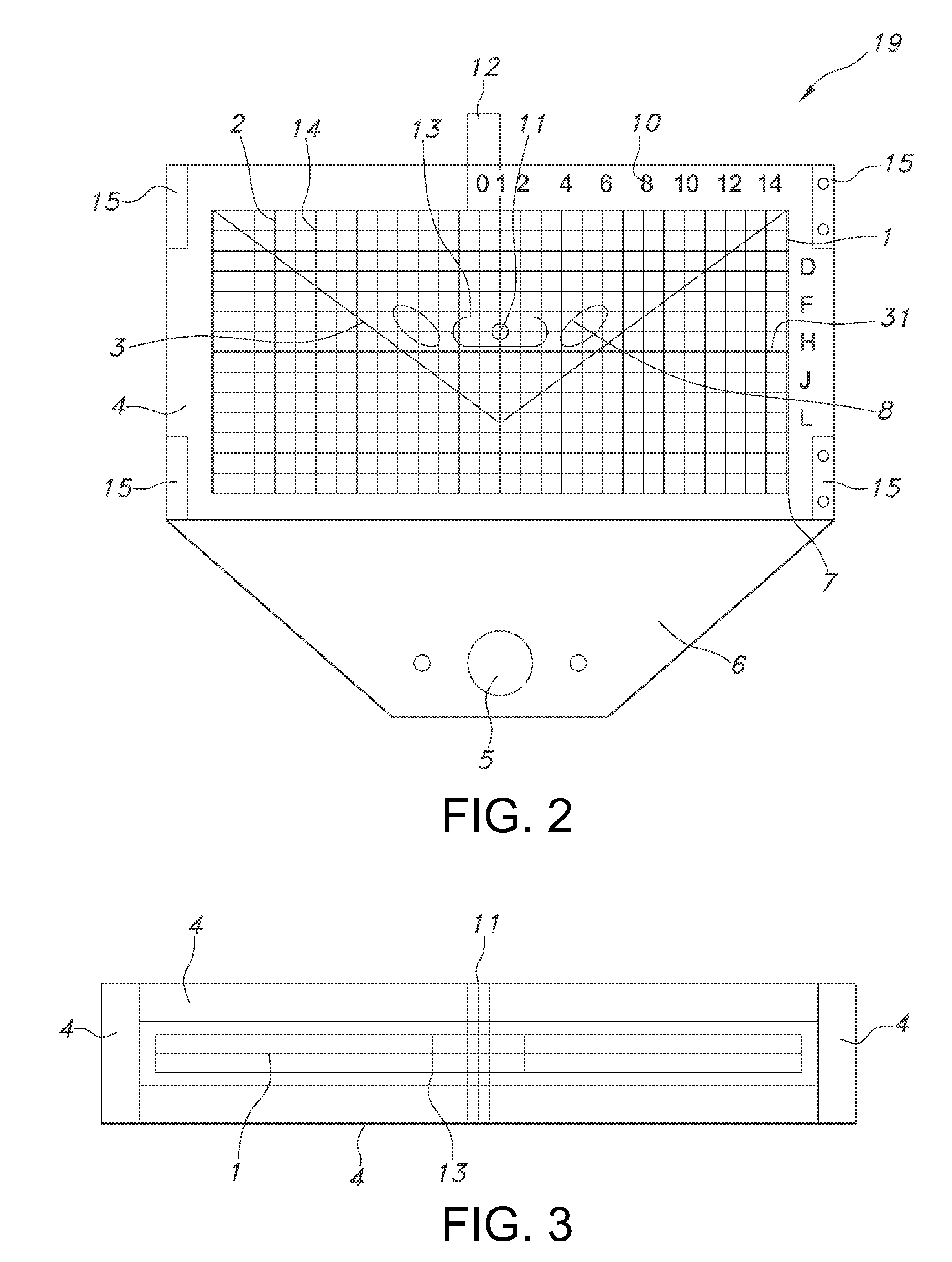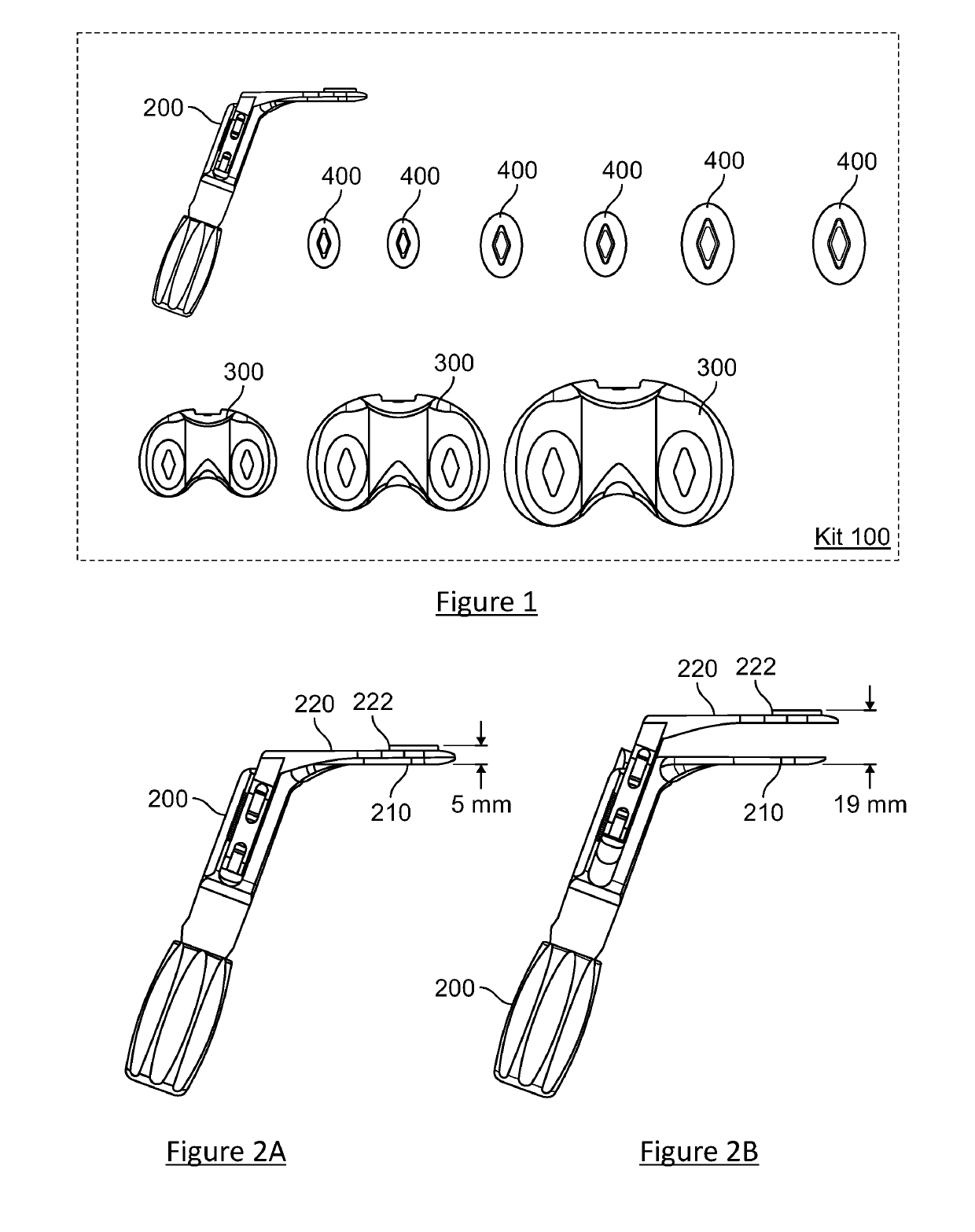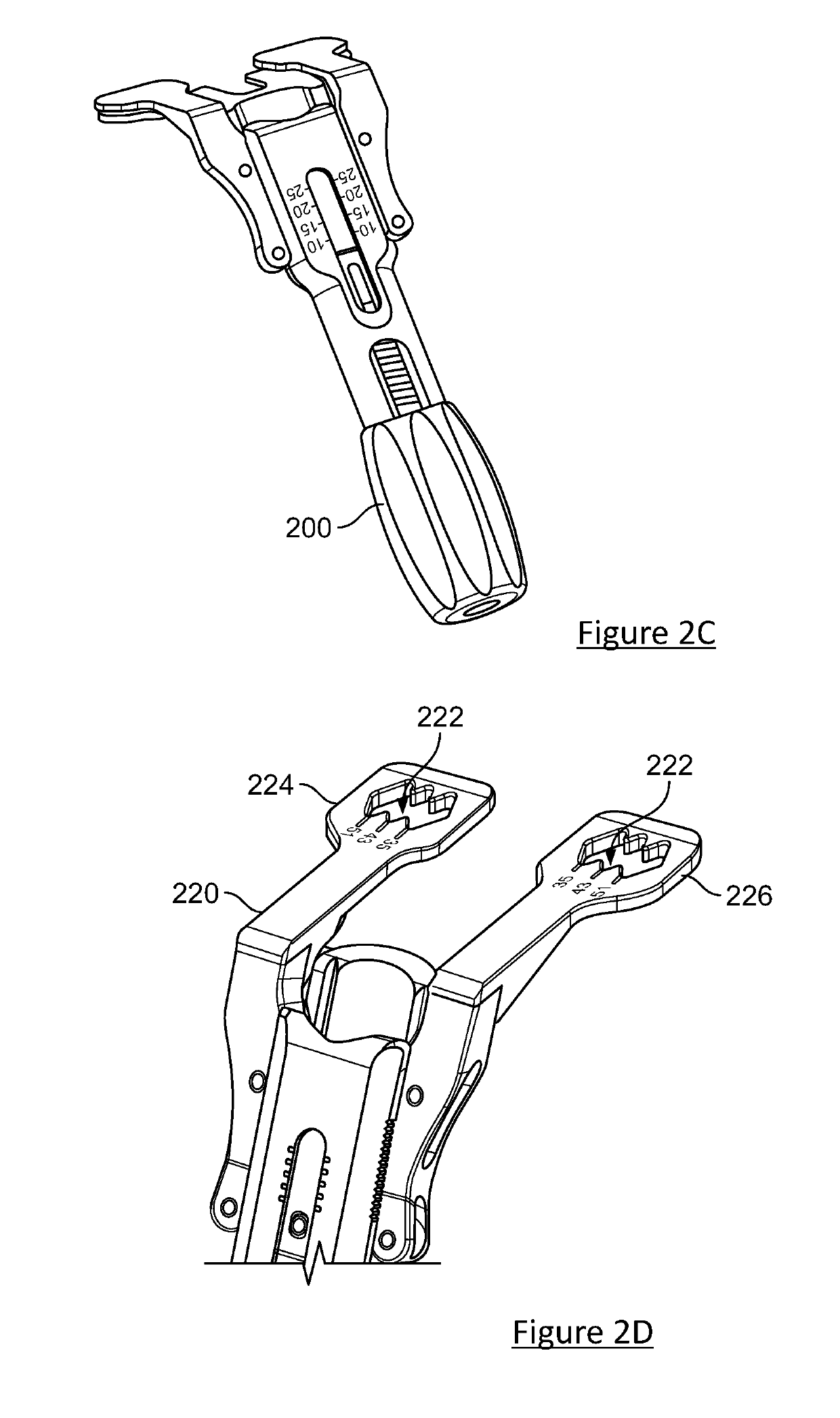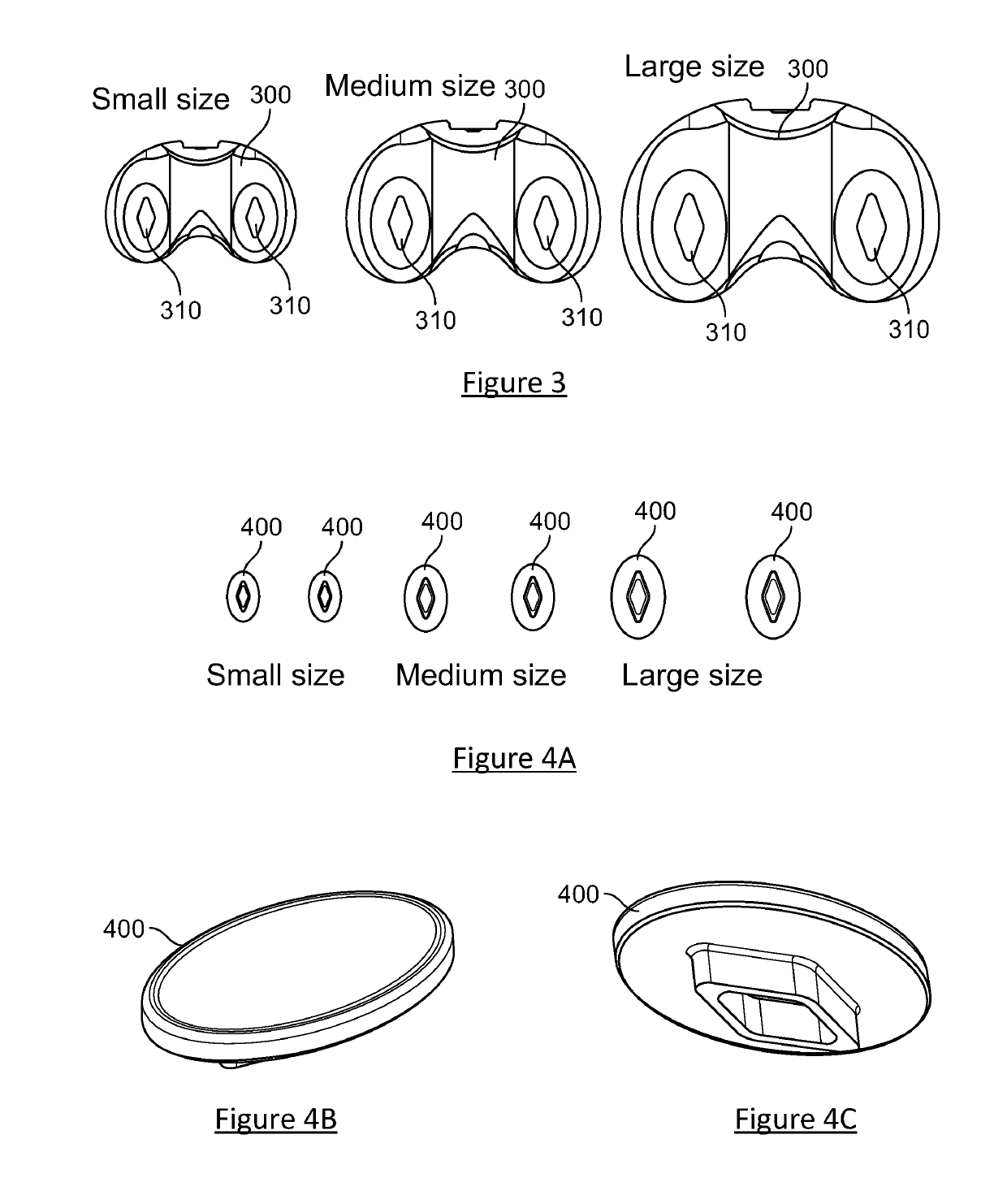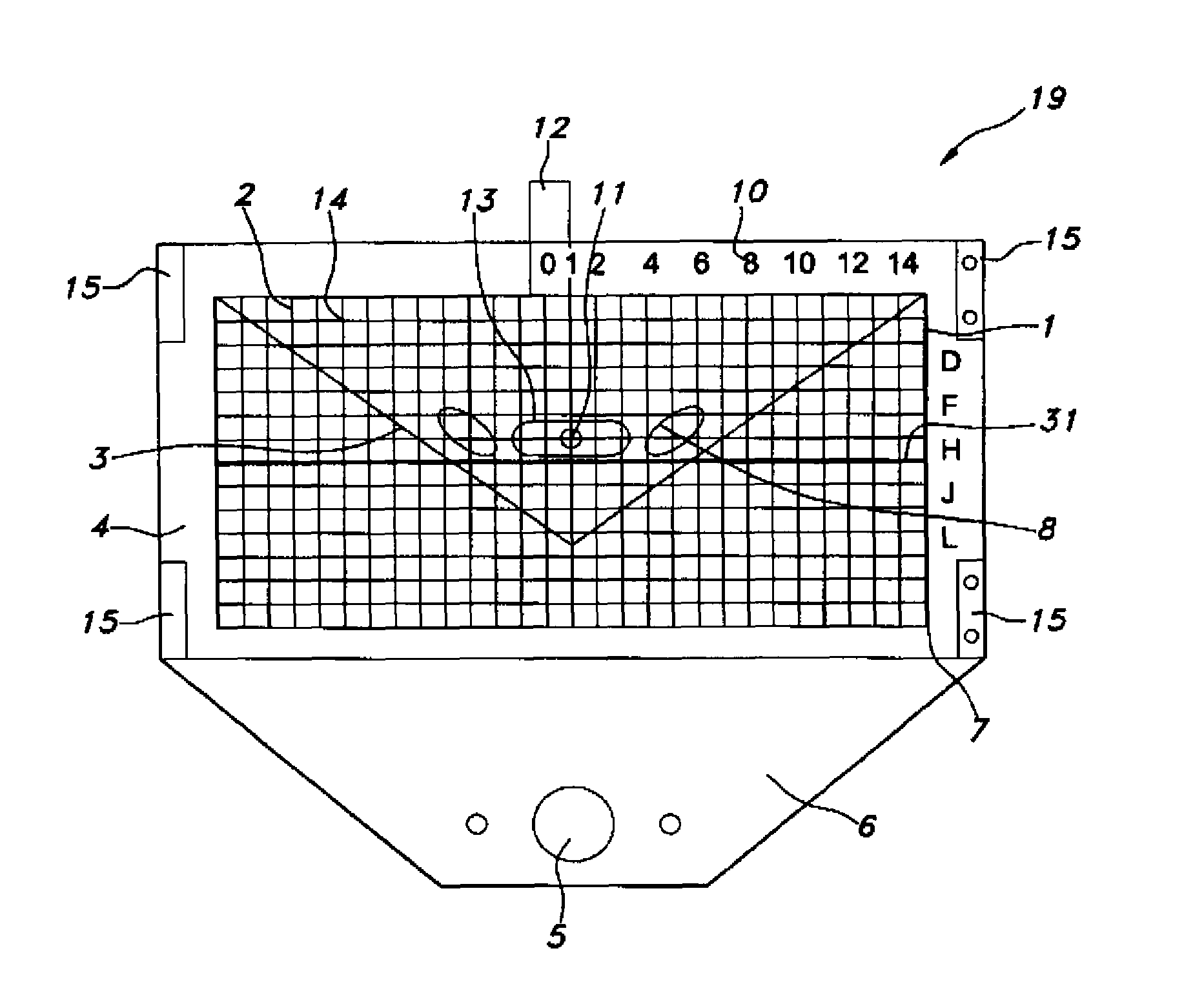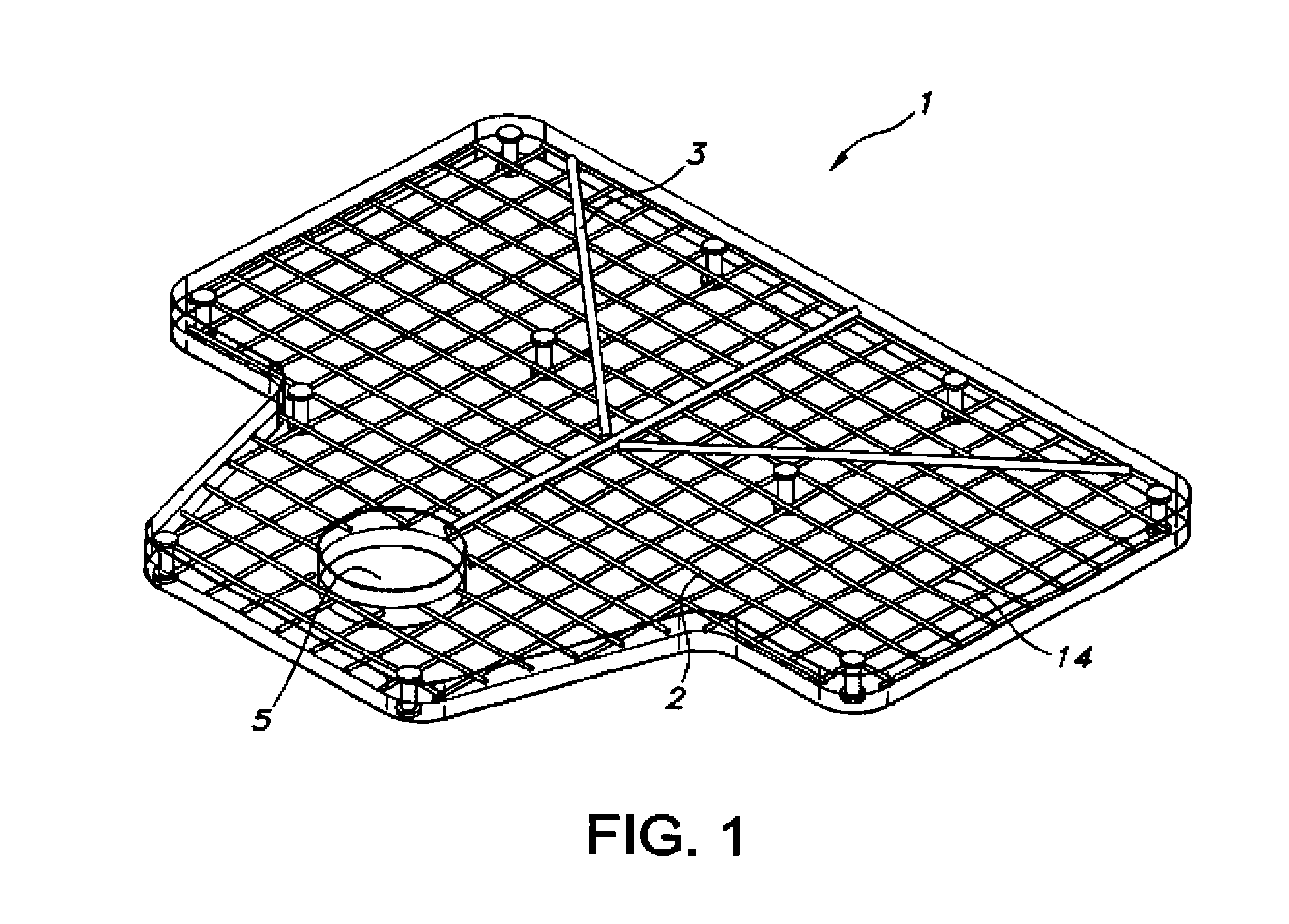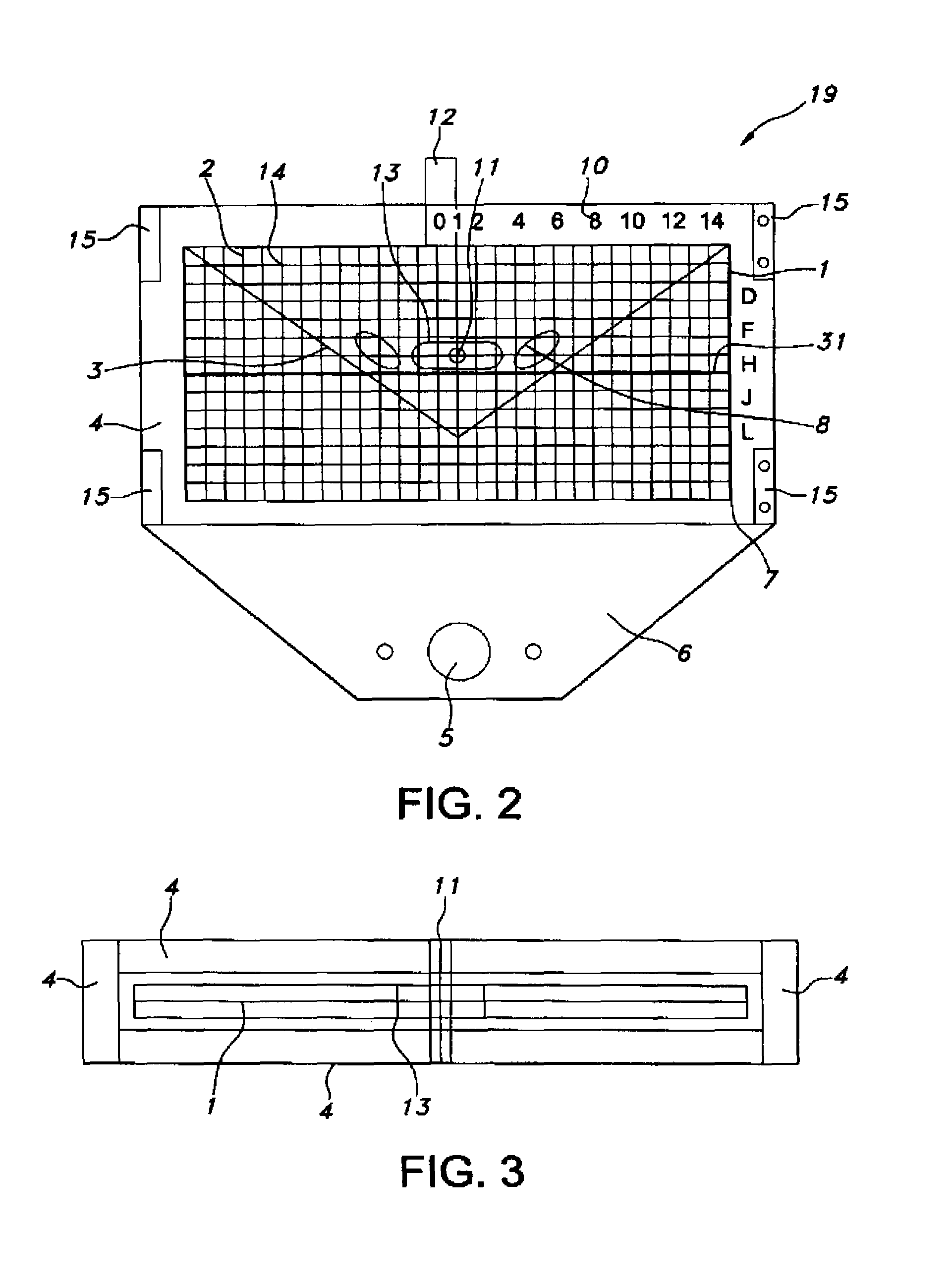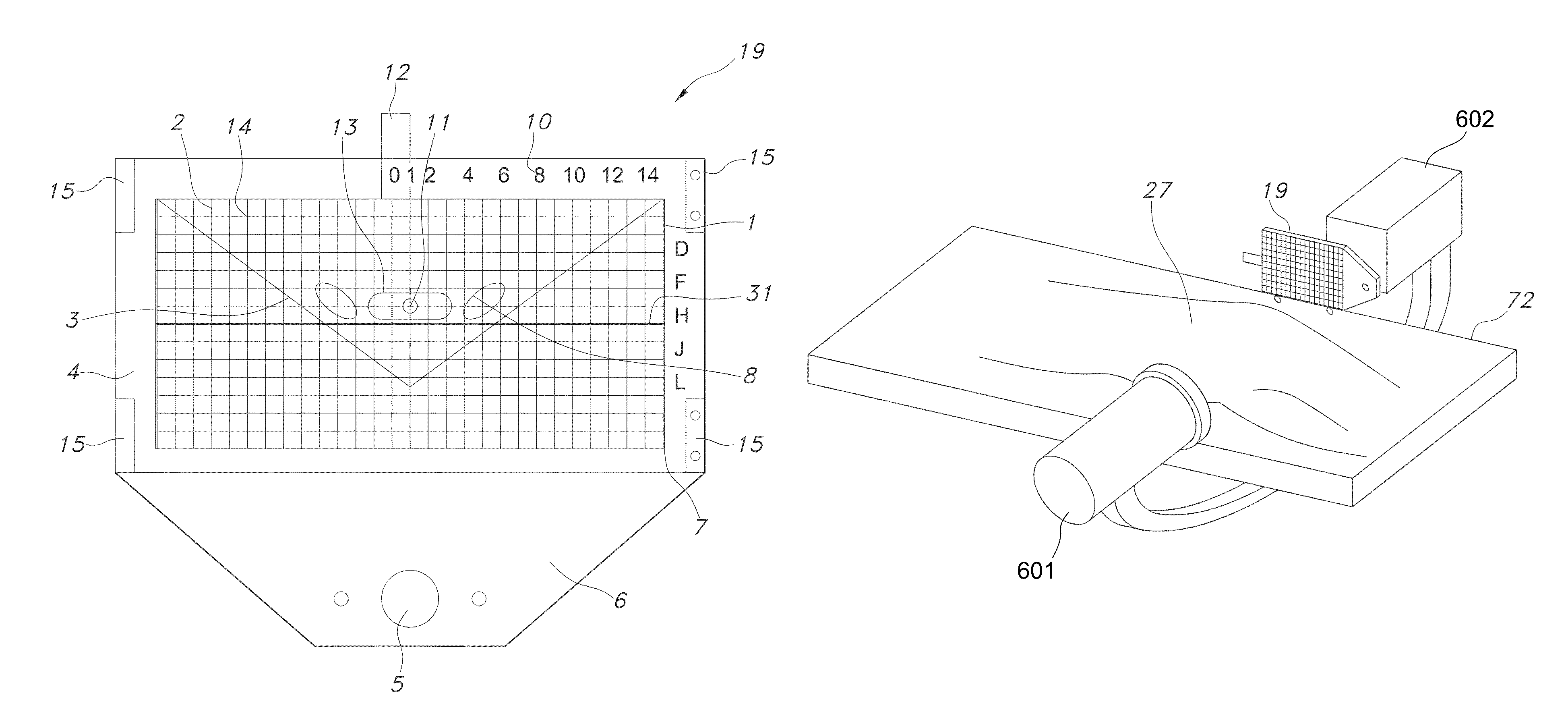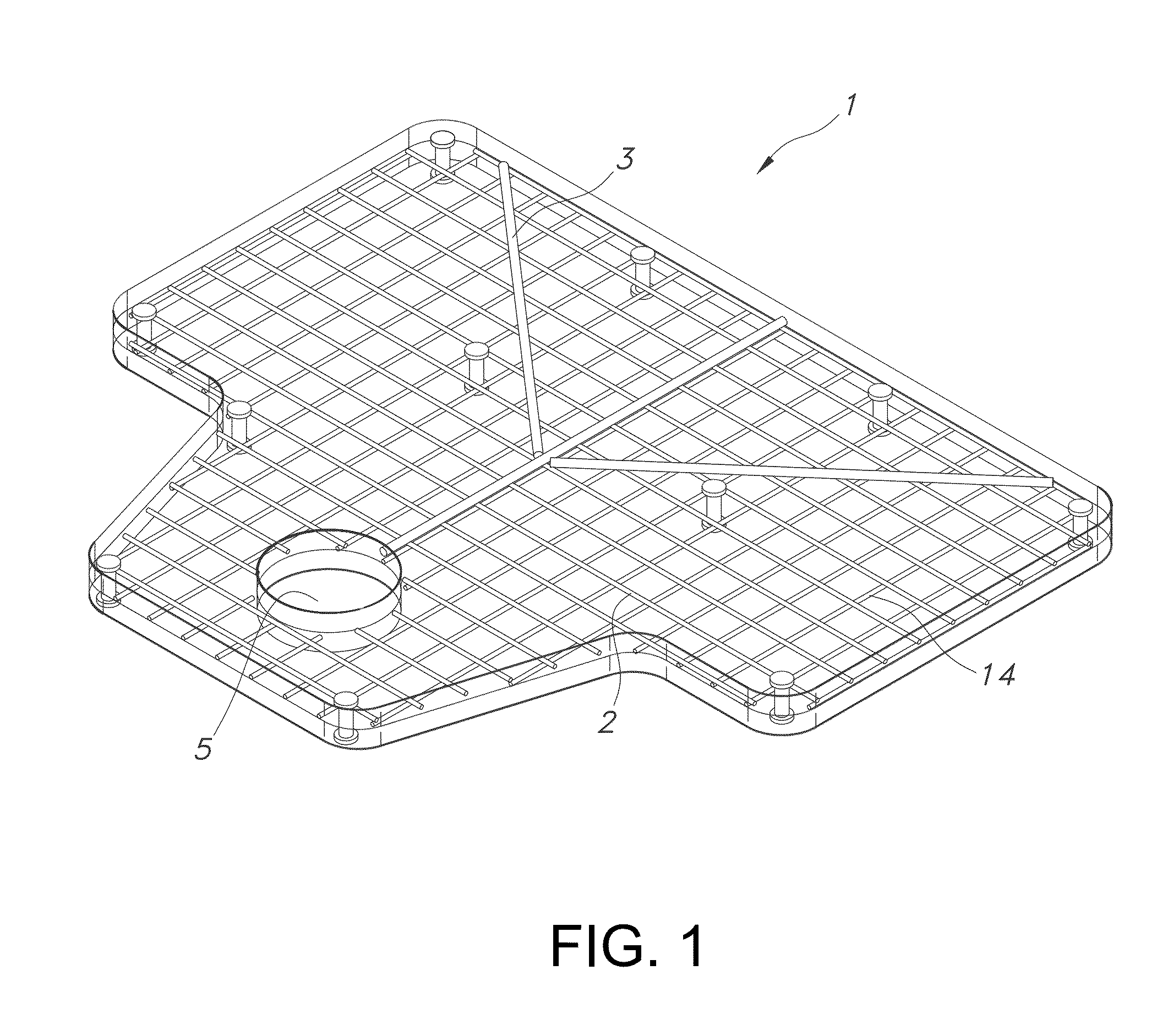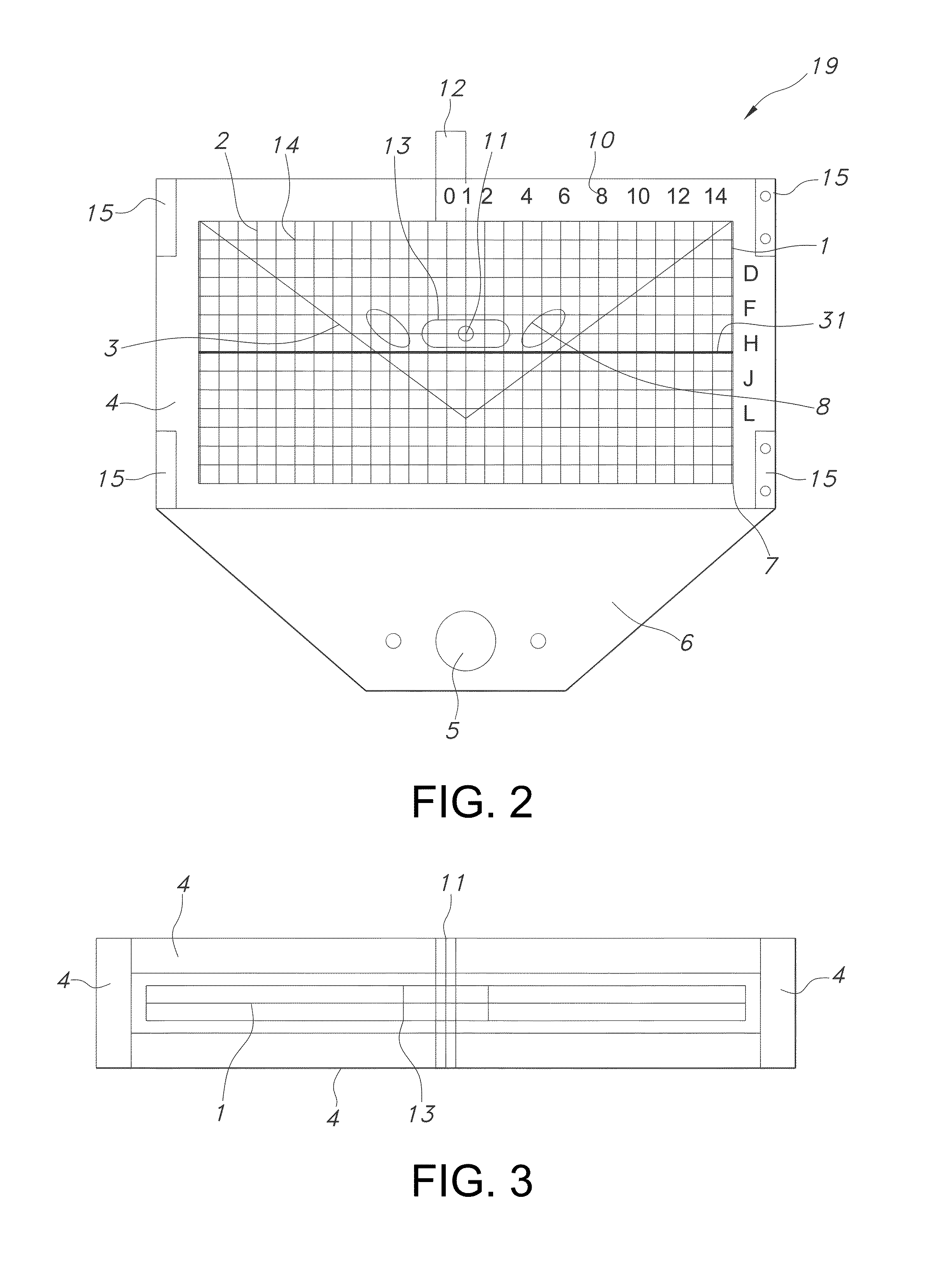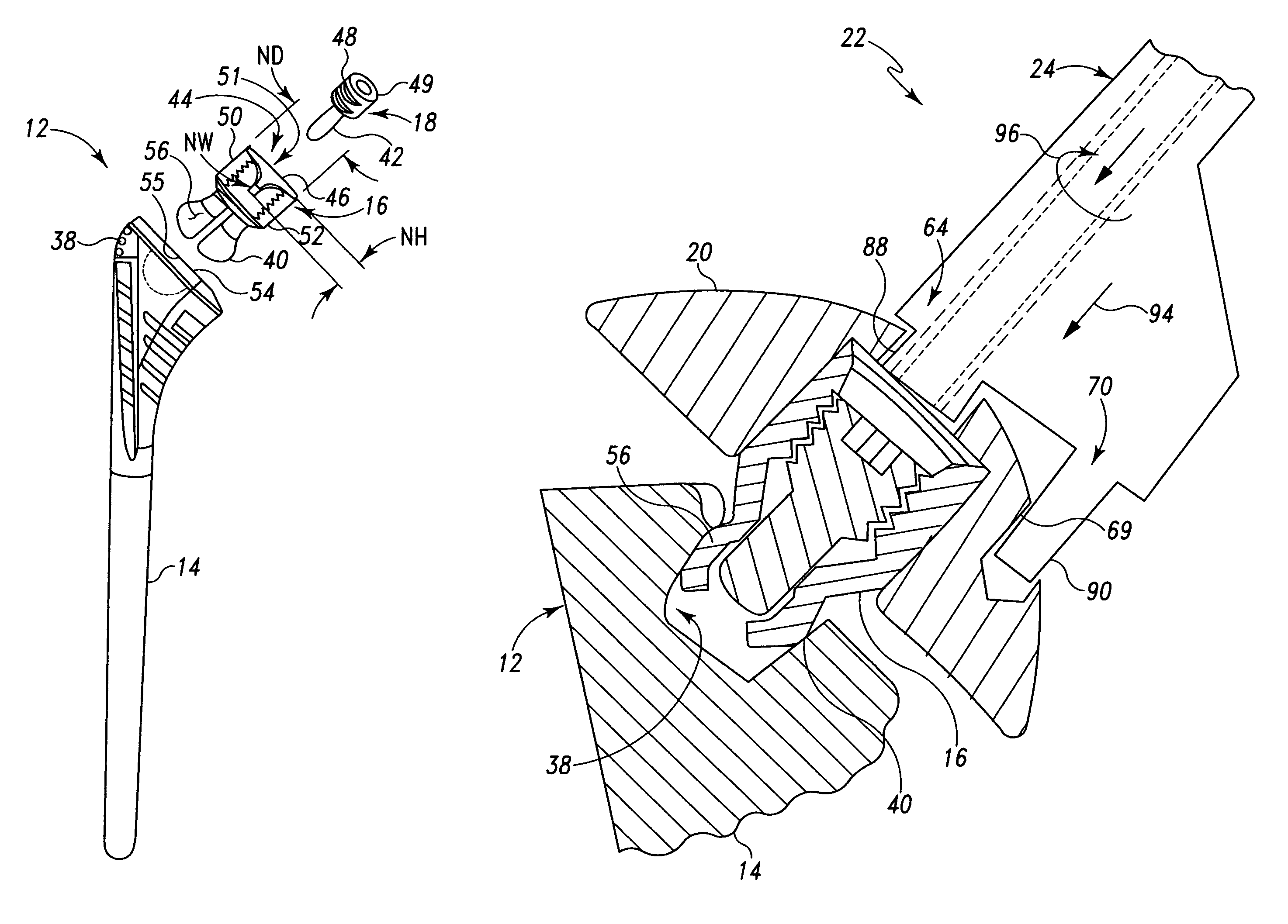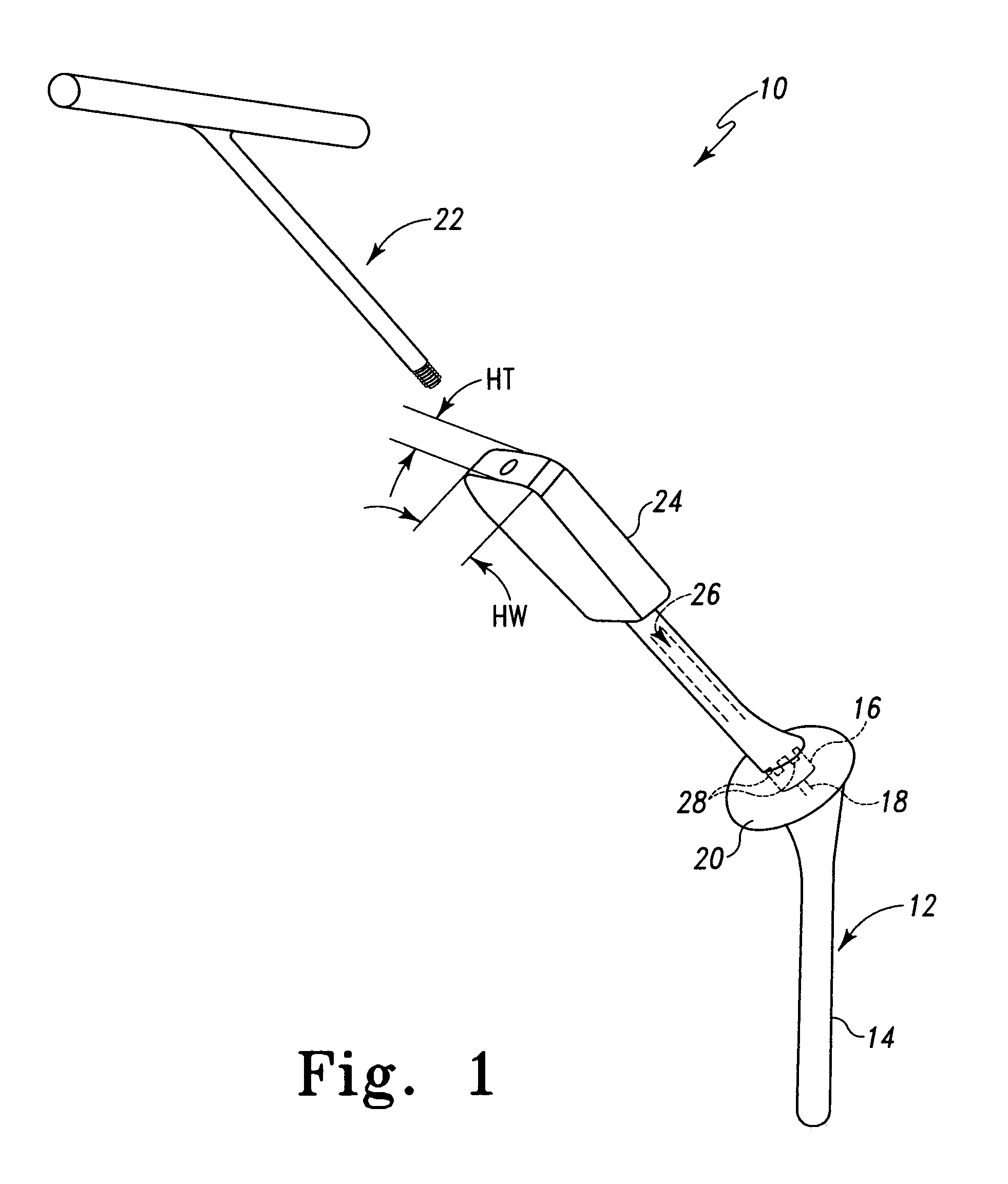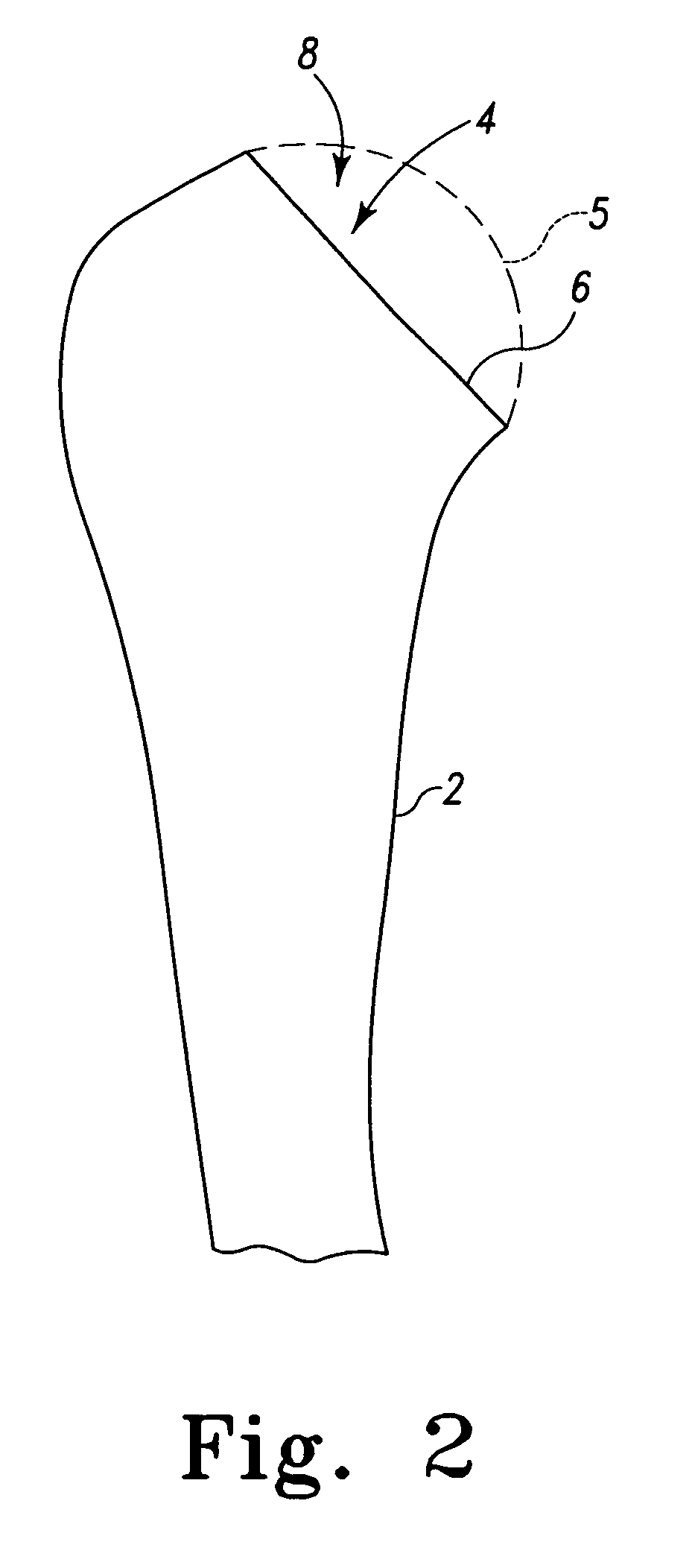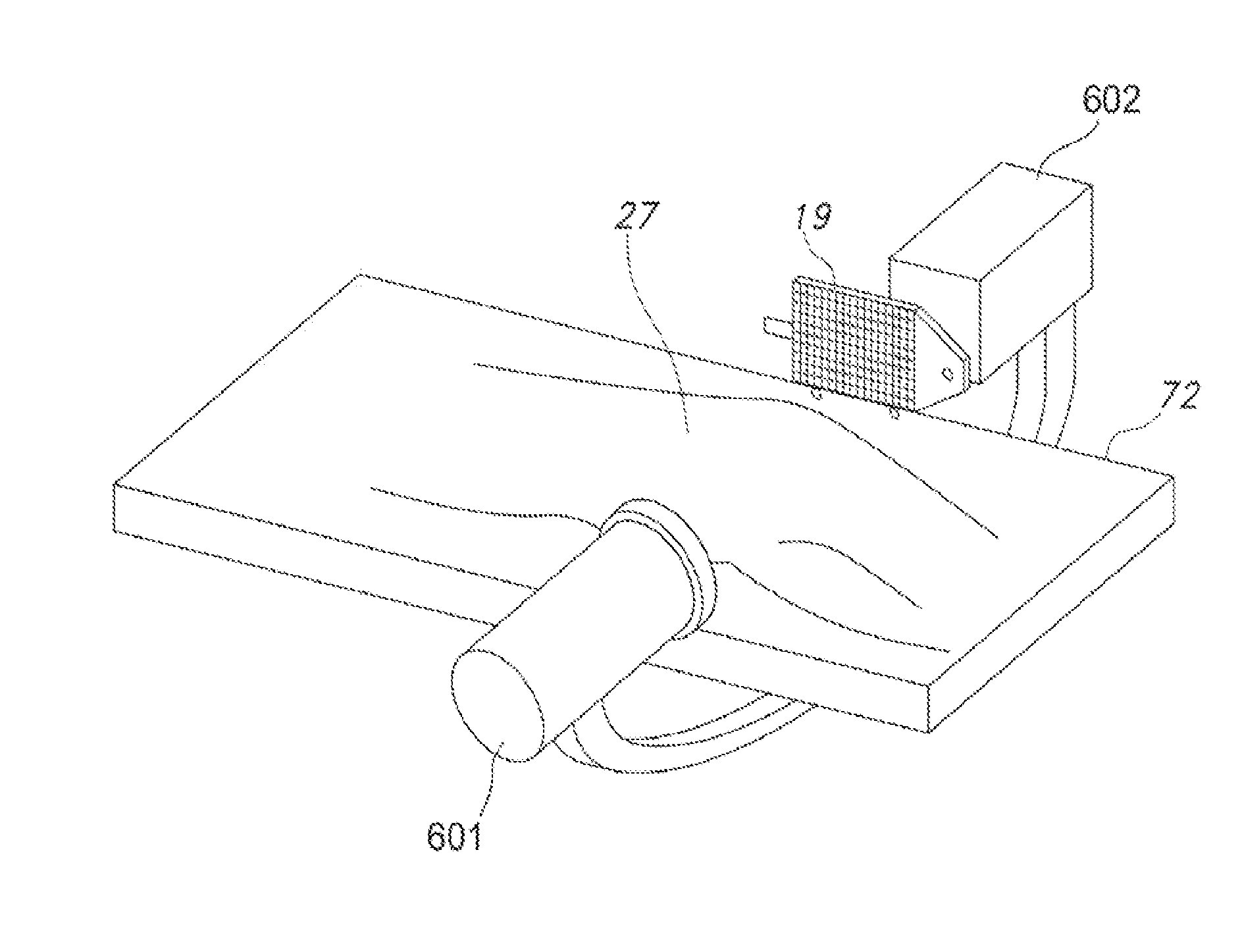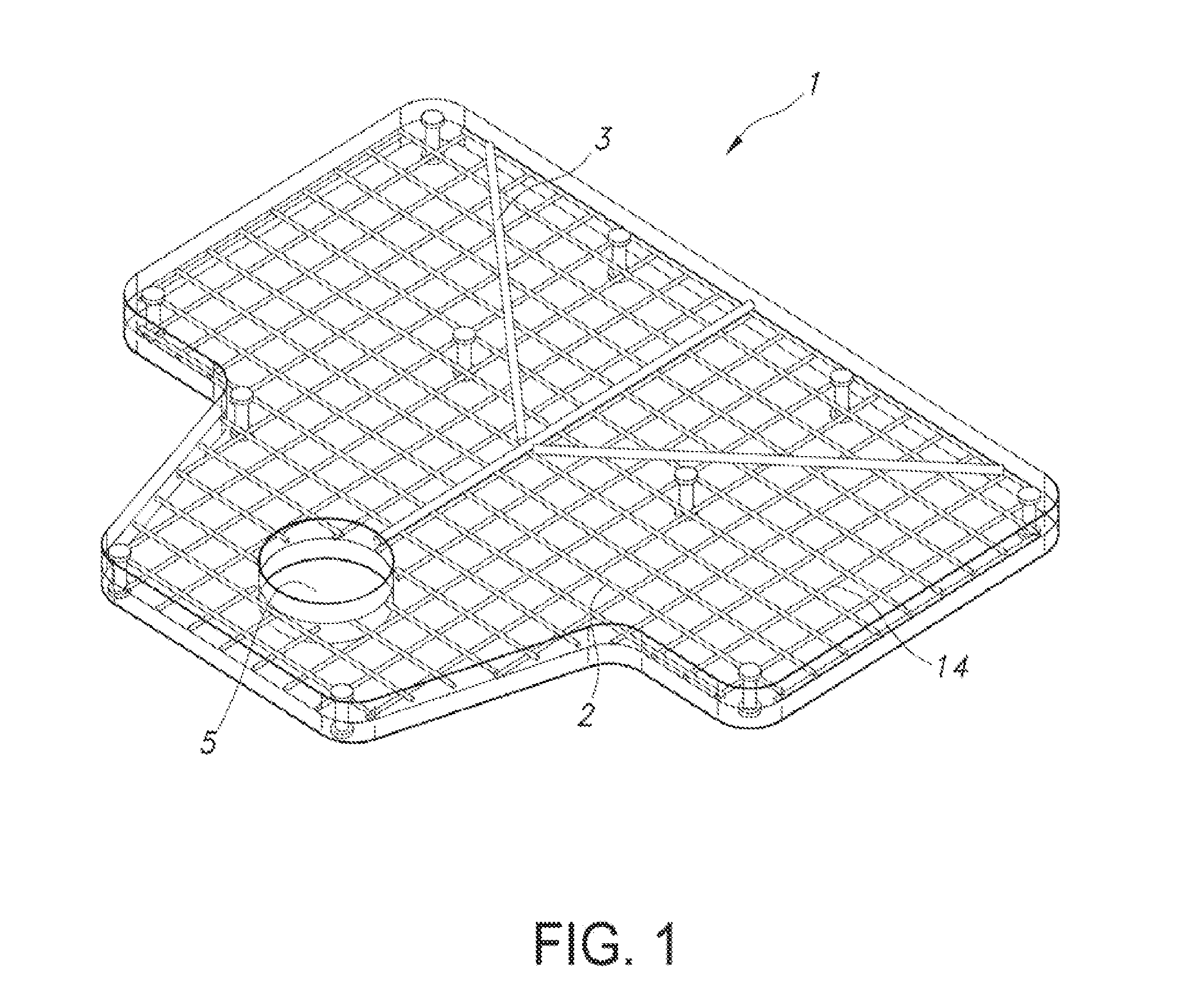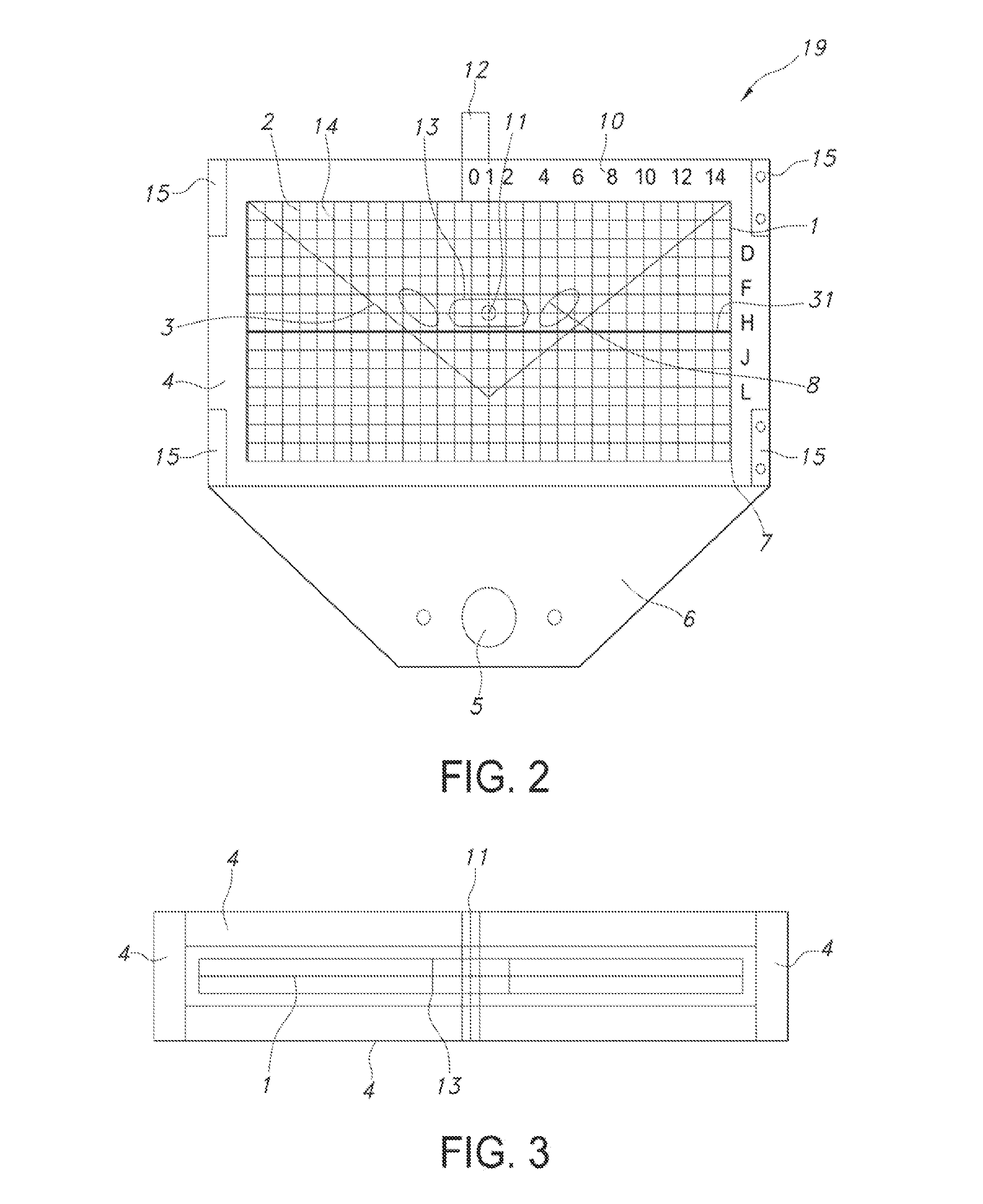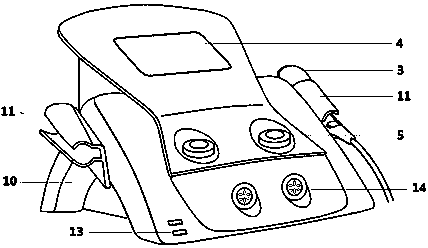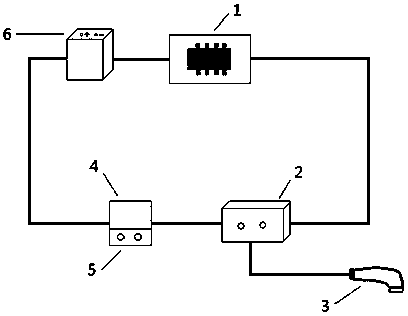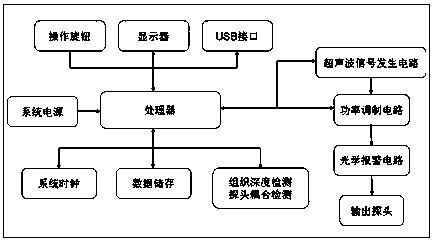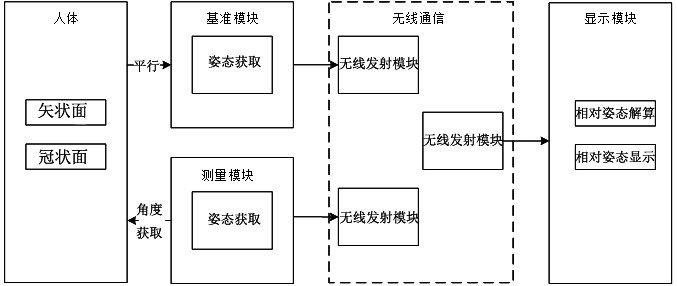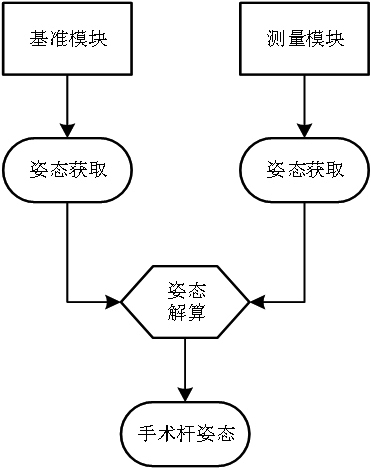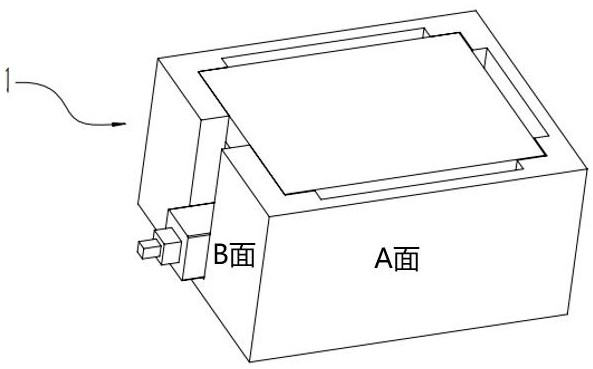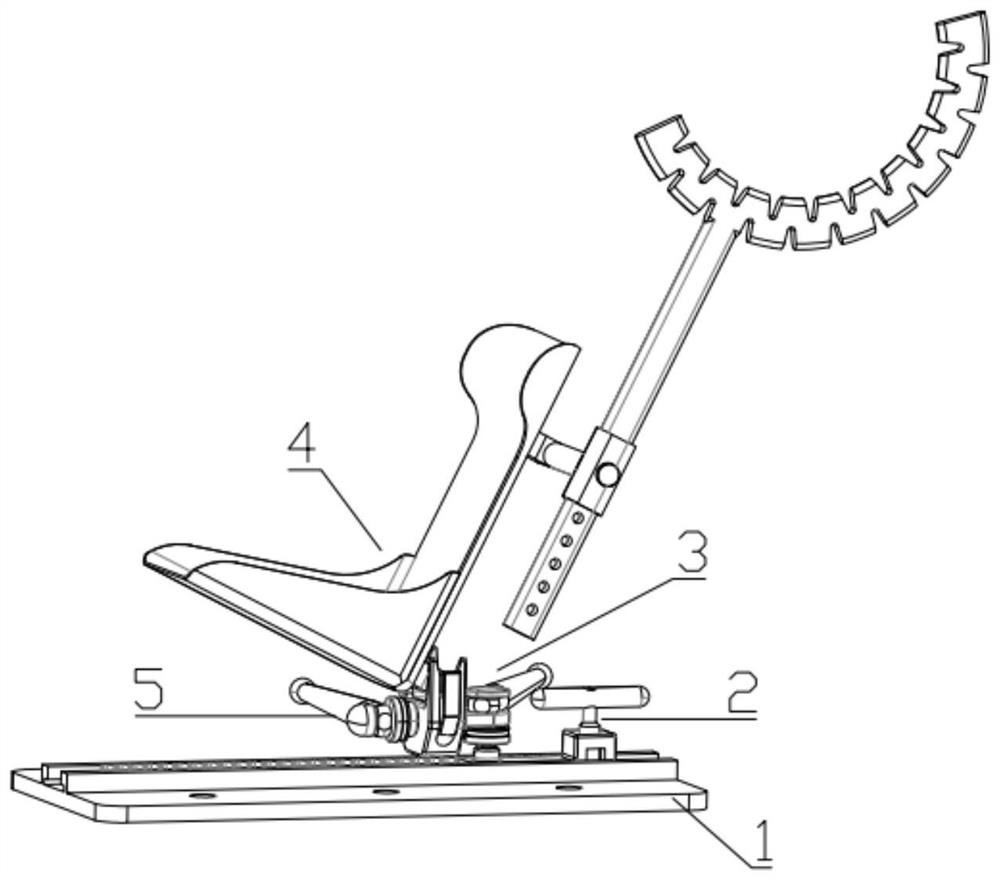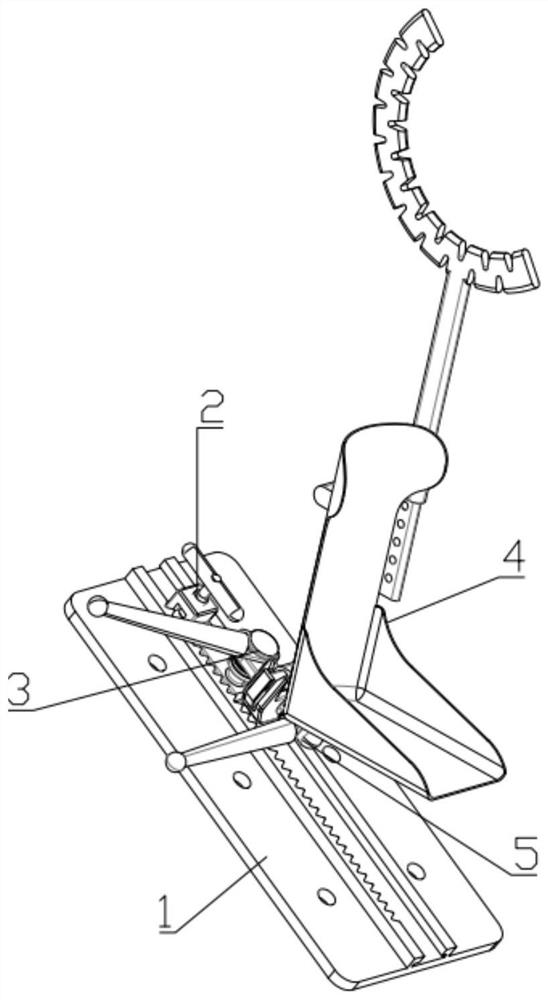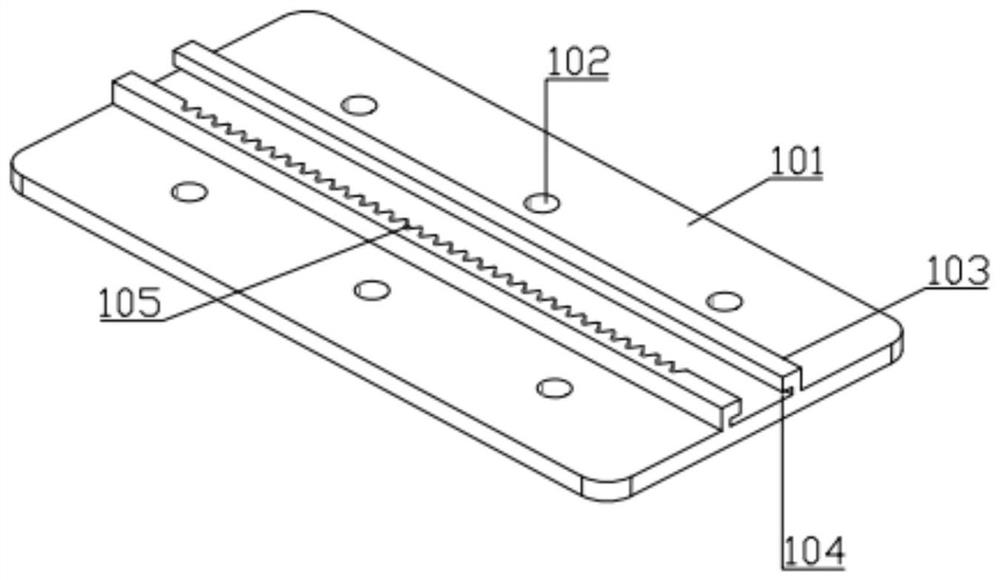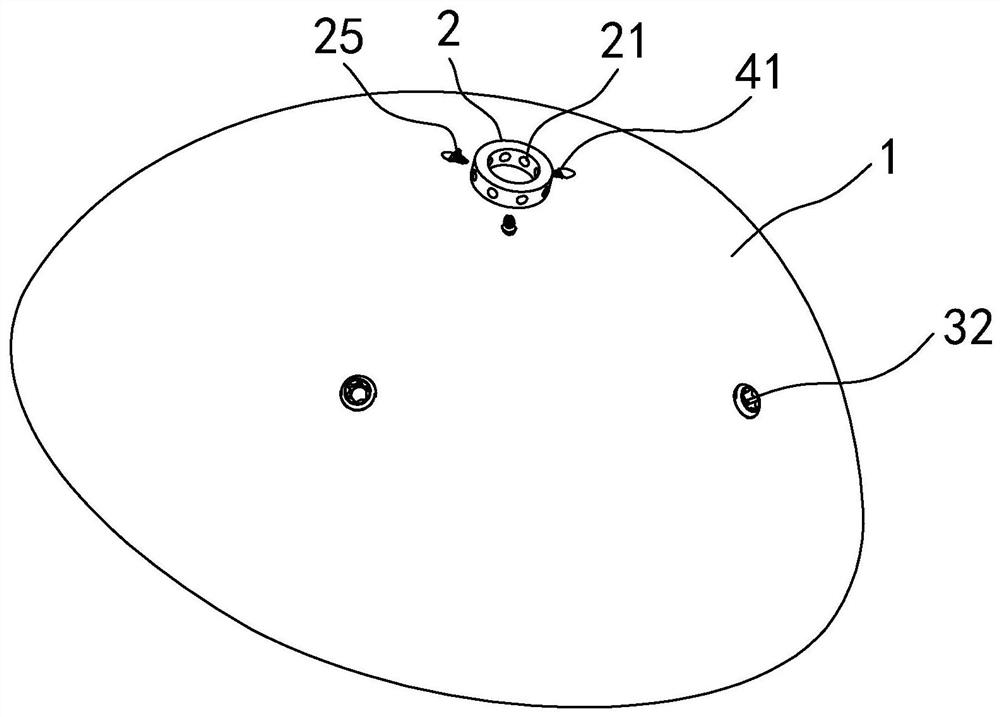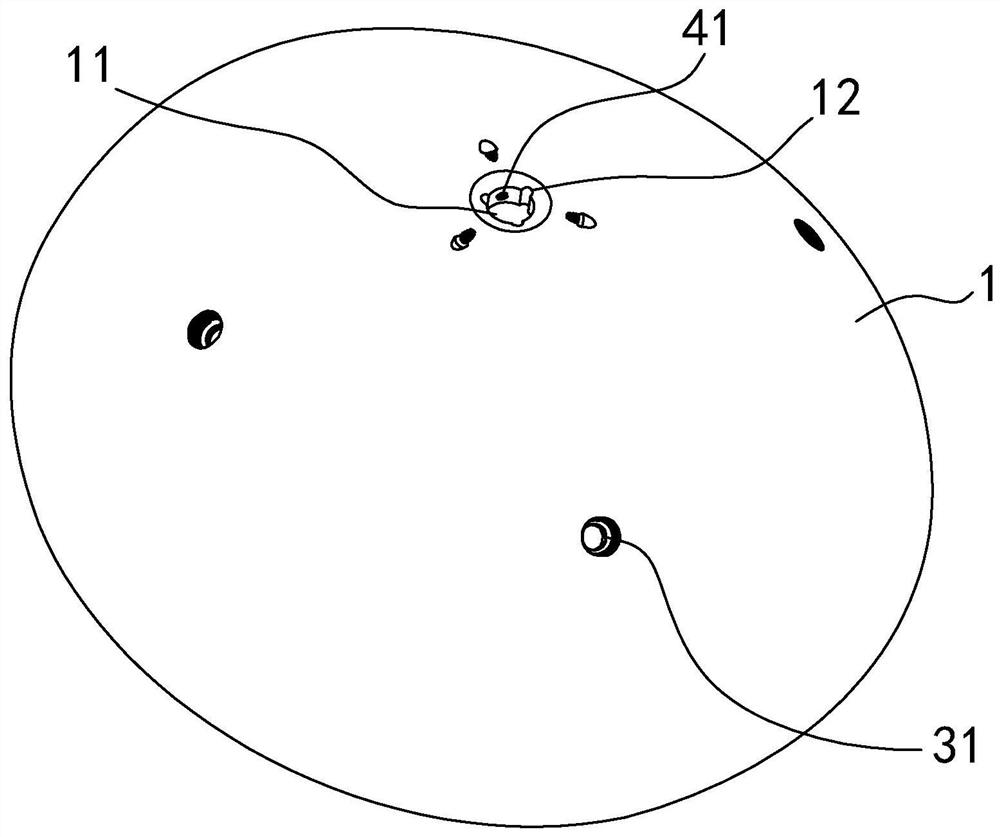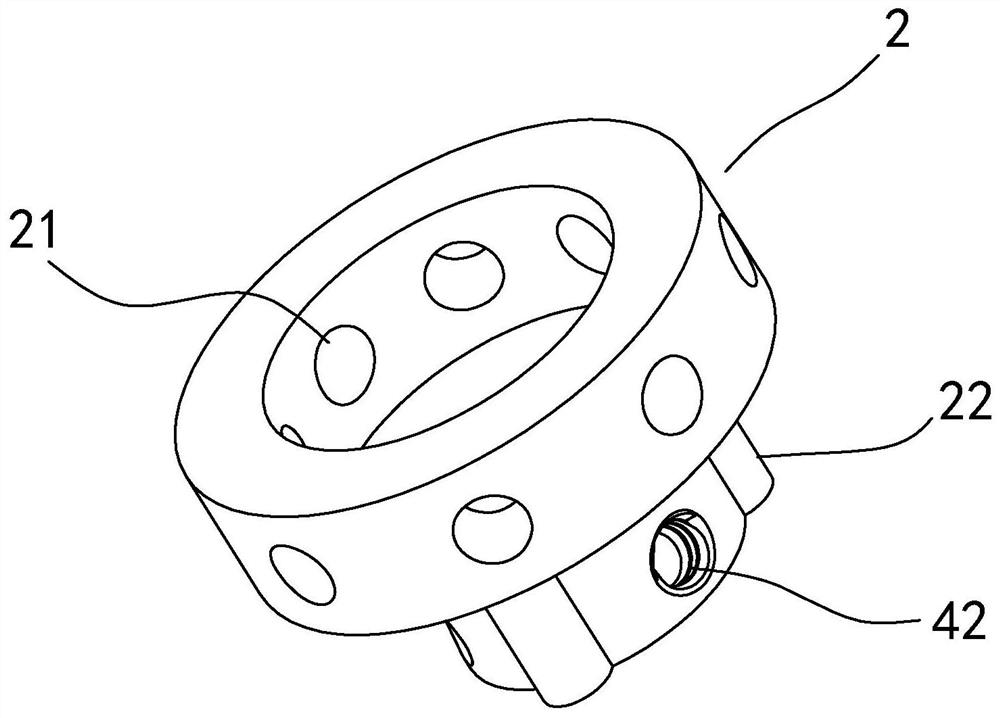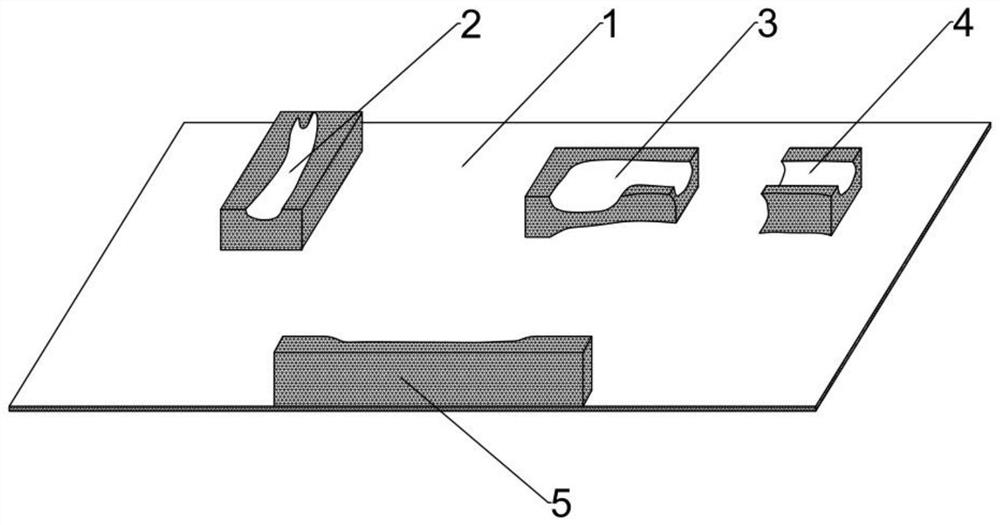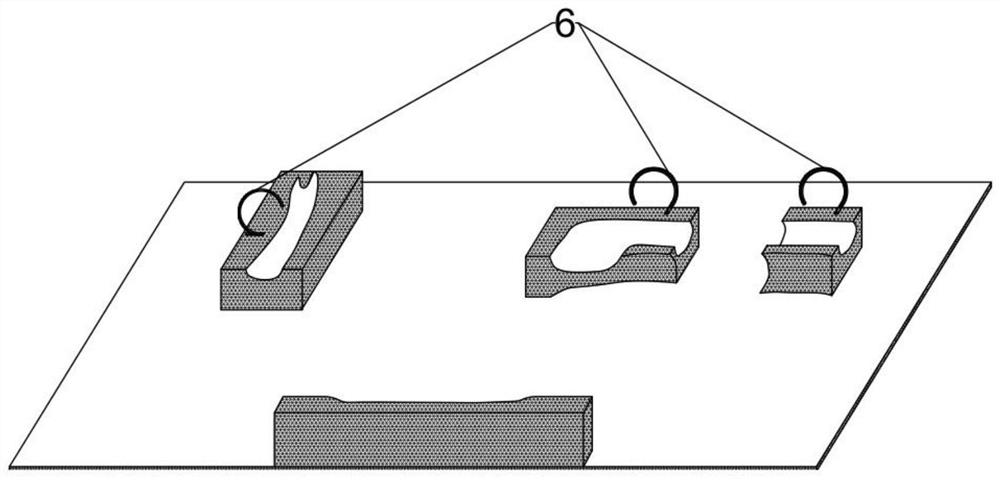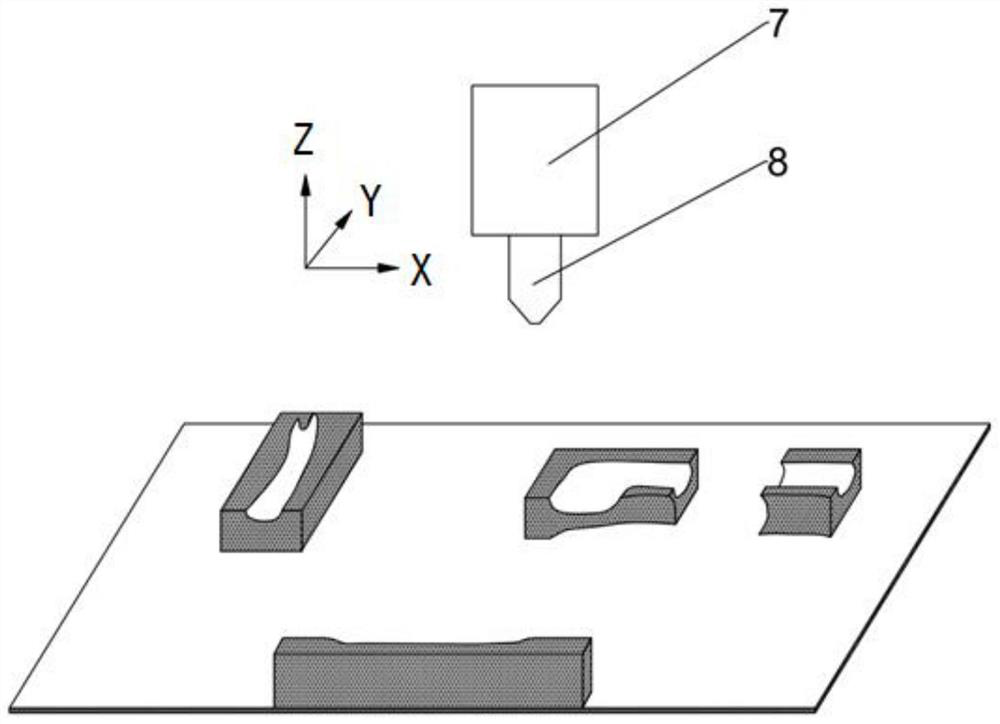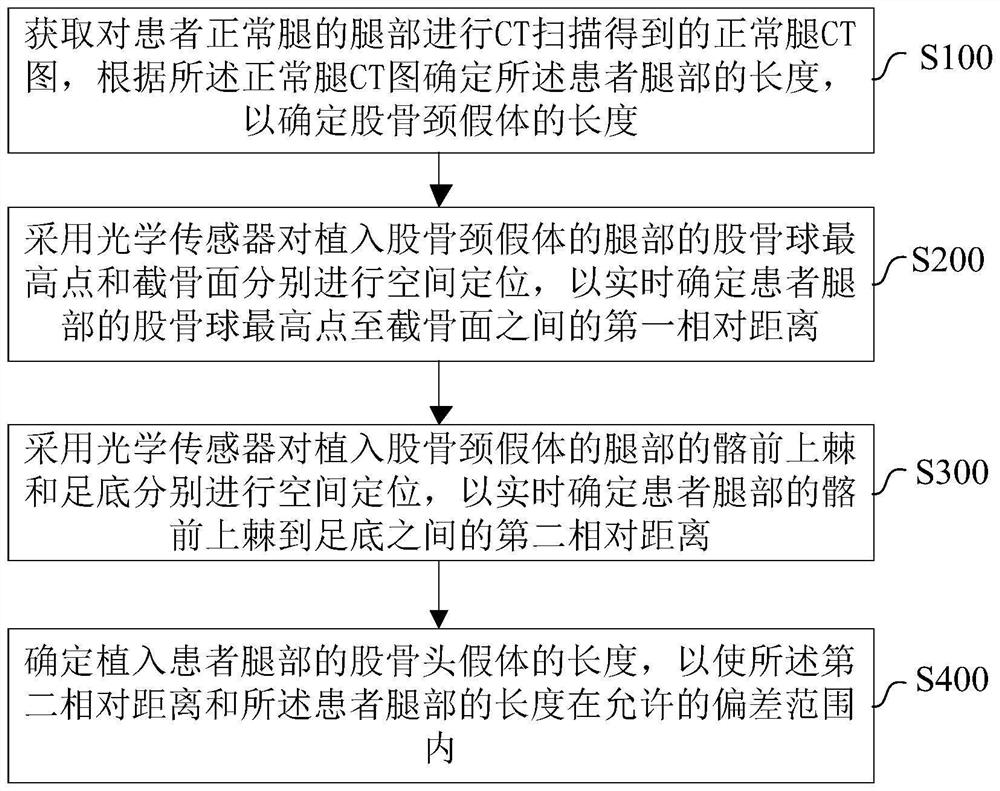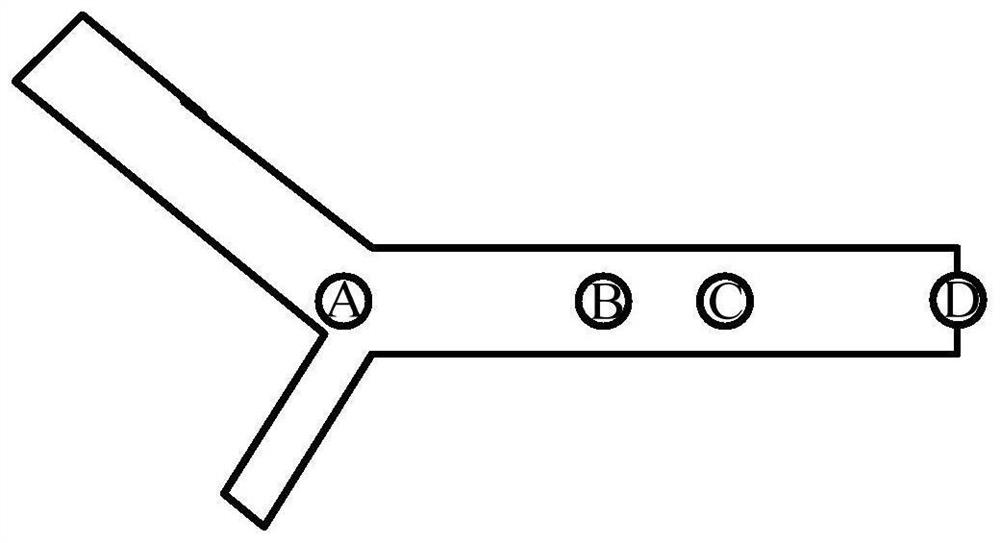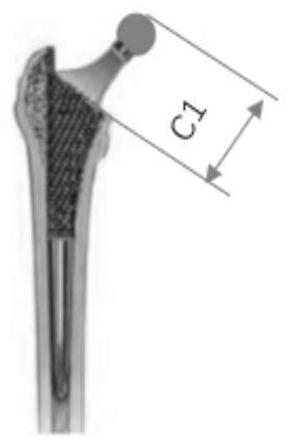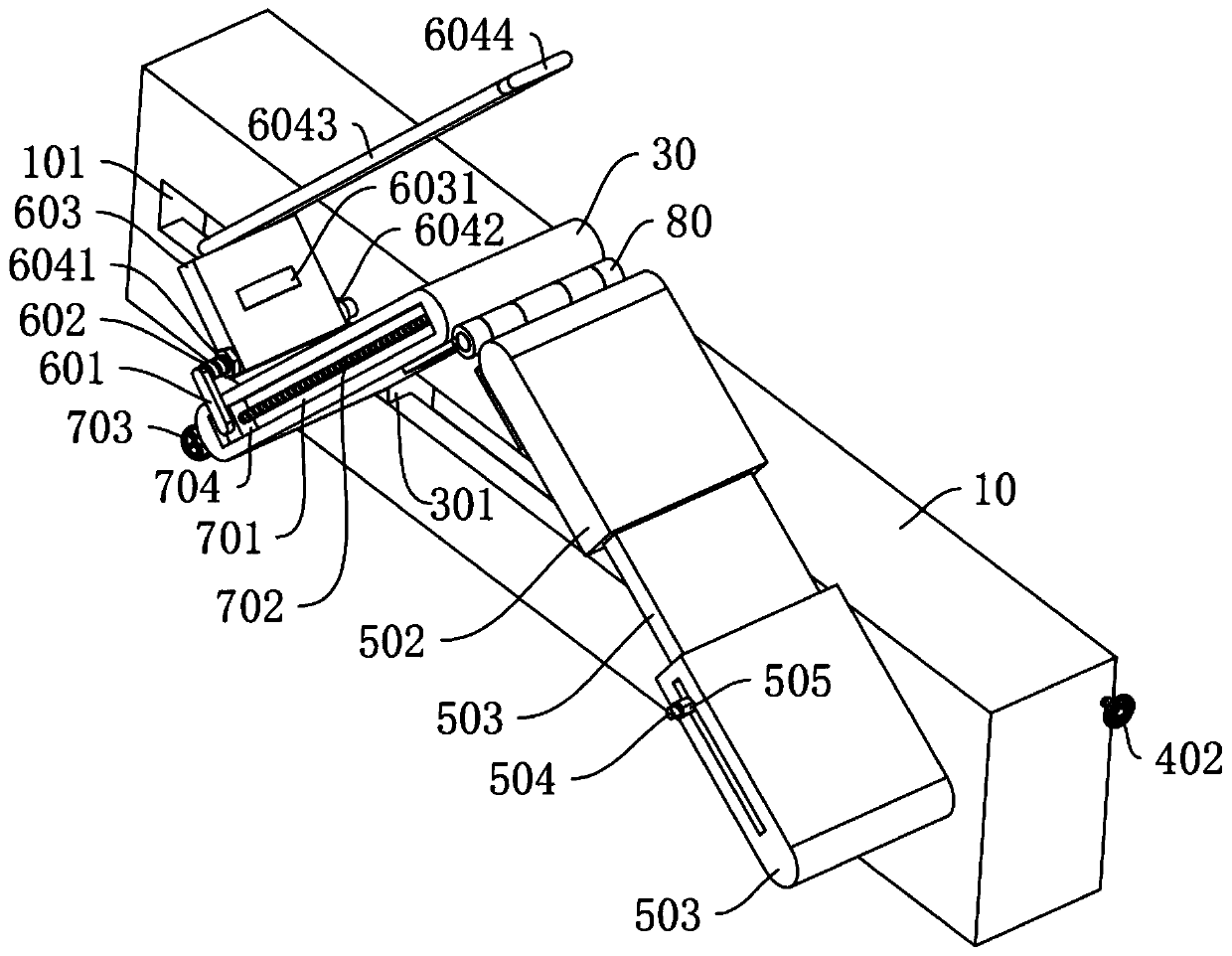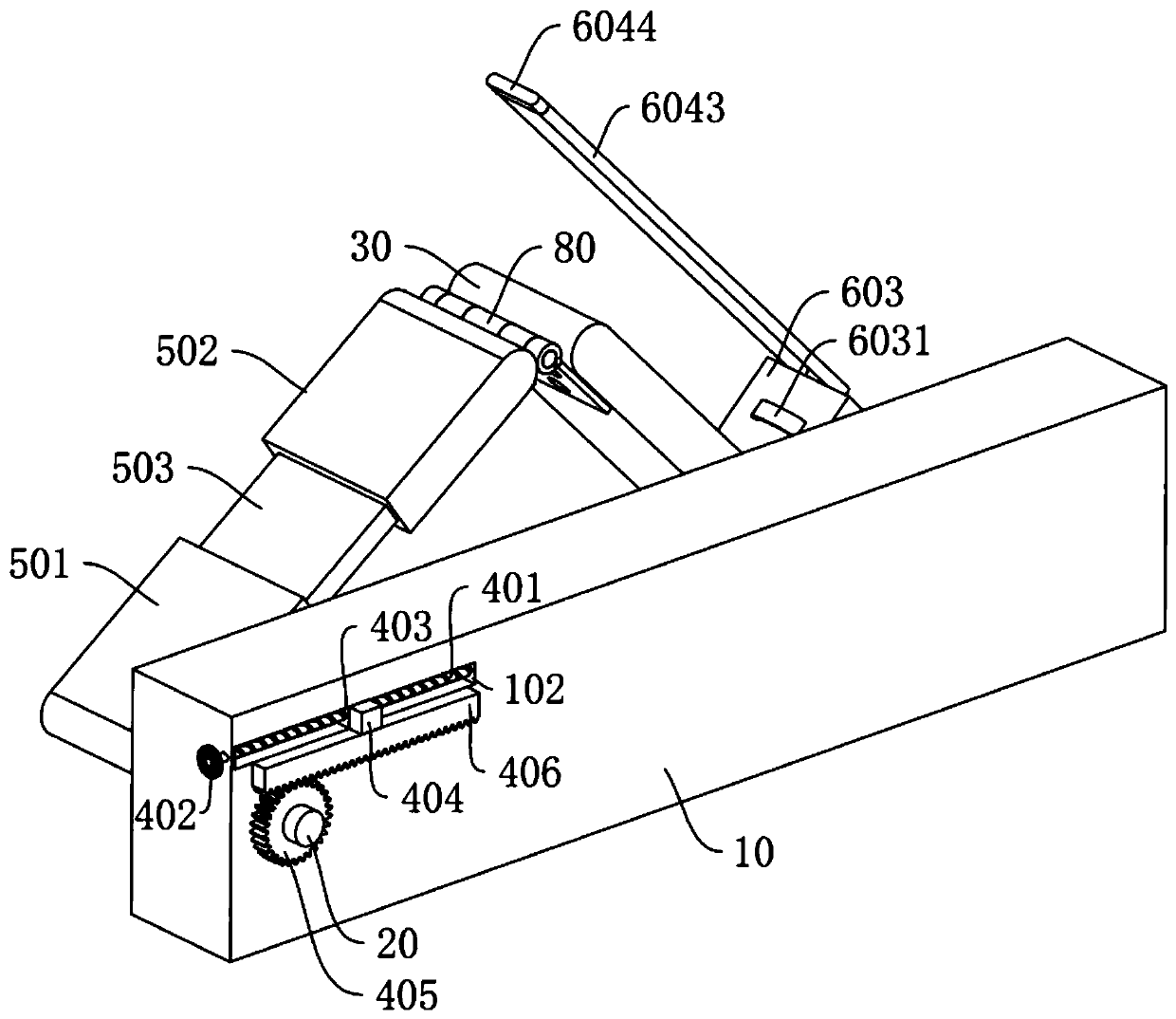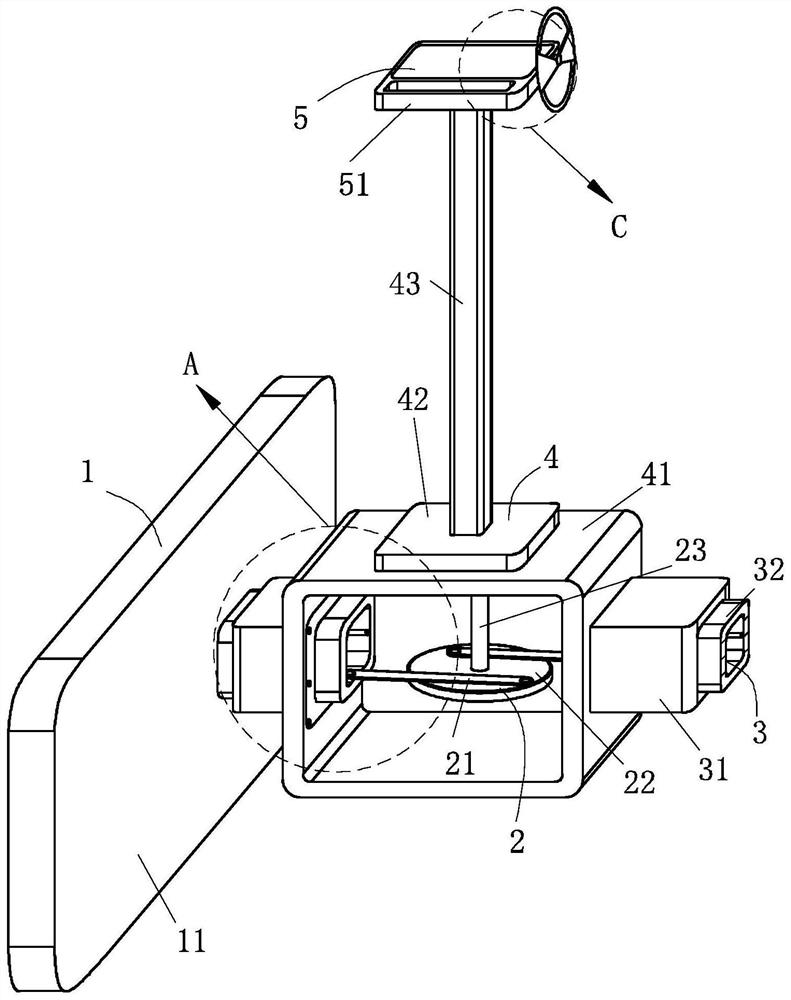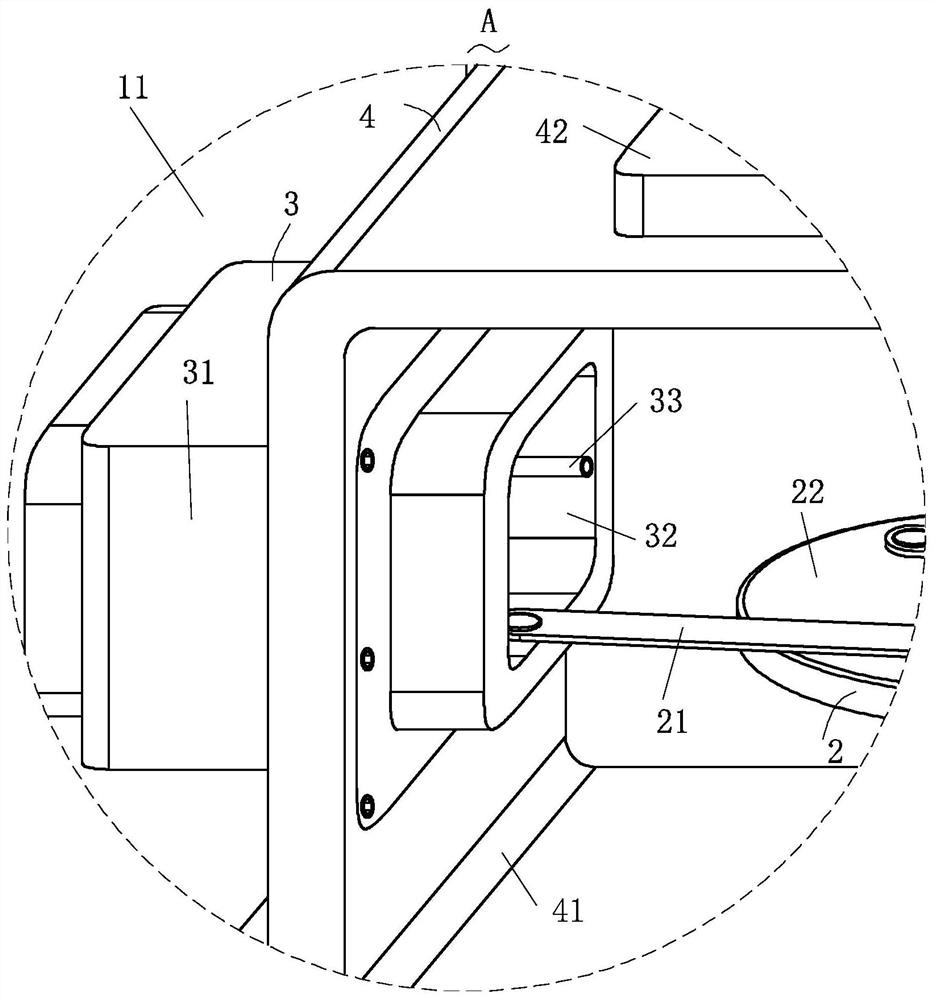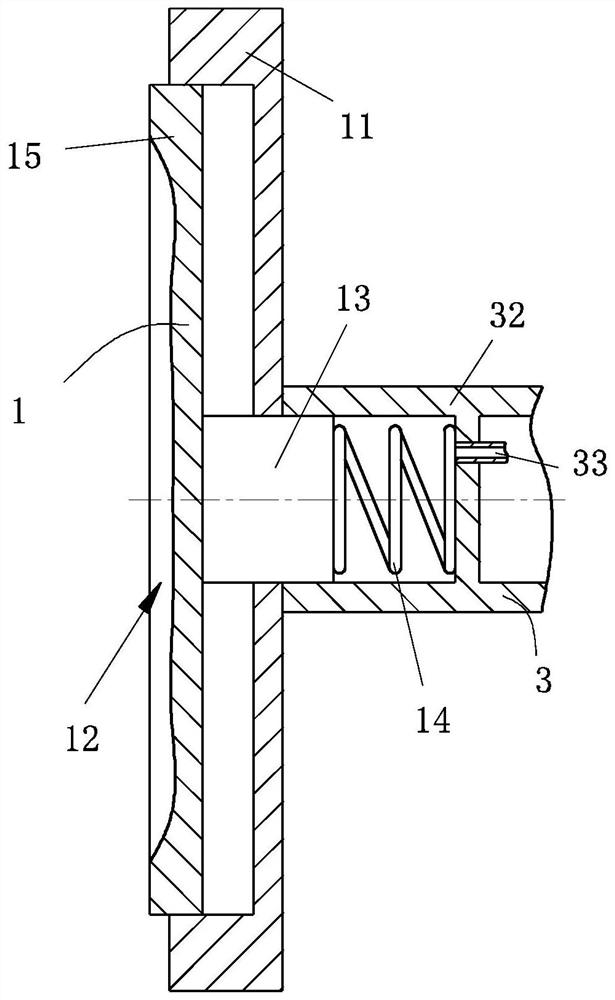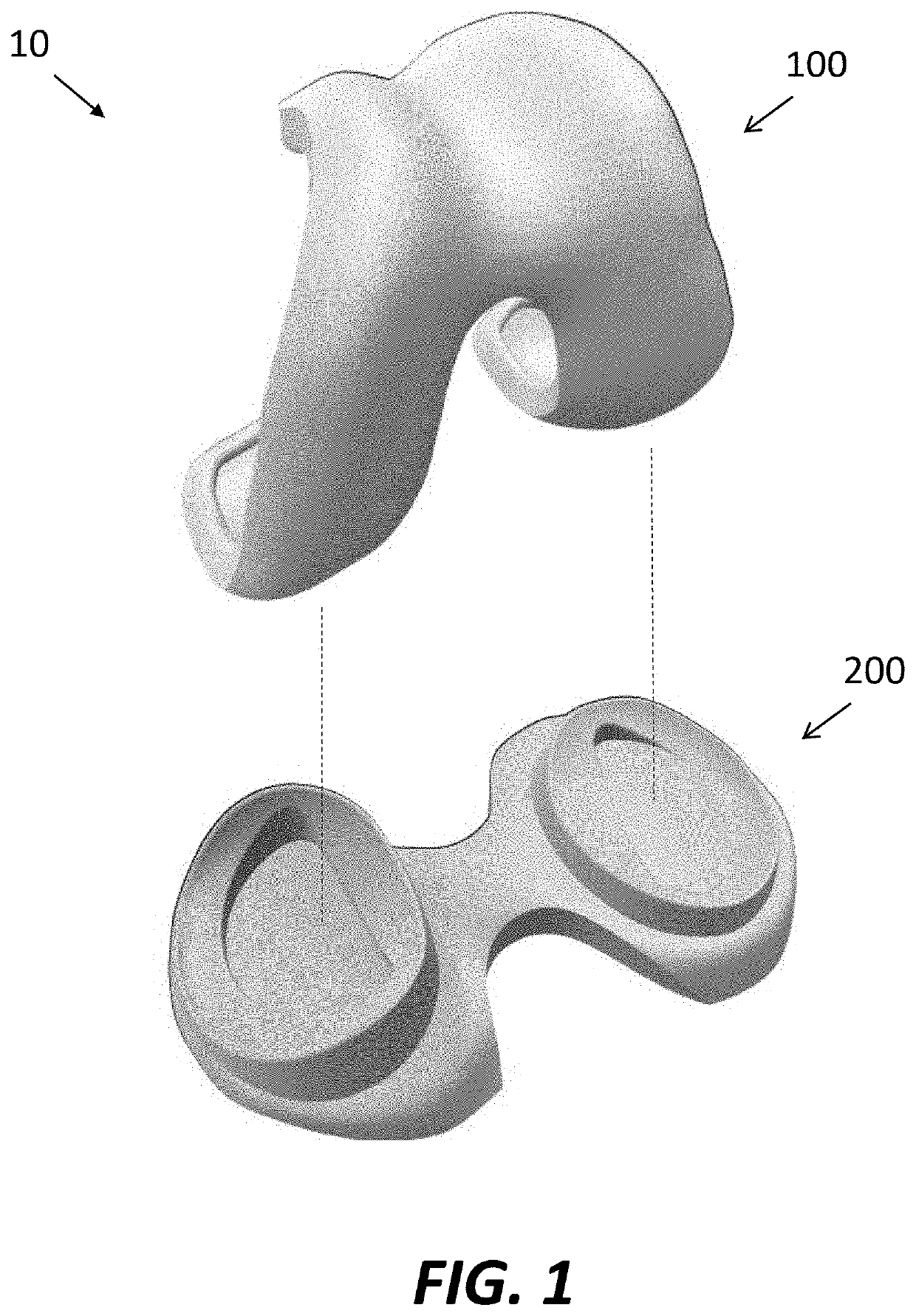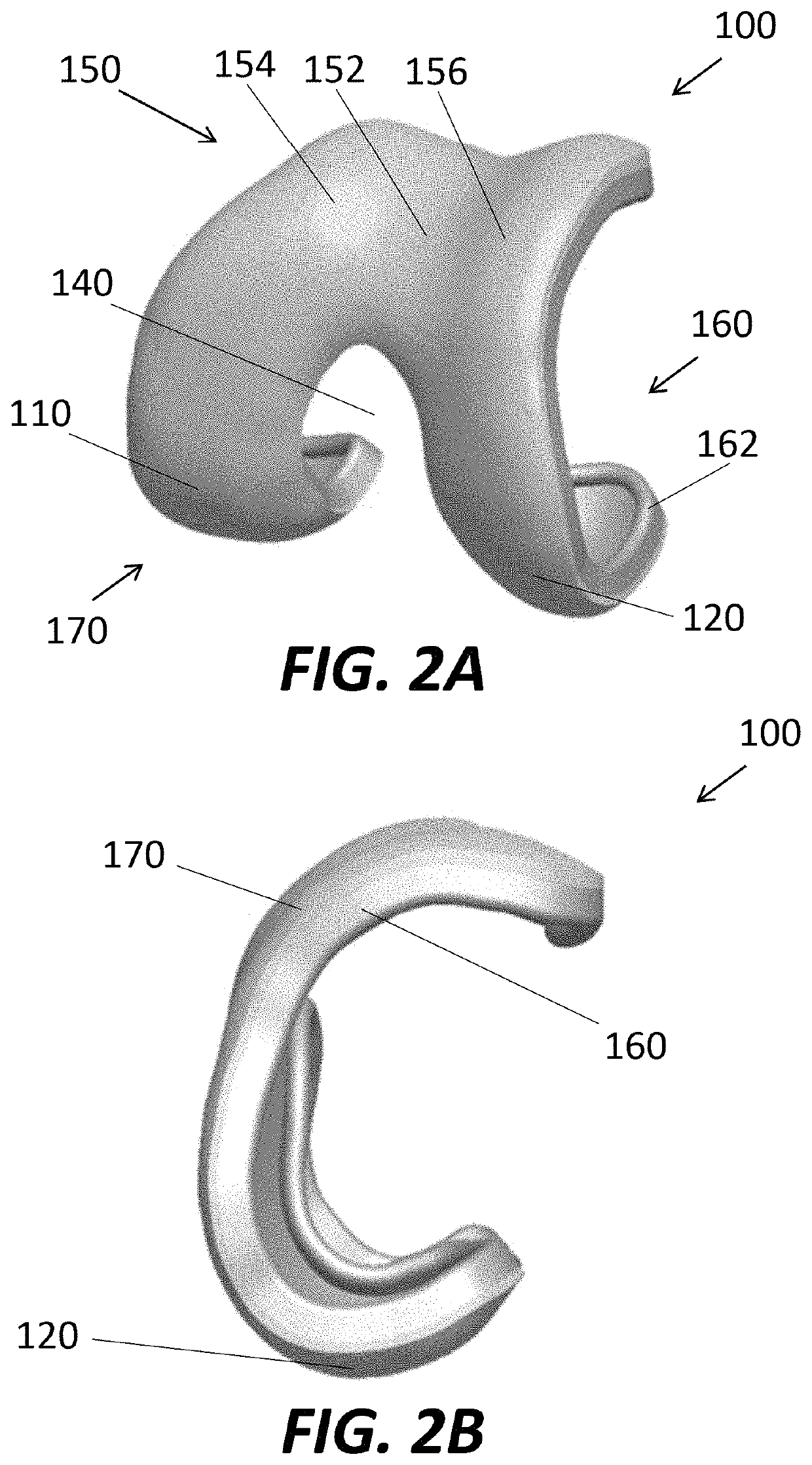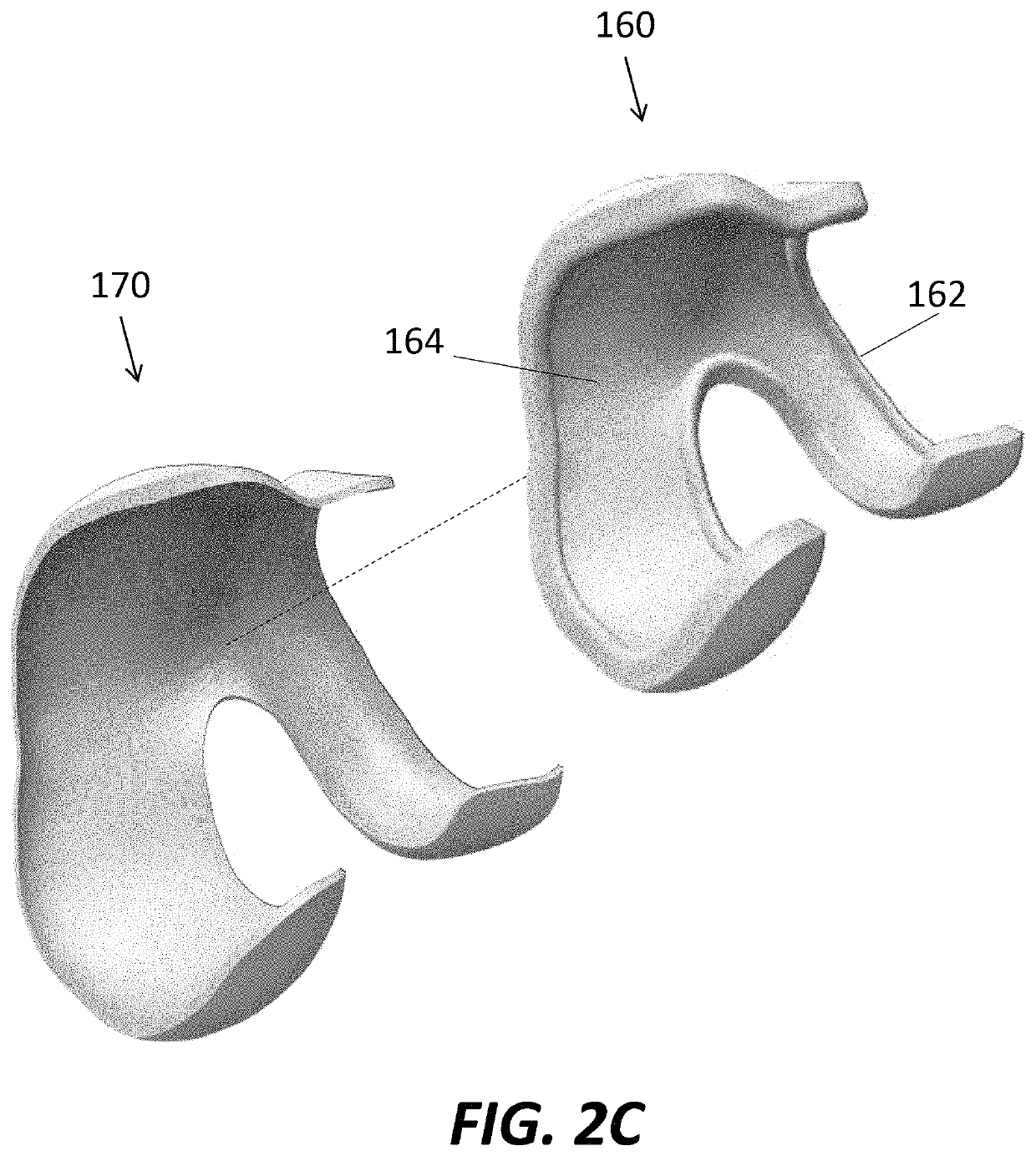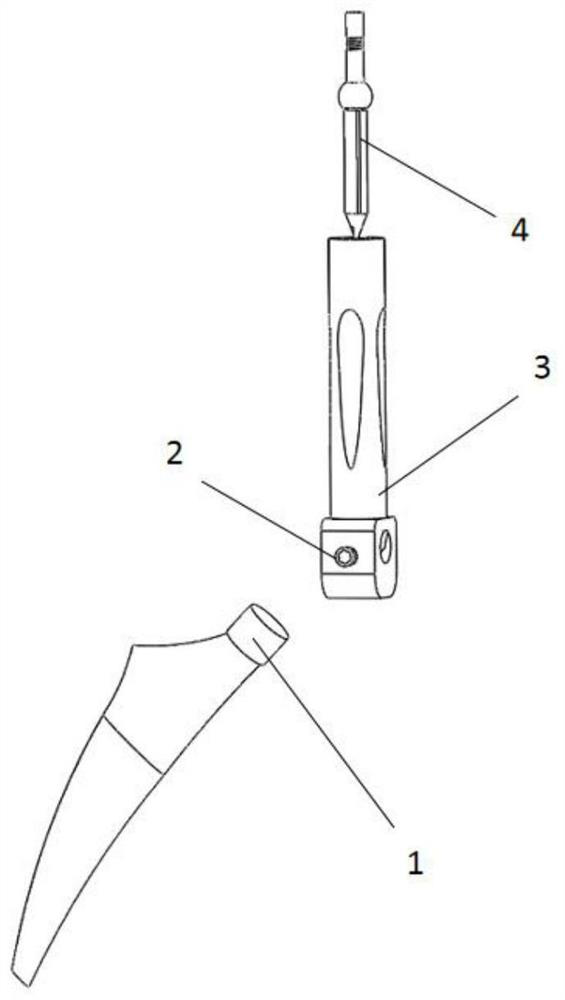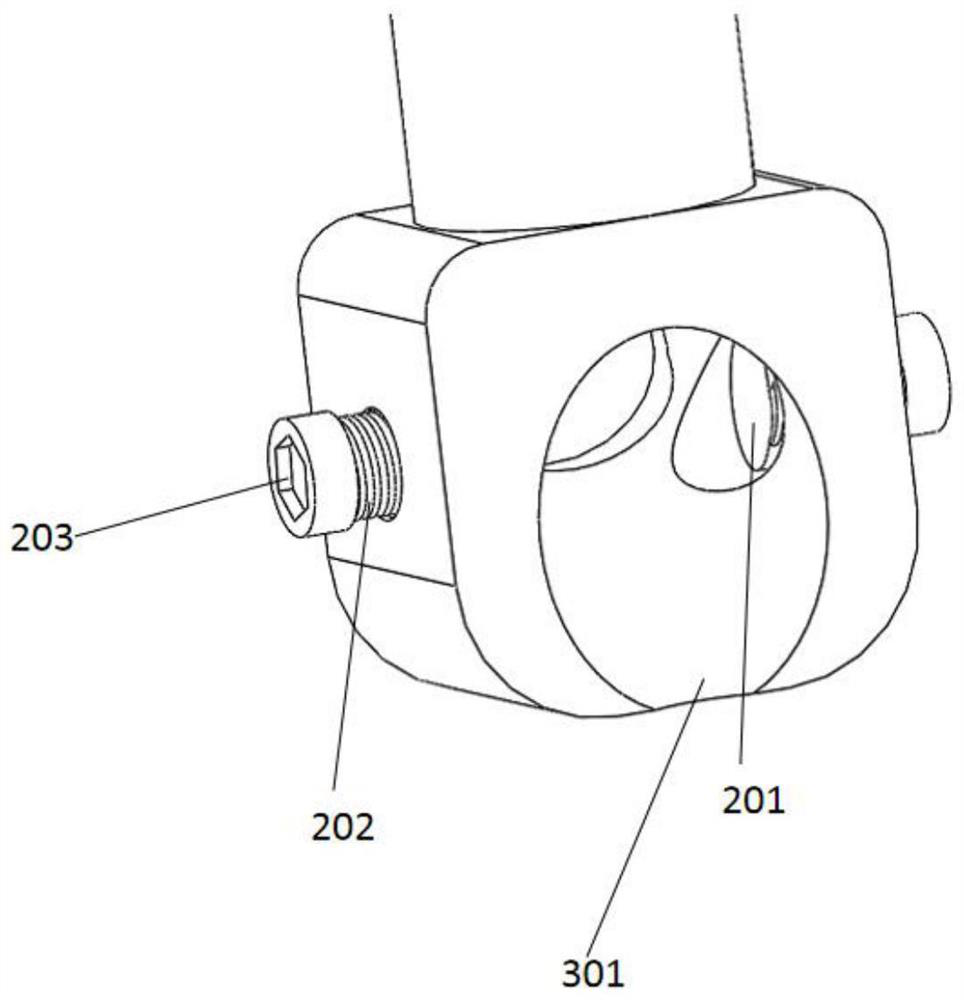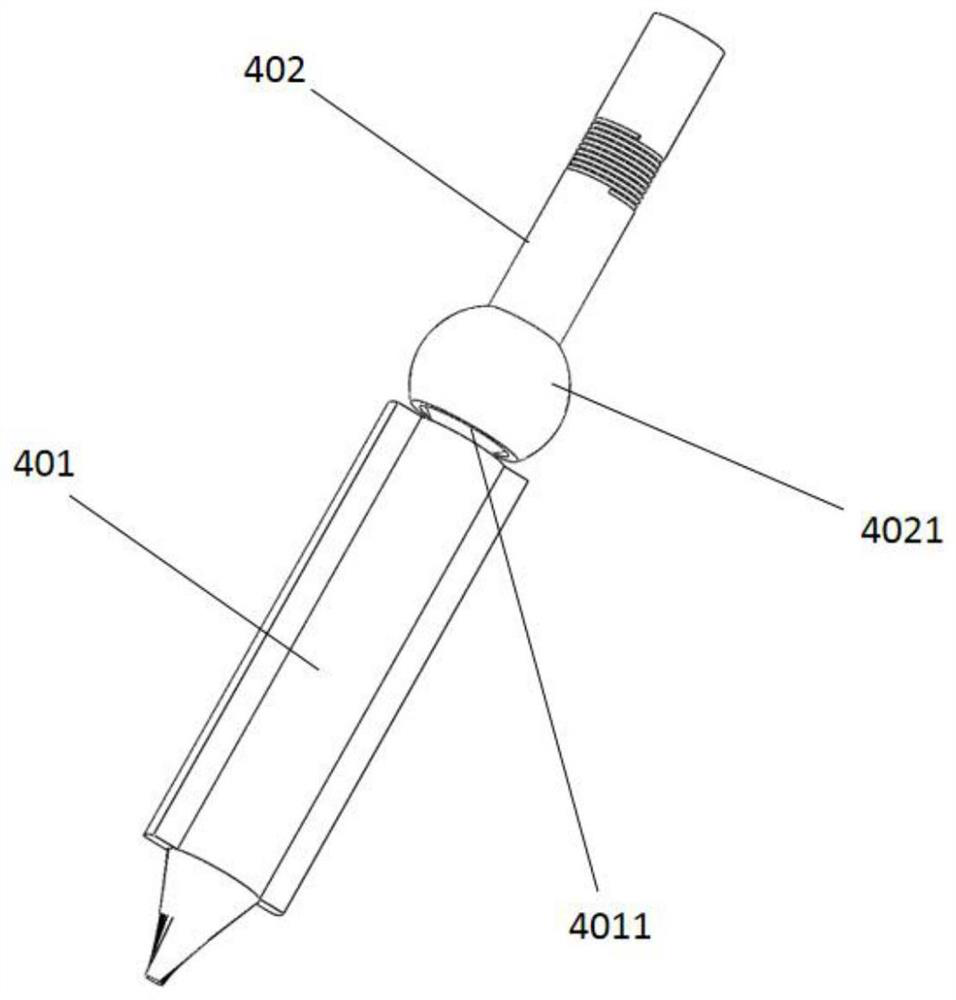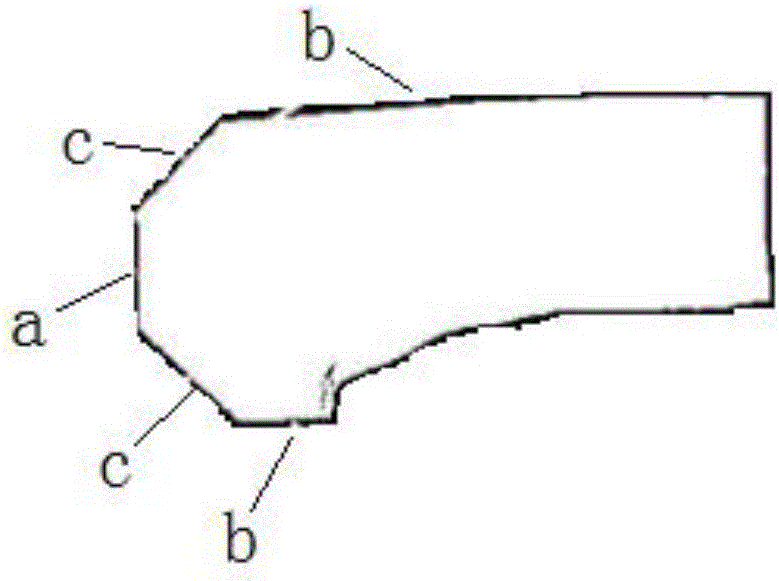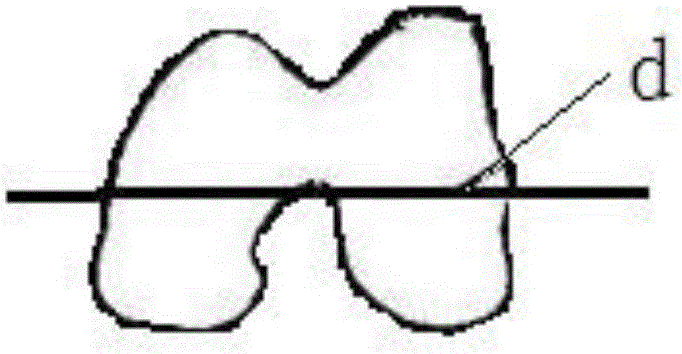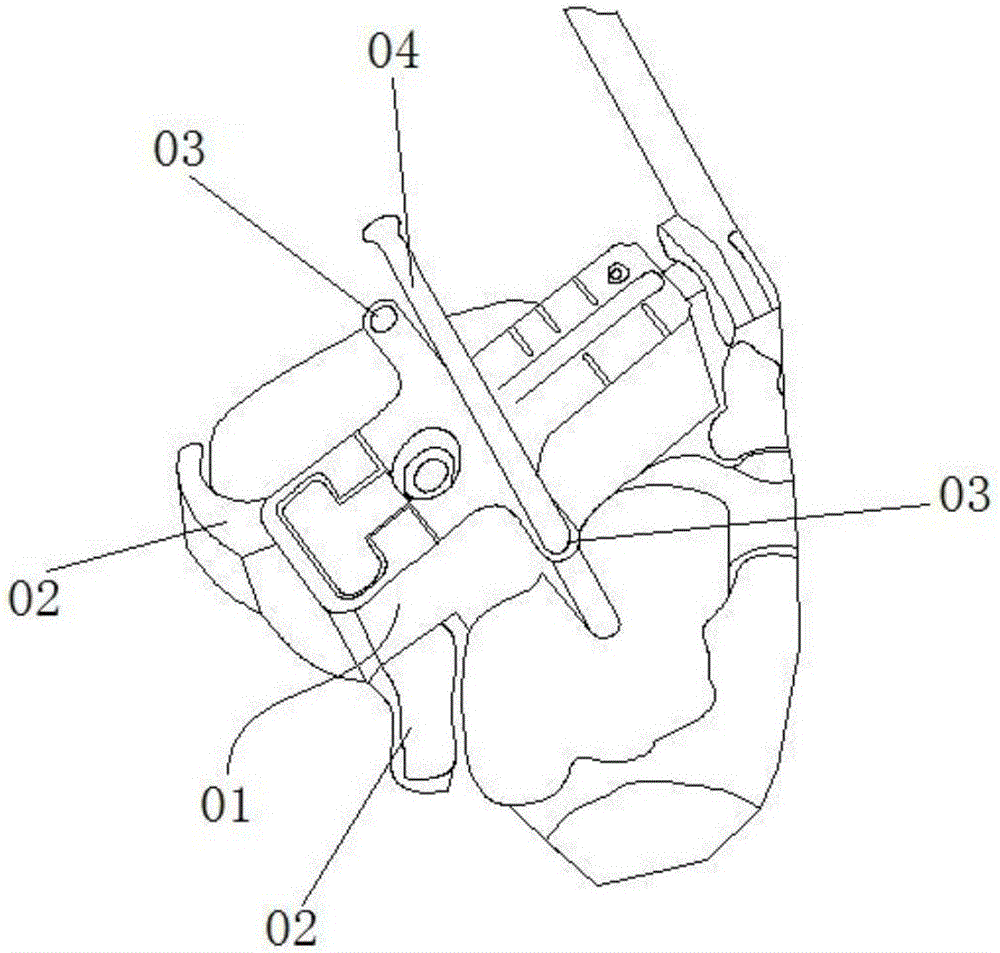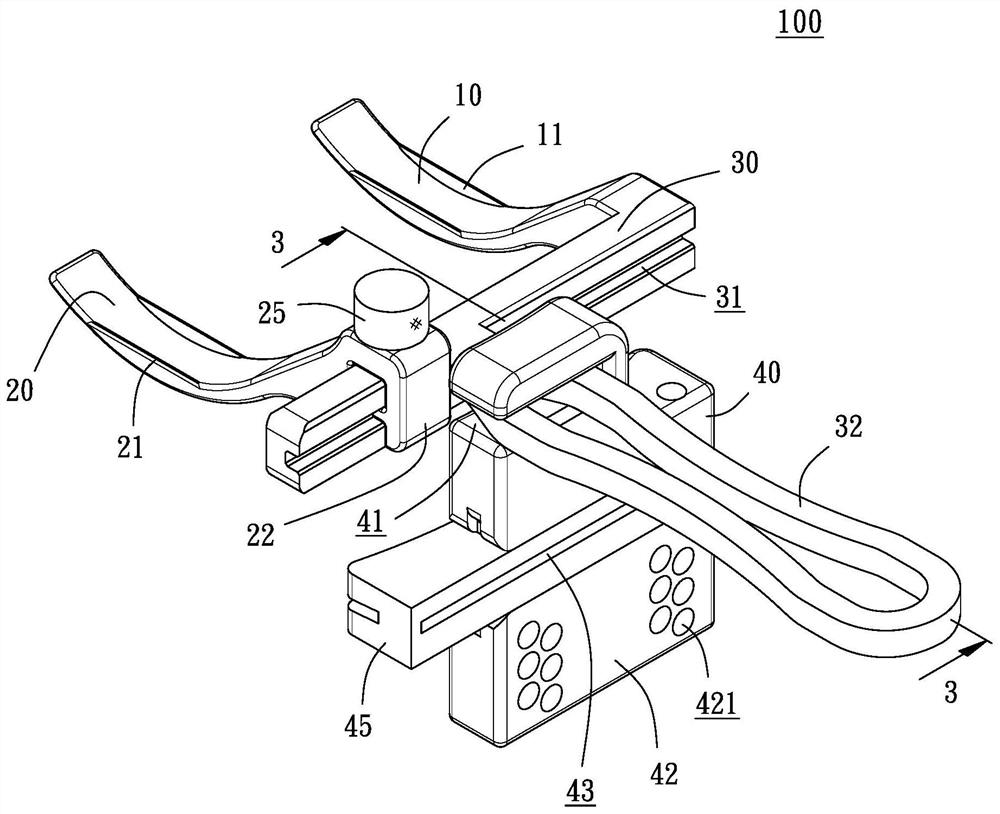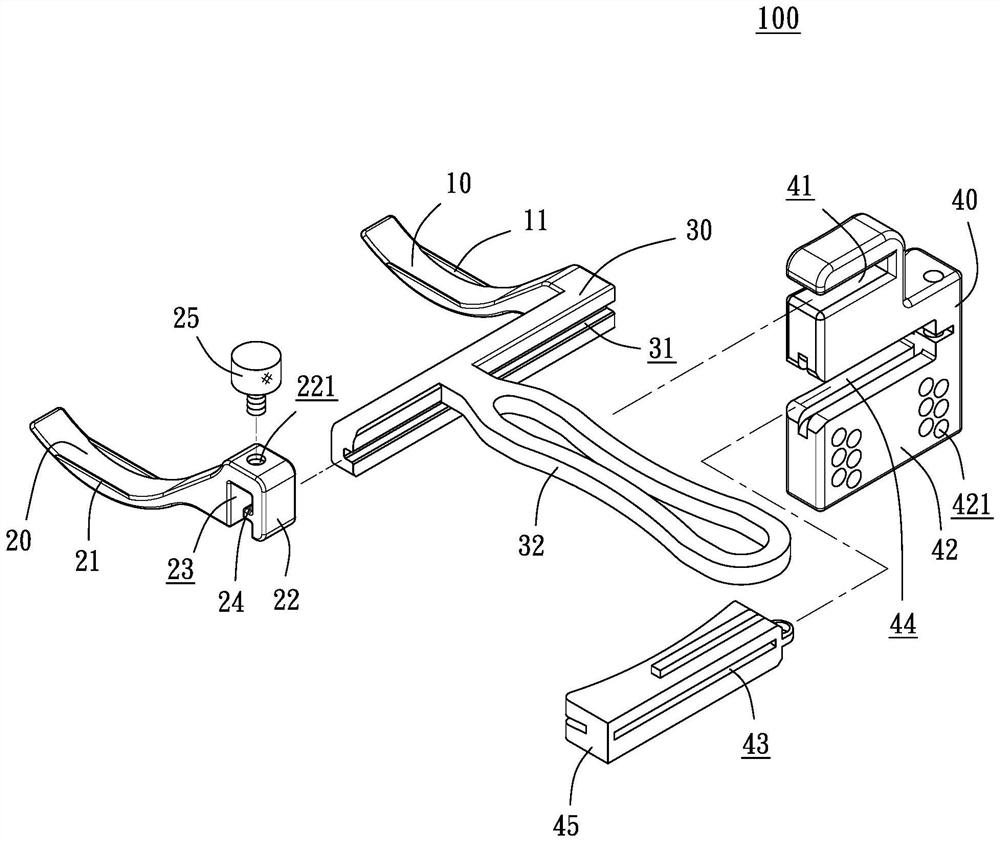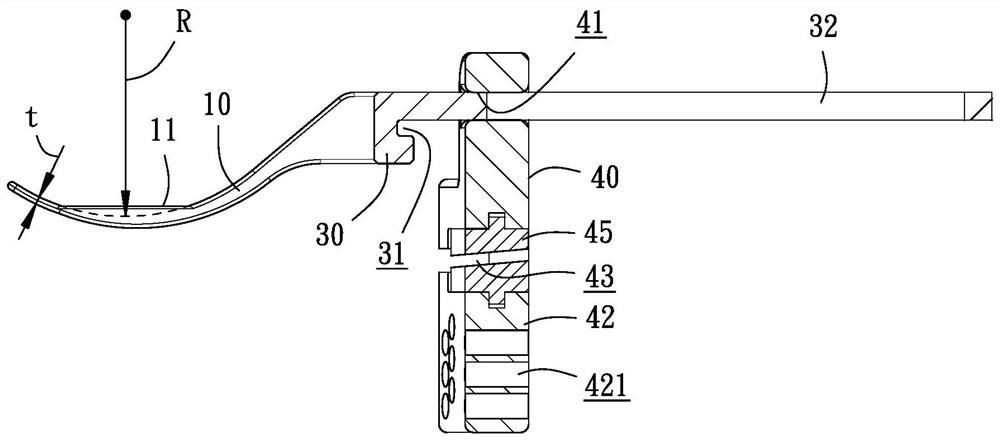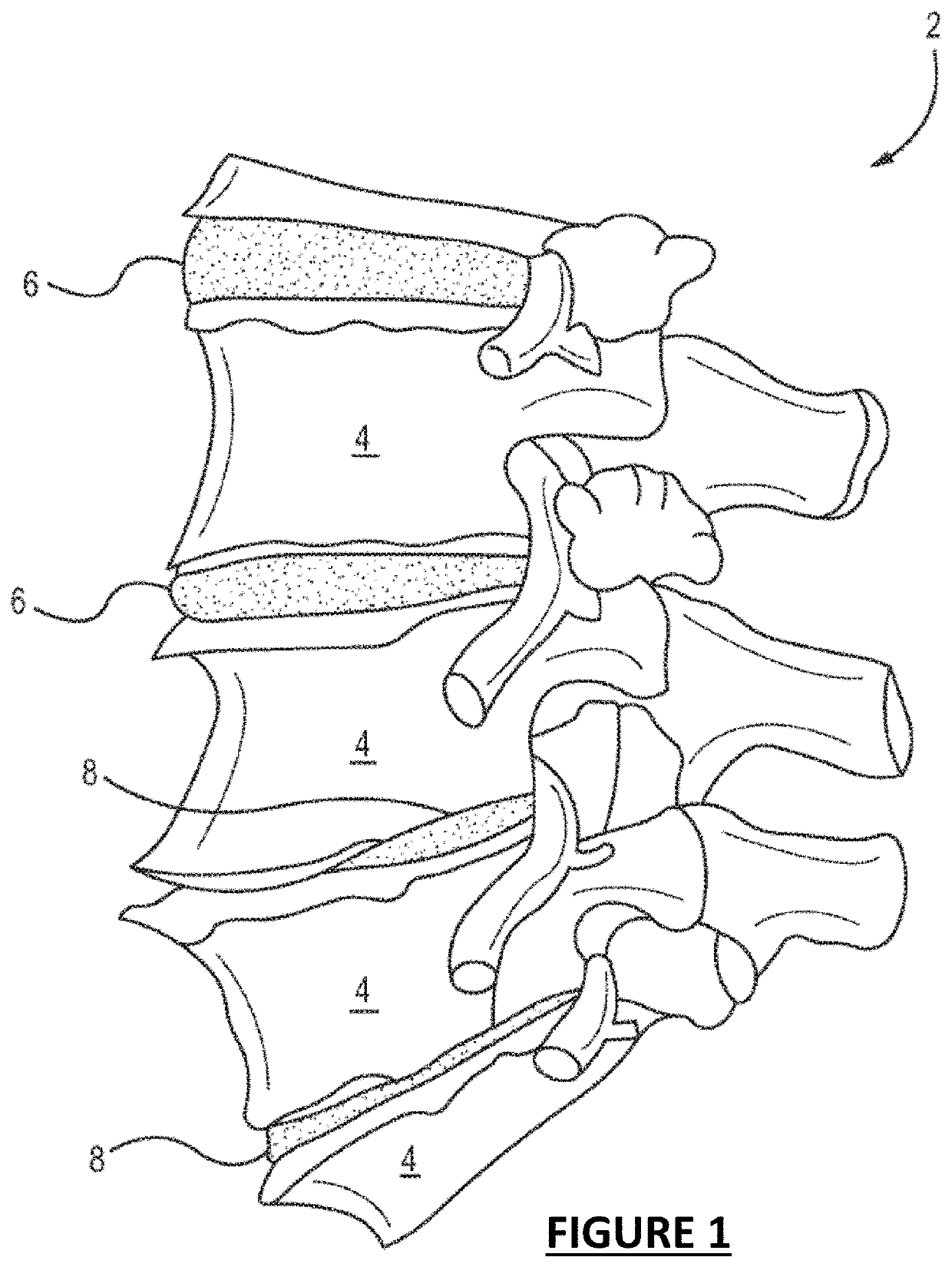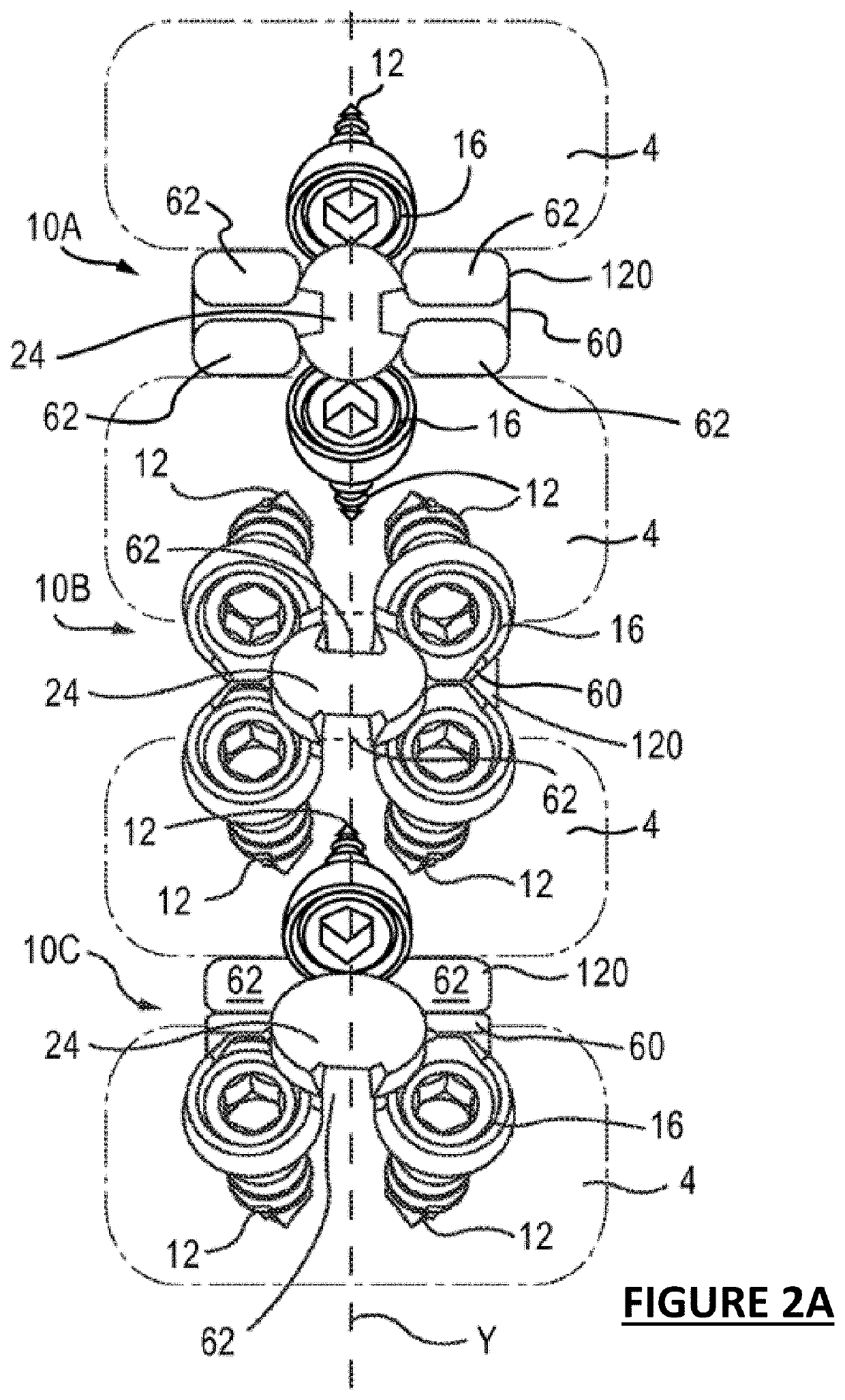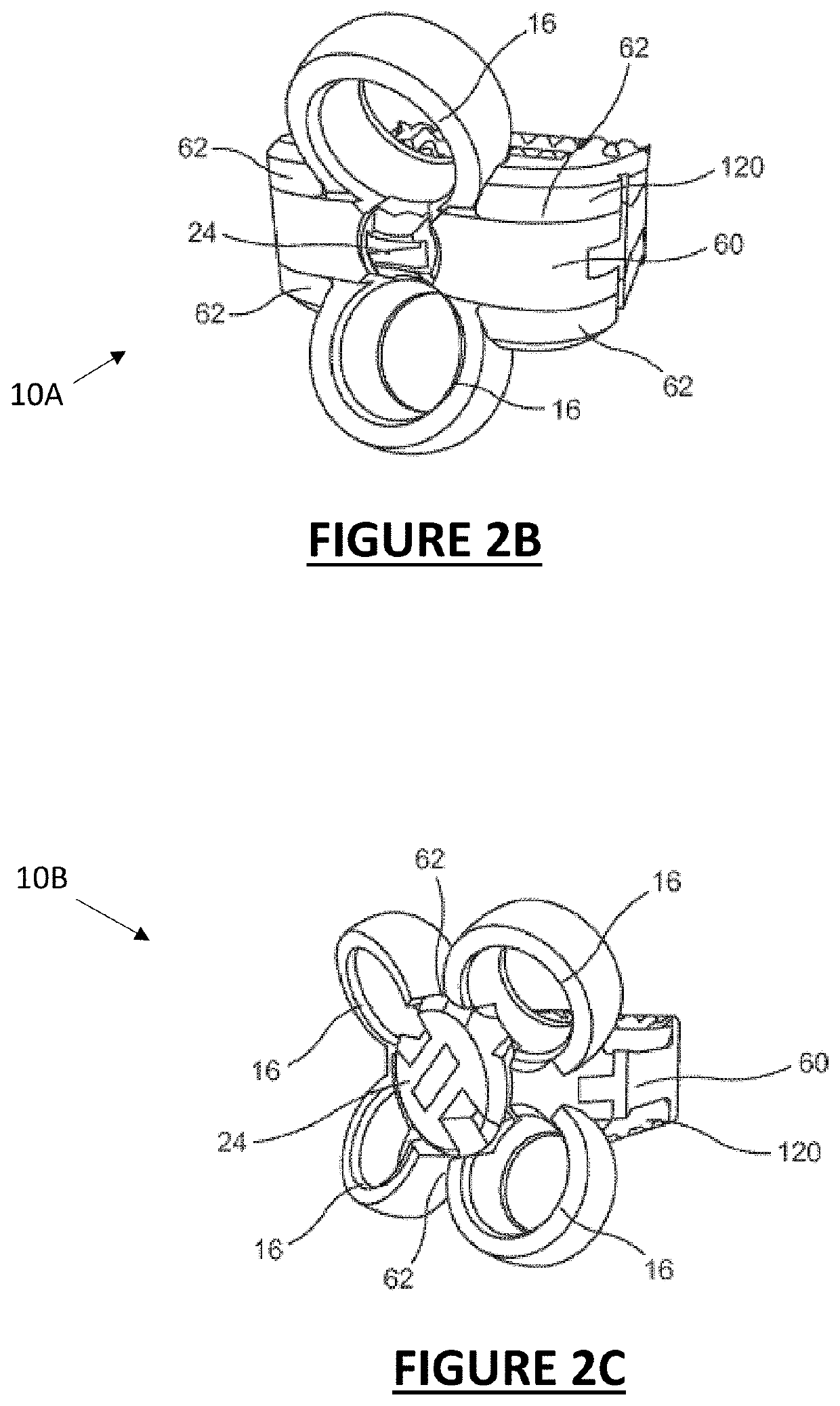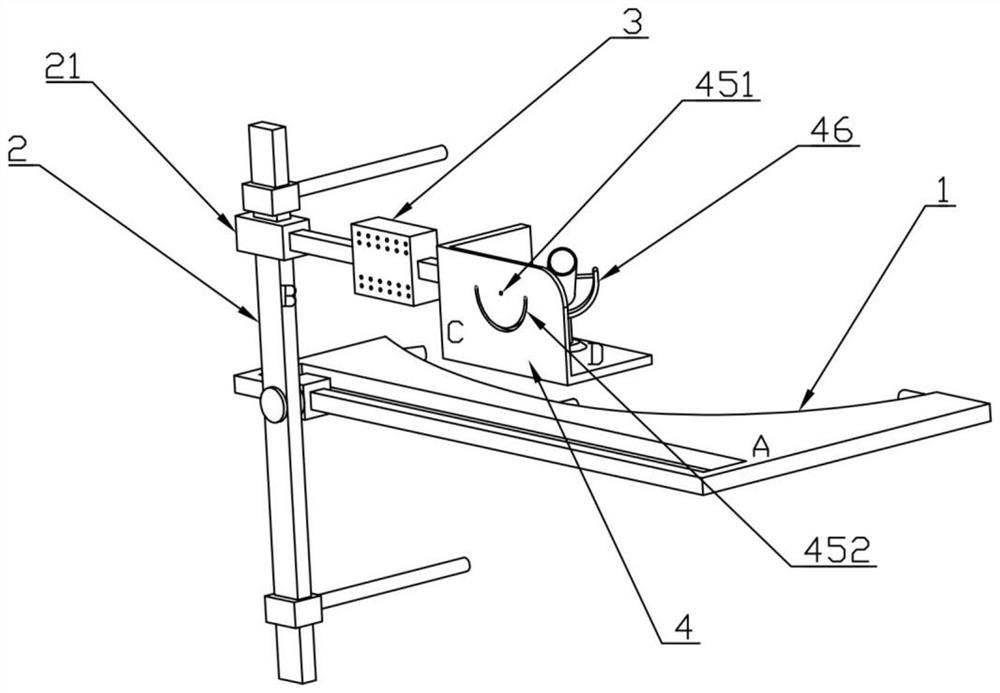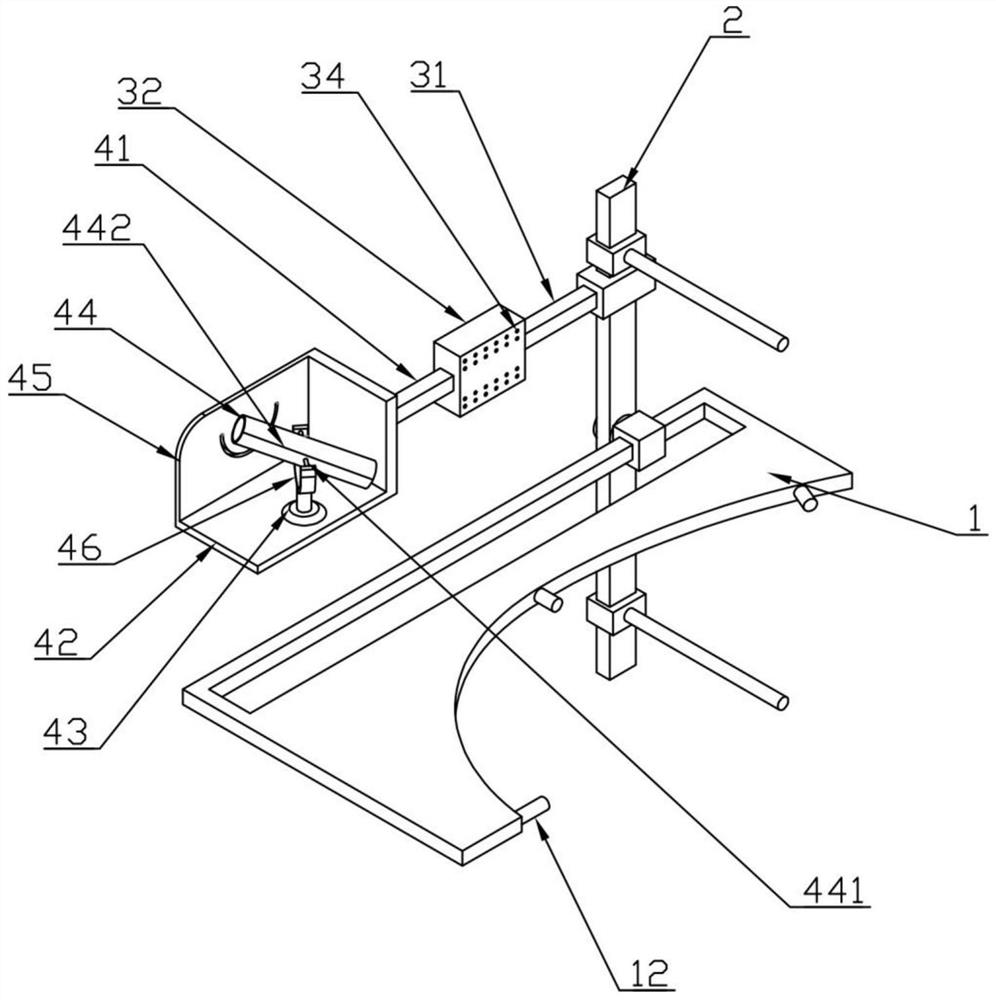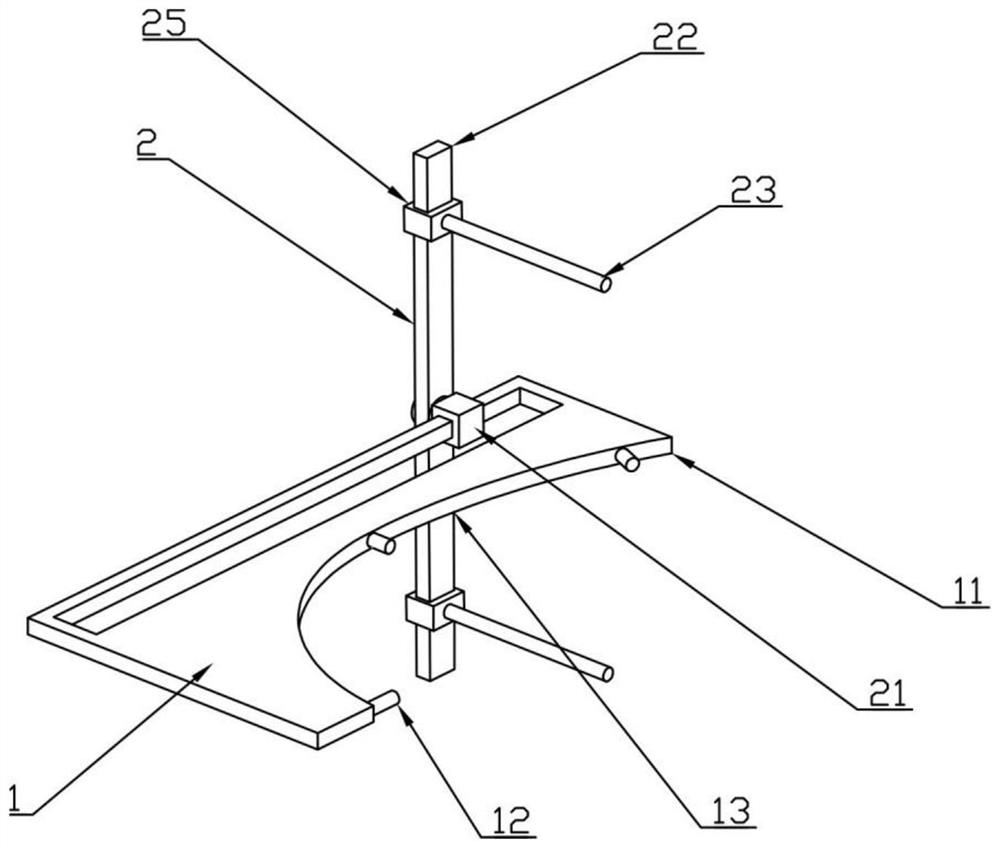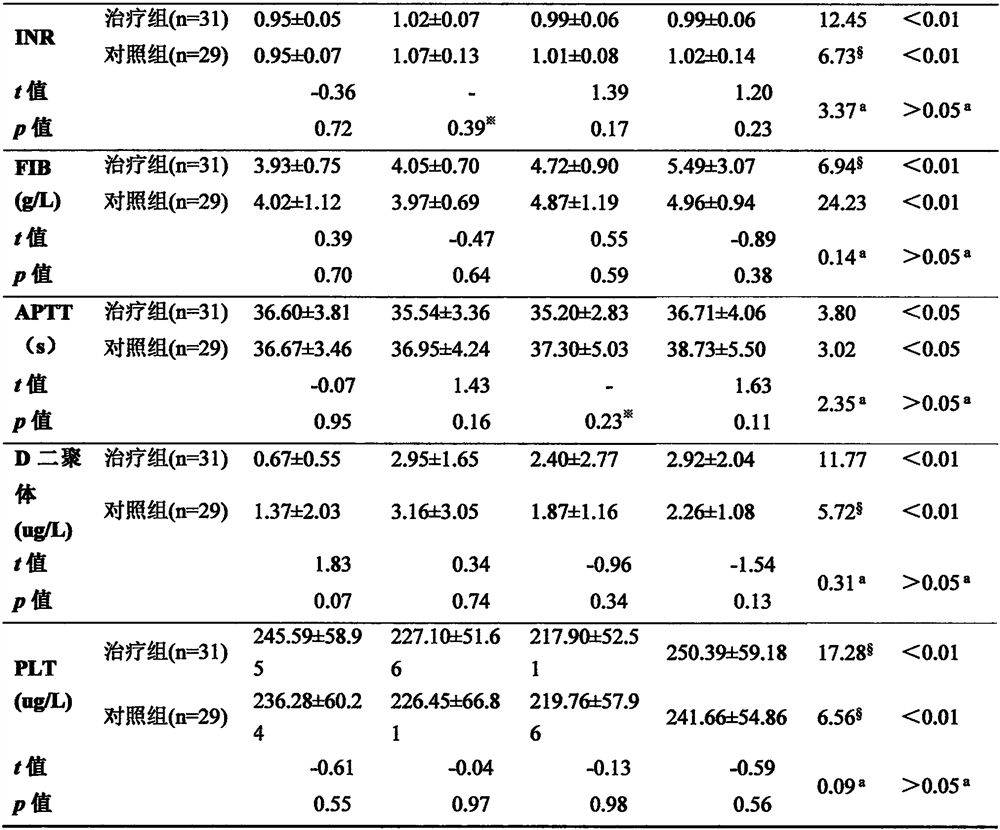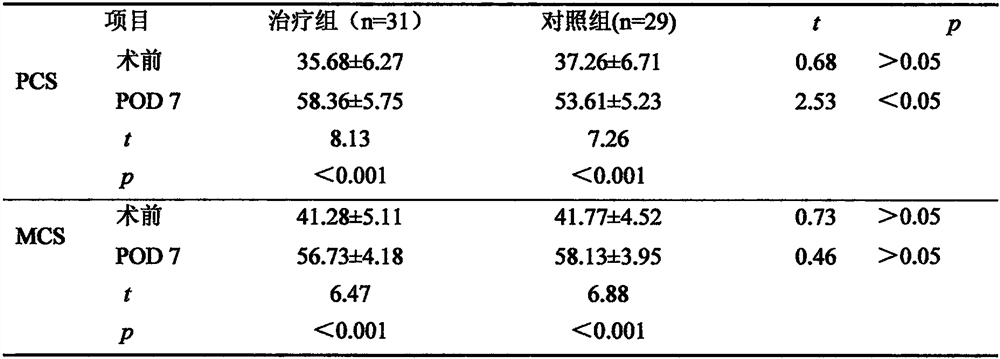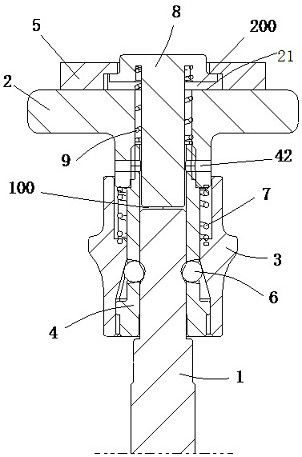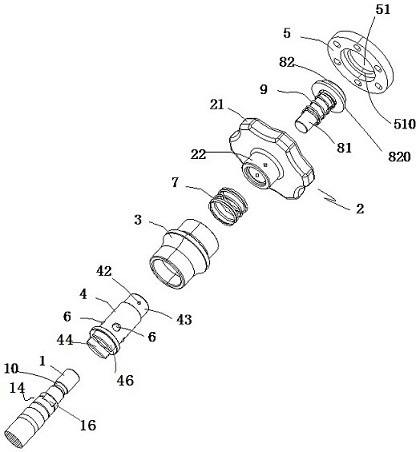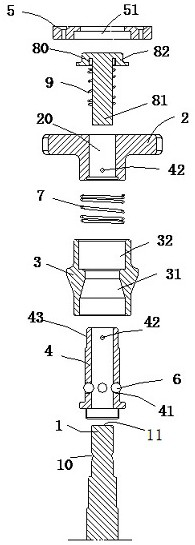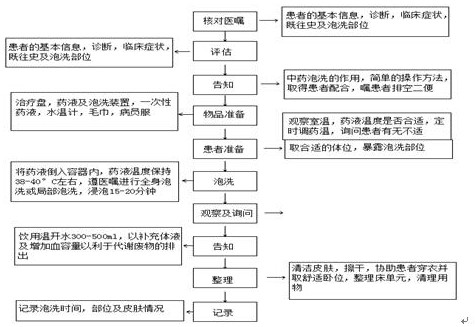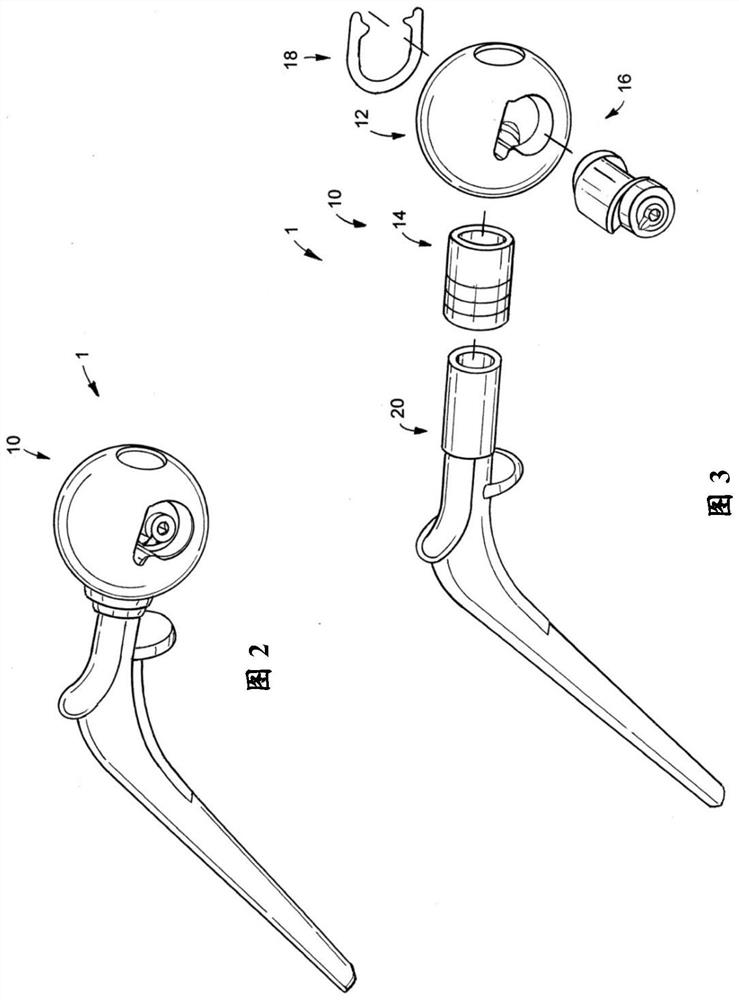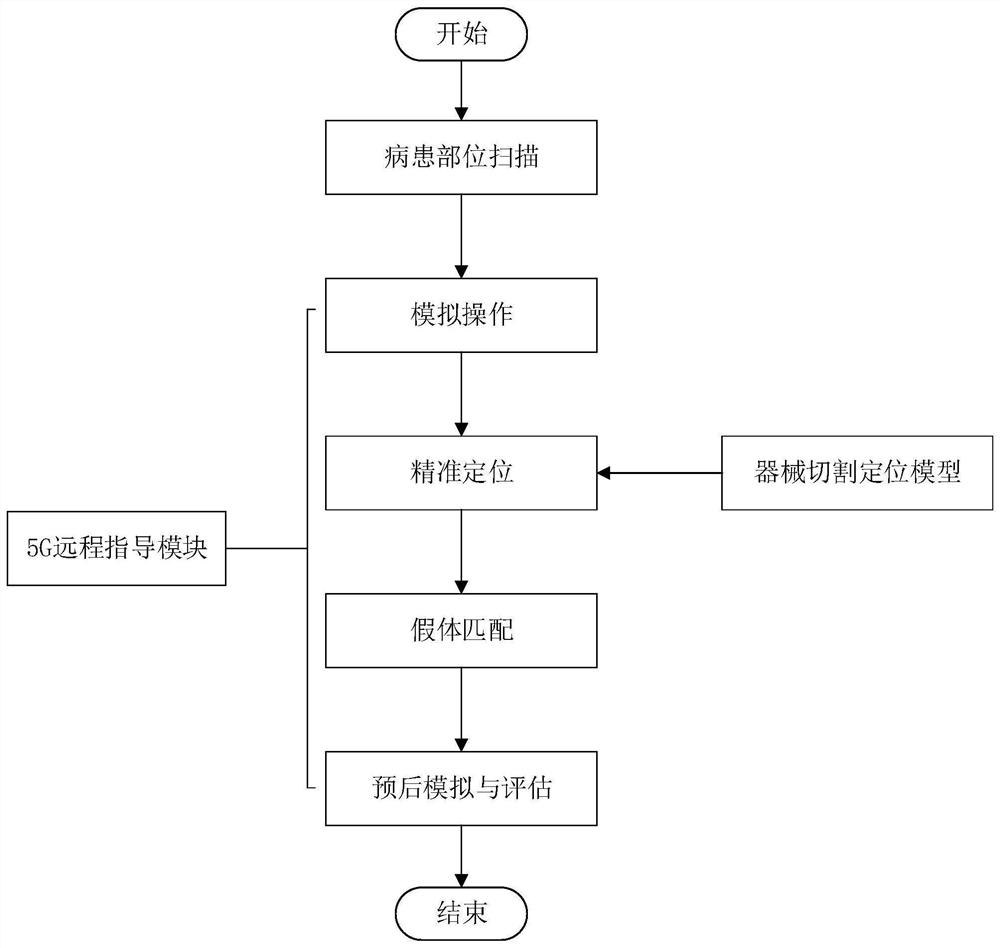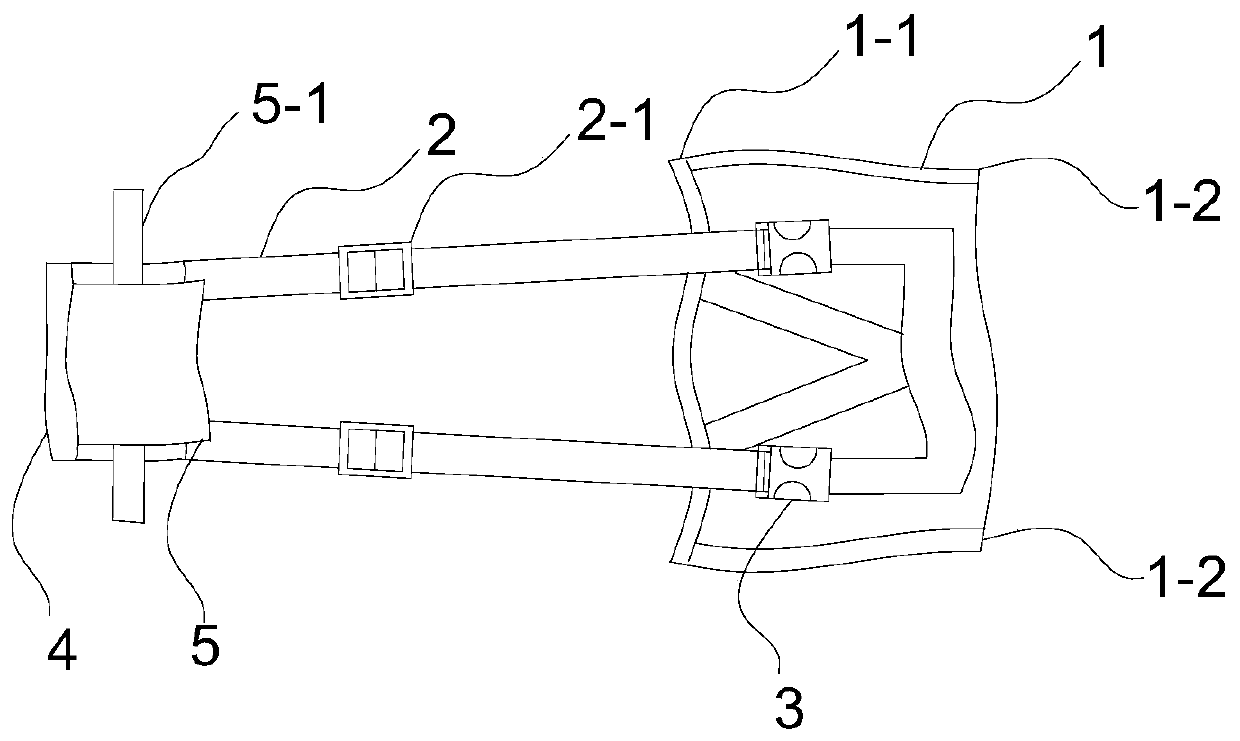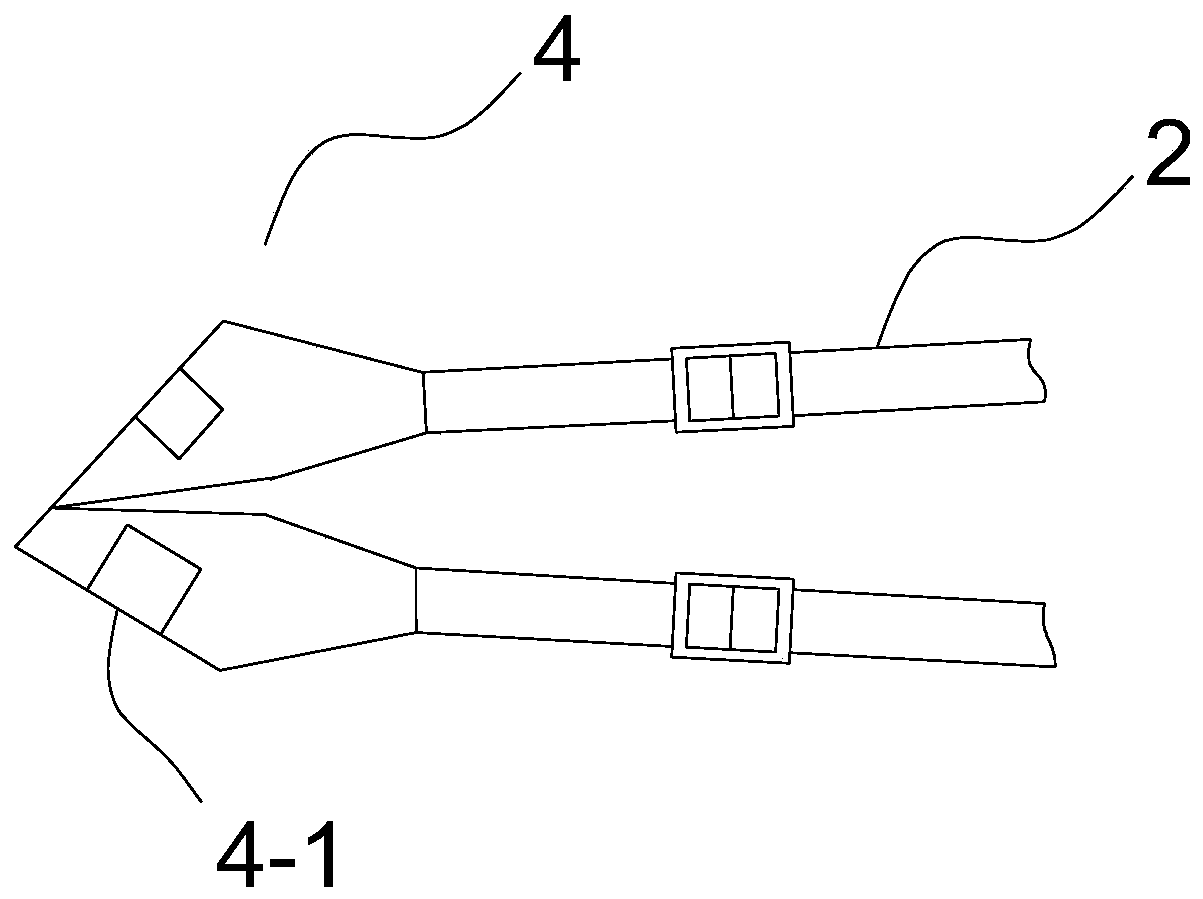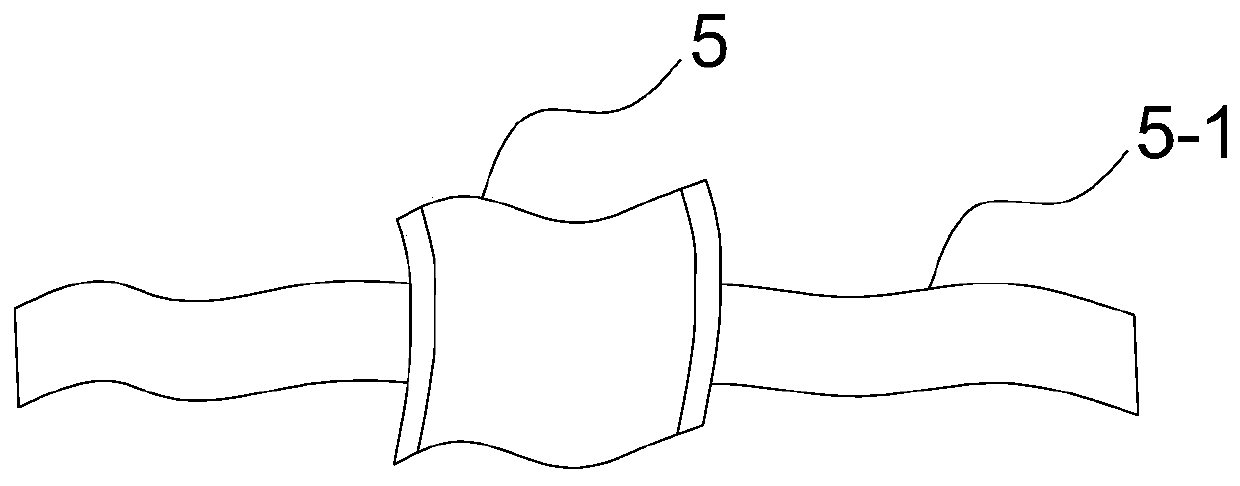Patents
Literature
50 results about "Arthroplasty replacement" patented technology
Efficacy Topic
Property
Owner
Technical Advancement
Application Domain
Technology Topic
Technology Field Word
Patent Country/Region
Patent Type
Patent Status
Application Year
Inventor
Replacement arthroplasty (from Greek arthron, joint, limb, articulate, + plassein, to form, mould, forge, feign, make an image of), or joint replacement surgery, is a procedure of orthopedic surgery in which an arthritic or dysfunctional joint surface is replaced with an orthopedic prosthesis.
Laser assisted total joint arthroplasty
InactiveUS20090234360A1Easy to useEasy to adaptNon-surgical orthopedic devicesSurgical sawsLaser assistedLaser guidance
The present invention provides an improved method of performing bone resection, including during arthroplasty procedures, wherein a laser guide is utilized to align cutting blocks and / or measuring devices. The present invention also provides laser guidance platforms for use in the methods of the invention.
Owner:ALEXANDER VLADIMIR
Surface guided knee replacement
ActiveUS20070135926A1Increase contact areaIncrease flexibilityJoint implantsKnee jointsTibiaTibial surface
An artificial knee joint that includes a femoral component with a specially shaped bearing surface and a tibial component, whose surface interacts with the femoral surfaces. The interaction provides for the required motion and stability characteristics. The interaction between the femoral and tibial surfaces is such that as the knee is flexed to maximum, the femoral component moves posteriorly on the tibial surface, by an amount similar to that in the anatomic knee. This is accomplished primarily by the depth and width of the femoral trochlea diminishing as the femoral component is flexed from zero to maximum, together with a ramp on the center of the tibial surface. The opposite motion, roll forward of the femur from a fully flexed to a more extended position, is accomplished by varying the outward radii of the lateral and medial femoral bearing surfaces, together with a ramp on the postero-lateral and postero-medial regions of the tibial surfaces. A variation of this is to generate a tibial surface which provides for a progressive internal rotation of the tibia as flexion proceeds.
Owner:NEW YORK UNIV
Surface guided knee replacement
InactiveUS20070135925A1Reduce consistencyAvoid large displacementJoint implantsKnee jointsGonial angleTibial surface
An artificial knee joint that includes a femoral component with a specially shaped bearing surface and a tibial component, whose surface interacts with the femoral surfaces. The interaction provides for the motion and stability characteristics of the anatomic knee. The interaction between the femoral and tibial surfaces is such that as the knee is flexed to maximum, the femoral component moves posteriorly on the tibial surface, more so on the lateral side than on the medial side. This is accomplished by the interaction of a projecting tibial post inside a cupola in the center of the femoral component, and by the saggital radius on the medial side being smaller than that on the lateral side. The prevention of anterior sliding of the femur on the tibia in early flexion is accomplished by the interaction between a distal-anterior recess on the medial side of the femur and an apposing raised pad on the tibial surface. Rotational laxity at all angles is allowed by the presence of only one recess pad and by non-conforming femoral-tibial surfaces on the lateral side.
Owner:NEW YORK UNIV
Alignment plate apparatus and system and method of use
ActiveUS20150257846A1Easy to installContinuous measurementImage enhancementImage analysisFracture reductionLeg length
A computer implemented system for adjusting the placement of an implant in a patient through the use of a dimensioned grid template placed relative to patient anatomy on a fluoroscopic machine and a method to digitally quantify alignment parameters is provided. This system can be used for determining: 1) leg length, offset, and cup position during arthroplasty replacement surgery; 2) fracture reduction / correction position during trauma procedures and 3) an apparatus to be used for deformity correction planning is provided; 4) placement and positioning of instruments and implants relative to bone and anatomical architecture; 5) bone anatomy boundary parameter identification relative to reaming and cutting landmarks of bone.
Owner:ORTHOGRID SYST HLDG LLC
Devices and methods to prevent joint instability following arthroplasty
A kit includes a distractor, a plurality of trial elements, and at least one sensor. The distractor is configured to separate a first bone from a second bone by adjusting the distance between a first member and a second member, and is configured to receive at least one sensor in the first portion. Each of the trial elements corresponds to one of a plurality of surgical implants, is configured to be temporarily coupled to the second bone so as to evaluate suitability of the corresponding one of the plurality of surgical implants for implantation, and is configured to receive at least one sensor. The at least one sensor is configured to be received in the distractor or one of the trial elements, and is configured to record a magnitude of a force, a direction of application of a force, a pressure mapping, or a location of application of a force.
Owner:EXACTECH INC
Alignment plate apparatus and method of use
ActiveUS8611504B2Radiation diagnostics testing/calibrationMeasurement devicesFracture reductionLeg length
A dimensioned grid apparatus for determining: 1) leg length, offset, and cup position during arthroplasty replacement surgery; 2) fracture reduction / correction position during trauma procedures and 3) an apparatus to be used for deformity correction planning is provided.
Owner:ORTHOGRID SYST HLDG LLC
Grid patterned alignment plate for imaging apparatus and method of providing implant placement
ActiveUS9456874B2Easy to installContinuous measurementImage enhancementImage analysisAnatomical structuresFracture reduction
A computer implemented system for adjusting the placement of an implant in a patient through the use of a dimensioned grid template placed relative to patient anatomy on a fluoroscopic machine and a method to digitally quantify alignment parameters is provided. This system can be used for determining: 1) leg length, offset, and cup position during arthroplasty replacement surgery; 2) fracture reduction / correction position during trauma procedures and 3) an apparatus to be used for deformity correction planning is provided; 4) placement and positioning of instruments and implants relative to bone and anatomical architecture; 5) bone anatomy boundary parameter identification relative to reaming and cutting landmarks of bone.
Owner:ORTHOGRID SYST HLDG LLC
Instrument for modular orthopaedic prosthesis
ActiveUS8945138B2Restraint torsionUnwanted movementJoint implantsShoulder jointsProsthesisEngineering
A kit for use in performing a trail reduction in joint arthroplasty is provided. The kit includes a trail stem assembly including a first component, a second component selectably moveable with respect to the first component, and a fastener for securing the first component to the second component. The kit also includes an articulating trial component removeably fixedly secured to the trail stem assembly and a driver for cooperation with the fastener to secure the first component to the second component. The kit also includes a handle. The handle has a first feature for permitting the driver to pass through the handle and a second feature for orientably connecting the handle to the articulating trial component.
Owner:DEPUY SYNTHES PROD INC
Alignment plate apparatus and system and method of use
ActiveUS20150272695A1Easy to installContinuous measurementImage enhancementImage analysisFracture reductionLeg length
A computer implemented system for adjusting the placement of an implant in a patient through the use of a dimensioned grid template placed relative to patient anatomy on a fluoroscopic machine and a method to digitally quantify alignment parameters is provided. This system can be used for determining: 1) leg length, offset, and cup position during arthroplasty replacement surgery; 2) fracture reduction / correction position during trauma procedures and 3) an apparatus to be used for defomity correction planning is provided; 4) placement and positioning of instruments and implants relative to bone and anatomical architecture; 5) bone anatomy boundary parameter identification relative to reaming and cutting landmarks of bone.
Owner:ORTHOGRID SYST HLDG LLC
Ultrasonic apparatus for preventing osteolysis from appearing around prosthesis after joint replacement
InactiveCN103463742AInhibition of dissolutionHigh densityUltrasound therapyBone TrabeculaeEngineering
The invention provides an ultrasonic apparatus for preventing osteolysis from appearing around a prosthesis after joint replacement. The ultrasonic apparatus is mainly composed of a processor, an ultrasonic generator, an output probe, a display screen, an operation rotary knob, a power supply and an ultrasonic apparatus shell, wherein the processor and the ultrasonic generator are located in the ultrasonic apparatus shell, the processor, the ultrasonic generator and the display screen are connected with the power supply in series, and the ultrasonic generator is connected with the output probe. The ultrasonic apparatus is reasonable in design and convenient to carry, the ultrasonic frequency, the strength, the duty ratio, the working hour span and the area of the output probe can all be adjusted and matched with data bases composed of different parameters combinations, different types of parameter setting can be arranged as required, probes in different sizes can be adopted as required, corresponding low-energy ultrasonic waves are transmitted to the area around the prosthesis, therefore, the osteolysis is prevented from appearing around the prosthesis, reconstruction of bone trabeculas around the prosthesis is promoted, the bone mineral density around the prosthesis is improved, the service life of the prosthesis is prolonged, the ultrasonic apparatus is suitable for different people, no use contraindication exists, no invasive intervention occurs to a user, and the ultrasonic apparatus is relatively safe.
Owner:ZHEJIANG UNIV
System and method for measuring acetabular anteversion angle and abduction angle in hip replacement
ActiveCN113456254AImprove fitAvoid traumaDiagnosticsSurgeryHip joint replacement operationElectrical battery
The invention discloses a system and a method for measuring an acetabular anteversion angle and an abduction angle in hip replacement. The system comprises a gypsum binding belt, a reference module, a measuring module, a display module and a hip replacement surgical instrument, wherein the reference module is used for describing the posture of a pelvis reference surface and comprises a reference base, a reference end cover, a switch, a battery and a reference circuit board; a battery mounting hole site, a reference circuit board mounting hole site, a switch fixing groove and a reference end cover fixing hole site are arranged in the reference base; the battery and the reference circuit board can be fixed in the base, the switch can be fixed on the side of the reference base, and the reference end cover is fixed above the reference base to serve as a mounting shell of the reference module. The system has the advantages of low cost, good compatibility, simplicity in installation and convenience in operation, and is suitable for popularization and application in various hospitals.
Owner:UNIV OF ELECTRONICS SCI & TECH OF CHINA
Multi-degree-of-freedom knee joint fixing support in knee joint arthroplasty
PendingCN113143665ASolve the problems revealedFree from pressure soresOperating tablesFoot supportsEngineering
The invention relates to the technical field of medical instruments, in particular to a multi-degree-of-freedom knee joint fixing support in knee joint arthroplasty. The multi-degree-of-freedom knee joint fixing support in the knee joint arthroplasty comprises a bottom support, an X-axis direction moving mechanism, a Z-axis direction rotating mechanism, a foot support mechanism and an X-axis direction rotating mechanism, the X-axis direction moving mechanism is arranged at the upper end of the bottom support and can move at the upper end of the bottom support in the X-axis direction, the Z-axis direction rotating mechanism is connected with the X-axis direction moving mechanism, the X-axis direction rotating mechanism is connected with the Z-axis direction rotating mechanism, and the foot support mechanism is connected with the X-axis direction rotating mechanism. The multi-degree-of-freedom knee joint fixing support can move in the X-axis direction and rotate in the X-axis direction and the Z-axis direction, multi-angle adjustment is achieved, the situation that a doctor adjusts and protects the soft tissues and ligaments of the knee joint through a retractor is replaced, and the problem of knee joint exposure can be well and stably solved.
Owner:山东威高海星医疗器械有限公司
Tendon suture system for joint replacement
The invention discloses a tendon suture system for joint replacement, which comprises a joint prosthesis, a suturing device, a locking structure and a bone thread system. The joint prosthesis has an outer convex surface, and an installation groove is arranged on the outer convex surface; The appliance has a first end and a second end, the first end is provided with a suture hole, the shape of the second end matches the installation groove, so that the second end can be embedded in the installation groove; the locking structure is used to The stapler is fixed on the joint prosthesis without loosening; the bone thread system is used to fix the joint prosthesis to the external diaphysis. The invention can effectively combine the suturing device and the joint prosthesis, and fix the combined assembly on the joint backbone, while smoothly ensuring the continuity of the tendon at the wounded part, which is beneficial to the health of the tendon after operation and does not shift. The invention is used in joint replacement surgery.
Owner:GUANGDONG STABLE MEDICAL TECH CO LTD
Body position frame for hip replacement and manufacturing method of body position frame
ActiveCN112972177AEliminate discomfortDoes not affect restAdditive manufacturing apparatusOperating tablesKnee JointEngineering
The invention discloses a body position frame for hip replacement. The frame comprises a flexible base and a plurality of bionic supporting modules protruding out of the upper surface of the flexible base, and bionic structures are manufactured on the upper surfaces and / or the side wall faces of the bionic supporting modules, wherein the bionic structures are processed according to standard body position information of a patient. A manufacturing method of the body position frame is characterized in that the bionic supporting modules grow on the upper surface of the flexible substrate through a three-dimensional printing mode. According to the body position frame and the method, the upper limb supporting module, the back supporting module, the knee joint supporting module and the shank or ankle supporting module are scientifically partitioned, and the bionic structures on the modules are optimally arranged, so that the standard body position of the patient is limited, and huge workload of a doctor in a preoperative preparation stage and an operation can be greatly reduced; the three-dimensionally printed body position frame is not a stiff mechanical frame any more, but is a flexible environment-friendly printing material with a bionic outline, so that the discomfort of the patient is eliminated, and the body position frame can be continued to serve as a posture maintaining support in a rehabilitation stage; and a new customized medical mode is developed in hip replacement, and prospects are wide.
Owner:CHIFENG MUNICIPAL HOSPITAL
Method and system for determining thighbone length in hip replacement
ActiveCN113332008AHigh precisionHigh speedDiagnosticsJoint implantsReplacement arthroplastyFemoral head prosthesis
The invention relates to the technical field of medical information processing, in particular to a method and system for determining the thighbone length in hip replacement arthroplasty, and the method comprises the steps: obtaining a normal leg CT image obtained by carrying out CT scanning on the leg part of a normal leg of a patient, and determining the length of the leg part of the patient according to the normal leg CT image so as to determine the length of a femur neck prosthesis; performing spatial positioning on the highest point of the femoral ball and the osteotomy surface of the leg implanted with the femoral neck prosthesis by adopting an optical sensor so as to determine a first relative distance between the highest point of the femoral ball and the osteotomy surface in real time; adopting an optical sensor to conduct spatial positioning on the anterior superior spine of the leg where the femoral neck prosthesis is implanted and the planta pedis so as to determine the second relative distance between the anterior superior spine and the planta pedis in real time; finally, the length of the femoral head prosthesis implanted into the leg of the patient is determined, so that the second relative distance and the length of the leg of the patient are within the allowable deviation range, and the accuracy and speed of the length of the femoral neck in hip replacement can be effectively improved.
Owner:SHANTOU UNIV +2
Straight leg raise training device after knee replacement
The invention relates to the field of medical devices, and discloses a straight leg raise training device after knee replacement. The straight leg raise training device comprises a base station, a thigh plate allowing a thigh to set and a calf plate allowing a calf to set, wherein a through hole penetrating through the right end surface is rightwards formed in the rear end of the left end surfaceof the base station; a right rotating shaft is fixed to the rear end of the right end surface of the thigh plate; a right control member which is fixed to the right end surface and used for controlling the right rotating shaft to rotate is connected to the right end which penetrates through the through hole, of the right rotating shaft; and the rear side of the lower end surface of the calf plateis hinged to the front side of the lower end surface of the thigh, and the front end of the right end surface of the calf plate is in sliding connection to the left end surface of the base station inthe front-and-rear direction. Compared with the prior art, the purpose of raising the limbs of the patient according to angles based on the actual condition of the patient, can be achieved.
Owner:PEKING UNIV SHENZHEN HOSPITAL
Distraction device in knee joint replacement
ActiveCN111658034AEasy accessThe distance is easy to adjustSurgeryPhysical medicine and rehabilitationEngineering
The invention relates to the technical field of distraction devices in knee joint replacement, in particular to a distraction device in knee joint replacement, which comprises distraction structures,a transmission structure, telescopic structures, a supporting structure, a driving structure and a limiting structure, wherein the supporting structure is arranged at the bottom end of a driving structure used for manual driving, the transmission structure is arranged in the supporting structure in a rotating connection mode, and the transmission structure is connected to the driving structure. The two ends of the transmission structure are connected to the telescopic structures used for adjusting the distraction distance, and the telescopic structures are connected to the supporting structure. Distraction structures used for distracting are arranged at the opposite ends of the two telescopic structures. The telescopic structures are matched with the supporting structure, so that the spaceutilization efficiency is improved; the driving structure drives the transmission structure conveniently, so that the transmission structure drives the two telescopic structures to adjust the distance between the two distraction structures, the distraction distance of the femur is adjusted conveniently, the operation flexibility is greatly improved, operation of medical staff is facilitated, andmeanwhile the structure is more stable.
Owner:JILIN UNIV
Patient specific composite knee replacement
A prosthetic knee implant system includes a prosthetic femoral component and a prosthetic tibial component. The femoral component includes a lateral condyle, a medial condyle, a bone-contacting surface that may be formed of porous metal, and an articular surface that may be formed of PAEK / PEEK. The tibial component includes medial and lateral condylar portions, a bone-contacting surface that may be formed of porous metal, and a second surface opposite the bone-contacting surface. Recesses extend a depth into the second surfaces of the medial and lateral condylar portions. Medial and lateral bearing inserts with flat proximal faces are positioned with the recesses of the medial and lateral condylar portions. Flexible medial and lateral meniscal components are positioned to surround the medial and lateral inserts, respectively, and extend proximal to the second surface of the insert.
Owner:HOWMEDICA OSTEONICS CORP
Prosthesis extractor for hip joint replacement
PendingCN112972075AJoint implantsFemoral headsPhysical medicine and rehabilitationBiomedical engineering
The utility model discloses a prosthesis extractor for hip joint replacement. The prosthesis extractor comprises a cylinder body used for clamping a hip joint prosthesis cylindrical section, and is characterized in that the first end of the cylinder body is sleeved with the prosthesis cylindrical section, and a long rod for locking the prosthesis cylindrical section in the radial direction is arranged on the side wall of the cylinder body in the radial direction of the cylinder body; an axial locking mechanism for axially locking the prosthesis cylindrical section is arranged in the cylinder body along the axial direction of the cylinder body; and a clamping groove for a doctor to grab the cylinder body is formed in the outer wall of the cylinder body. During use, coaxial fixation of the hip joint prosthesis and the cylinder body is achieved through the long rod and the axial locking mechanism, and then the doctor pulls out the hip joint prosthesis from the body of a patient through the groove in the outer wall of the cylinder body.
Owner:THE THIRD HOSPITAL OF HEBEI MEDICAL UNIV
Adjuster for joint replacement and use method of adjuster
The invention provides an adjuster for joint replacement and a use method of the adjuster. The adjuster for joint replacement comprises a body, wherein at least one pair of datum holes and multiple pairs of adjusting holes are formed in the body, and the paired datum holes can be simultaneously attached to and sleeve fastening nails to be adjusted due to interval setting of the paired datum holes; a pair of adjusting holes whose center connecting line forms the minimum angle difference with a center connecting line of the paired datum holes is set, and the maximum angle difference between the center connecting line of the adjusting holes and the center connecting line of the paired datum holes is 2 degrees; the maximum angle difference between center connecting lines, having the most similar inclination degree, of two pairs of adjusting holes is 2 degrees. Compared with human eye estimation in the prior art, the adjuster is easier to master and can control the error within 2 degrees; the adjusted two fastening nails are taken as a basis, a front tangent plane and a rear tangent plane can be effectively controlled to be basically parallel to the epicondylar axis, improper external rotation osteotomy of anterior and posterior condyle of thighbones is avoided, accurate osteotomy is realized, and the clinical efficacy is improved.
Owner:山东大学齐鲁医院(青岛)
Motion shaft positioner for artificial knee joint replacement
PendingCN114099094ASimple structureSave verificationJoint implantsKnee jointsArticular surfacesArticular surface
The invention provides a motion shaft positioner for artificial knee joint replacement, which comprises two spoon arms and a connecting body, the two spoon arms can be placed between a near-end tibia and a remote femur, and the near-end tibia and the remote femur are restrained by ligaments, so that the inner condyle and the outer condyle of the femur are respectively clamped and propped against the two spoon arms on a tibial plateau at corresponding curvatures; the connecting body naturally positions a reference axis according to the positions where the two spoon arms are clamped and abutted, the reference axis is approximately parallel to the movement axis of relative pivoting of the medial condyle and the lateral condyle on the tibial plateau, and articular surface finishing between the proximal tibia and the remote femur is performed according to the reference axis, so that the device is formed.
Owner:王志坚
Vertebral body reaming method
Disclosed are improved orthopedic tools and methods for use during orthopedic surgical procedures, including joint arthroplasty and joint replacement procedures. More specifically, disclosed herein are improved apparatus for preparing bone and / or soft tissue of the spine and / or other regions for implantation of intervertebral implants.
Owner:CTL MEDICAL CORP
Anteversion angle and abduction angle positioning and guiding device in hip replacement
PendingCN112515823AIncrease success rateThe result is intuitive and easy to getJoint implantsFemoral headsCoronal planePhysical medicine and rehabilitation
The invention discloses an anteversion angle and abduction angle positioning and guiding device in hip replacement. The anteversion angle and abduction angle positioning and guiding device comprises apelvis sagittal plane positioning device, a pelvis cross section positioning device, a fixing device and a guiding device. A projection surface of a coronal plane of the pelvis is indirectly positioned by positioning the sagittal plane and the cross section of the pelvis and through a mutual vertical relationship among the sagittal plane, the cross section and the coronal plane. An anteversion angle and an abduction angle of an acetabular cup can be directly obtained in an operation, a result is intuitive and easy to obtain, and the device is easy and convenient to operate, greatly shortens operation time, and improves the angle positioning accuracy of the acetabular cup and the success rate of the hip replacement.
Owner:THE SECOND XIANGYA HOSPITAL OF CENT SOUTH UNIV
A traditional Chinese medicine composition for preventing and treating deep vein thrombosis after arthroplasty
ActiveCN109528924BWide variety of sourcesThe formation effect is remarkableBlood disorderPlant ingredientsThrombusJoints surgery
The invention discloses a traditional Chinese medicine prescription for preventing and treating deep vein thrombosis after arthroplasty and a preparation method thereof. 10‑20 parts of Danshen, 10‑20 parts of Ophiopogon japonicus, 6‑15 parts of orange peel and 15‑30 parts of Achyranthes knuckle. The raw materials of the invention come from a wide range of sources. The decoction is prepared by decocting multi-flavored traditional Chinese medicine raw materials. The combination of various medicines can benefit qi and blood circulation, reduce swelling and relieve pain. It has a significant effect on preventing and treating deep vein thrombosis after joint replacement. Has positive social benefits.
Owner:GUANGDONG HOSPITAL OF TRADITIONAL CHINESE MEDICINE
Guide knocking cap and prosthesis knocking device for joint replacement
The invention discloses a guiding knocking cap and a knocking device for joint replacement. Radial component force is effectively reduced in the force transmission process from the knocking cap to a knocking rod. The knocking cap comprises a knocking part, a pressure spring sleeve, a steel ball, a steel ball sleeve, a first spring, an impact rod, a buffering sleeve at least comprising a second spring and a flange end cover. The impact rod comprises a head part and a rod part. The second spring sleeves the periphery of the rod part and penetrates through the hollow hole part of the knocking part together with the rod part. The far end of the second spring abuts against the steel ball sleeve, and the near end of the second spring abuts against the head of the impact rod. The flange end cover is fixedly installed on the knocking part. In the initial state, the head part is far away from the knocking part towards the near side under the pre-tightening bias force of the second spring, and a flange part formed on the outer periphery of the head part is limited by a stop part of the flange end cover. After the head of the impact rod is knocked for the first time, the rod part knocks the knocking rod for the second time to achieve instantaneous impact force, and the knocking rod is driven to advance to complete installation of the acetabular cup. Meanwhile, the radial component force is buffered through elastic deformation of the second spring.
Owner:LANCET ROBOTICS CO LTD
A skin ginseng foaming lotion composition, its soaking method and use
ActiveCN110201107BShorter hospital stayReduce wound inflammationAntisepticsSurgical drugsSurgical siteLotion
The invention provides a skin ginseng foam lotion composition, which is composed of the following components in proportion by weight: 12-18 parts of Kochia scoparia, 25-35 parts of Smilax smilax, 25-35 parts of Pittosporum bark, 25 parts of Lonicerae vine ~35 copies, 25~35 copies of Sophora flavescens, and 10~20 copies of Liu Jinu. It also discloses the soaking method of the Fushen Bubble Lotion prescription and the use of the Fushen Bubble Lotion prescription in skin preparation before joint replacement surgery; the traditional Chinese medicine bubble wash of the present invention is effective for skin preparation before joint replacement surgery. Improve local microcirculation, shorten incision redness and swelling time, prevent postoperative superficial infection of surgical incision, reduce incision inflammatory reaction, shorten patient's hospital stay, improve sleep quality, accelerate postoperative recovery and improve clinical treatment effect of surgery. Applying traditional Chinese medicine foot bath to surgical skin preparation can remove pathogenic bacteria at the surgical site, reduce wound inflammatory reactions, shorten the hospital stay, accelerate postoperative recovery and improve the clinical effect of surgery. This therapy is safe, effective, and has no adverse reactions. It is a kind of green therapy and a characteristic therapy of traditional Chinese medicine that is worth promoting.
Owner:THE AFFILIATED HOSPITAL OF SHANDONG UNIV OF TCM
Hip arthroplasty trial systems and associated medical devices, methods, and kits
PendingCN113766897AJoint implantsFemoral headsRight femoral headPhysical medicine and rehabilitation
Hip arthroplasty trial systems (1, 100, 300, 500, 700) and associated medical devices (10, 110, 310, 510, 710), methods (200, 900, 1000), and kits (1100) are described that can be utilized in situ to complete a femoral head trial. An example embodiment of a hip arthroplasty trial system (1) includes a medical device (10) and a femoral stem (20). The medical device (10) has a head member (12), a spacer (14), a shaft (16), and a locking member (18). The spacer (14) is disposed within the head member (12) and is moveable from a first position to a second position. The shaft (16) is disposed within the head member (12) and contacts the femoral stem (20). The shaft (16) is moveable from a first position to a second position. Movement of the shaft (16) from the first position to the second position moves the spacer (14) from its first position to its second position. The locking member (18) is disposed within the head member (12) and releasably attaches the shaft (16) to the head member (12).
Owner:斯蒂芬·帕特里克·莫里西
Artificial joint operation system and method adopting computer-aided simulation
PendingCN114587581AReduce riskShorten operation timeSurgical navigation systemsComputer-aided planning/modellingPhysical medicine and rehabilitationArtificial joints
The invention provides an artificial joint operation system and method adopting computer-aided simulation, and relates to the field of computer-aided simulation systems.The system comprises a preoperative scanning module, a simulation operation module, an accurate positioning module, an artificial limb matching module and a prognosis simulation evaluation module; the preoperative scanning module is used for performing scanning modeling on a joint part of a patient to obtain a three-dimensional model of the joint part of the patient; the simulation operation module is used for performing a simulation operation on the three-dimensional model of the joint part of the patient; the prosthesis matching module is used for matching a prosthesis model according to the key parameters of the three-dimensional model of the joint part of the patient; and the precise positioning module is used for cooperating with the instrument cutting positioning model to obtain a precise positioning position. According to the invention, the accuracy and reliability in the artificial joint operation are improved, the simulation of the operation process and the actual accurate operation positioning of the joint of the patient are realized, the operation positioning accuracy is improved, and the coverage rate of large and small hospitals of joint replacement is improved.
Owner:上海博玛医疗科技有限公司
Knee joint replacement postoperative fixing and pressurizing training belt
PendingCN110898393ASatisfied postoperative single operationSatisfy individual operationGymnastic exercisingNon-surgical orthopedic devicesPhysical medicine and rehabilitationCold compresses
The invention relates to a knee joint replacement postoperative fixing and pressurizing training belt which comprises a leg binding belt and an elastic telescopic belt. A sole fixing part is arrangedat the lower end of the elastic telescopic belt, and the upper end of the elastic telescopic belt is connected with the leg binding belt through a quick detaching buckle. The leg binding belts are provided with Velcro elastic belts, and the tightness can be adjusted according to the sizes of legs. A heel supporting part connected to the heel supporting part is further arranged and used for supporting the heel and preventing bedsores. A sand strip can be placed in the storage bag part for pressurization or ice bag cold compress, and rehabilitation is accelerated. The belt is simple in structure, convenient and comfortable to use, free of assistance of other people, multifunctional and capable of comprehensively meeting the requirements for position management of postoperative hyperextensionstress and operative limb rehabilitation training at a time.
Owner:陈丹
A system and method for measuring acetabular anteversion angle and abduction angle in hip arthroplasty
The invention discloses a measurement system and method for acetabular anteversion and abduction angle in hip joint replacement. The reference module is used to describe the posture of the pelvic reference plane, including a reference base, a reference end cover, a switch, a battery and a reference circuit board; the reference base is provided with battery mounting holes, reference circuit board mounting holes, switch fixing slots and The reference end cover fixing hole position; the battery and the reference circuit board can be fixed in the base, the switch can be fixed on the side of the reference base, and the reference end cover is fixed above the reference base as the Mounting enclosure for the reference module. The invention has the advantages of low cost, good compatibility, simple installation and easy operation, and is suitable for popularization and application in various hospitals.
Owner:UNIV OF ELECTRONICS SCI & TECH OF CHINA
Features
- R&D
- Intellectual Property
- Life Sciences
- Materials
- Tech Scout
Why Patsnap Eureka
- Unparalleled Data Quality
- Higher Quality Content
- 60% Fewer Hallucinations
Social media
Patsnap Eureka Blog
Learn More Browse by: Latest US Patents, China's latest patents, Technical Efficacy Thesaurus, Application Domain, Technology Topic, Popular Technical Reports.
© 2025 PatSnap. All rights reserved.Legal|Privacy policy|Modern Slavery Act Transparency Statement|Sitemap|About US| Contact US: help@patsnap.com
